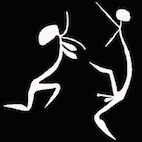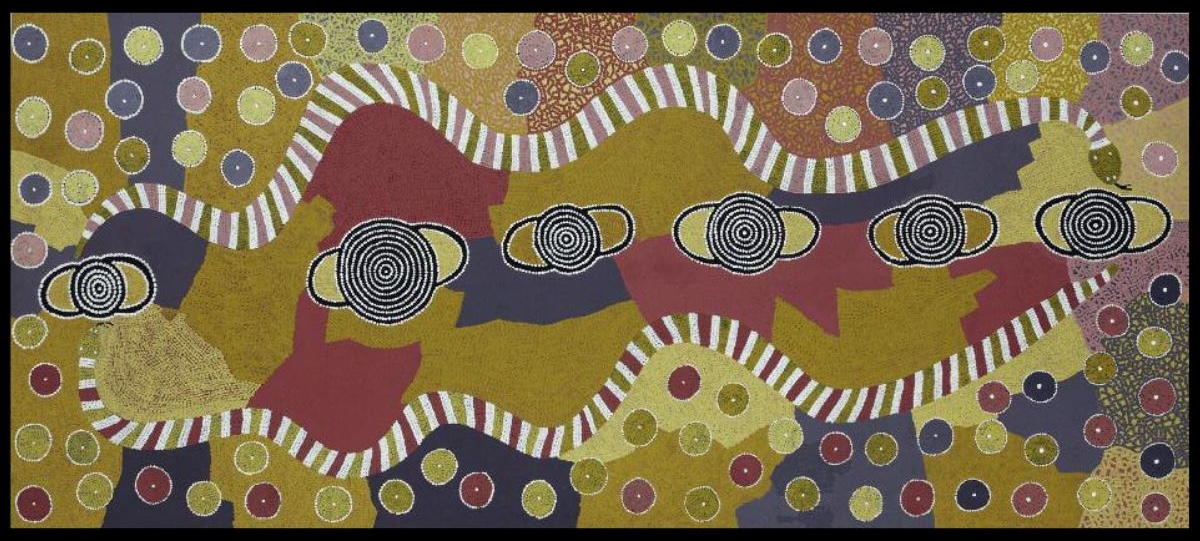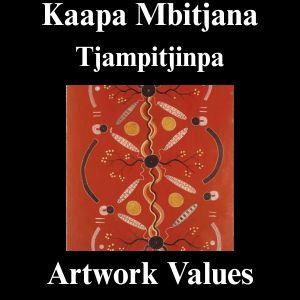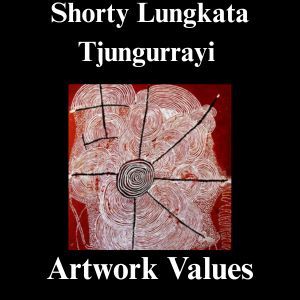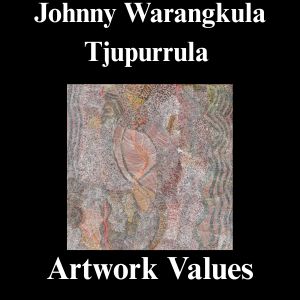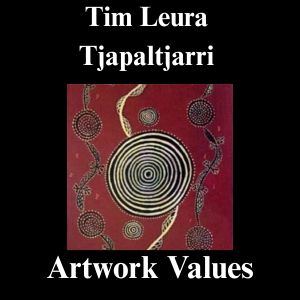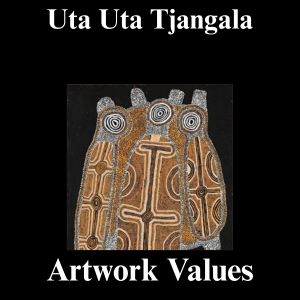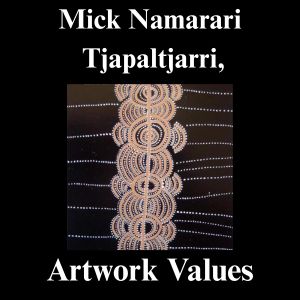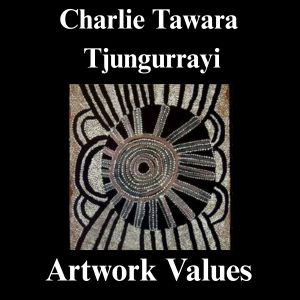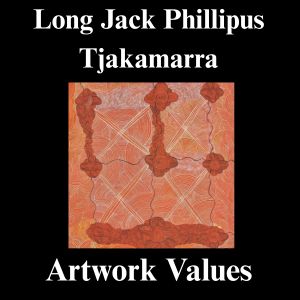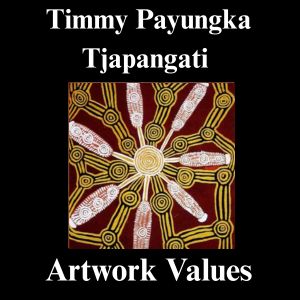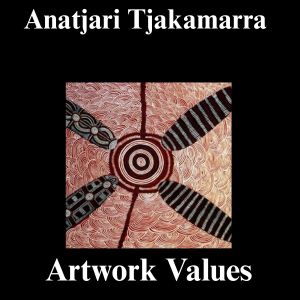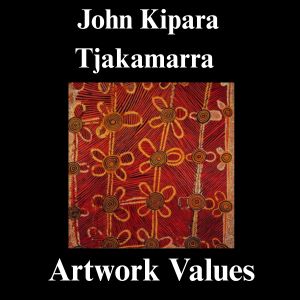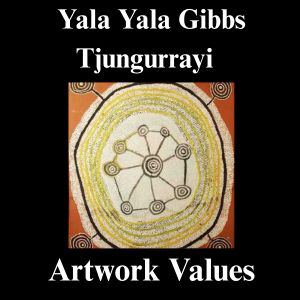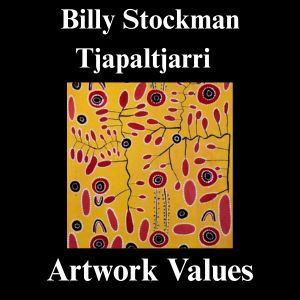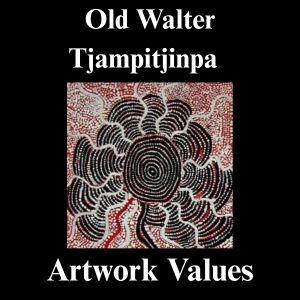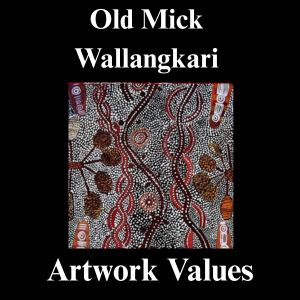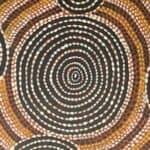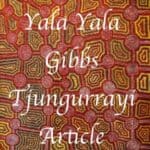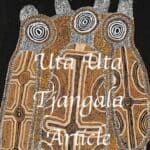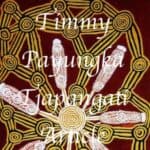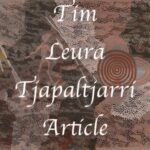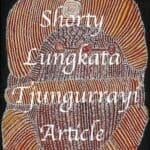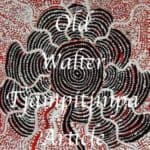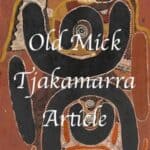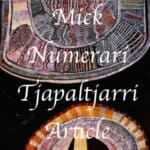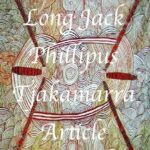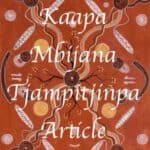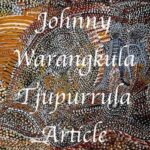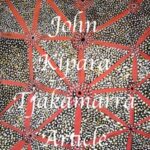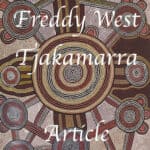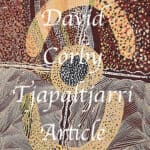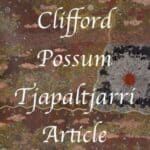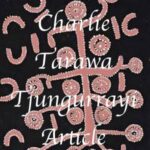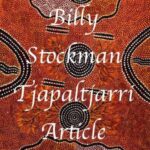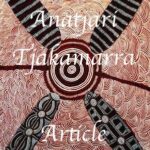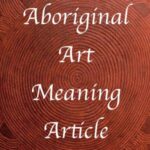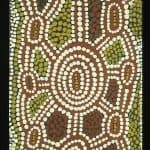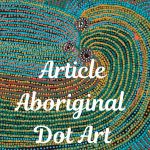Billy Stockman Tjapaltjarri Artworks
Stockman’s Wild Potato (Yala) Dreaming
Billy Stockman Tjapaltjarri’s most celebrated and valuable artwork, Wild Potato (Yala) Dreaming, was created in 1971 and later achieved significant acclaim when it sold at auction in 1998 for a hammer price of $180,000. This seminal work stands as a cornerstone of early Papunya Tula art and is widely recognized due to its prominent placement on the cover of Papunya: A Place Made After the Story by Geoffrey Bardon — the definitive text on the Papunya art movement.
Unlike many Western Desert artworks of its era, Wild Potato Dreaming is visually striking for its unconventional use of a monochrome yellow background. The minimalistic palette and bold, enigmatic motifs draw the viewer into the symbolic complexity of the Dreaming narrative, sparking deep curiosity about its cultural and spiritual meanings.
This painting not only exemplifies the early development of the Western Desert art movement but also holds enduring significance as a visual and historical touchstone in Australian Indigenous art history.
The Genesis of a Movement: Billy Stockman and the Birth of Western Desert Aboriginal Art (1971–1972)
Billy Stockman Tjapaltjarri stands as a foundational figure in the Western Desert art movement, emerging in the early 1970s as one of its pioneering painters. During 1971–1972, Stockman’s early works were executed on monochrome backgrounds, utilizing a traditional Aboriginal palette of red and yellow ochre, black charcoal, and white pipe clay. These paintings often drew upon ancestral iconography, particularly motifs found on churinga (sacred objects), while also featuring depictions of Yala — the wild bush potato central to many Dreaming stories. His aesthetic during this time preserved deep cultural narratives while beginning to hint at a more modern stylistic evolution.

Untitled, 1971-72
Synthetic polymer paint on composition board, bears artist’s name Billy S (sic) together with ATB on the reverse,
28 x 29 cm
Hammerprice: A$5,500
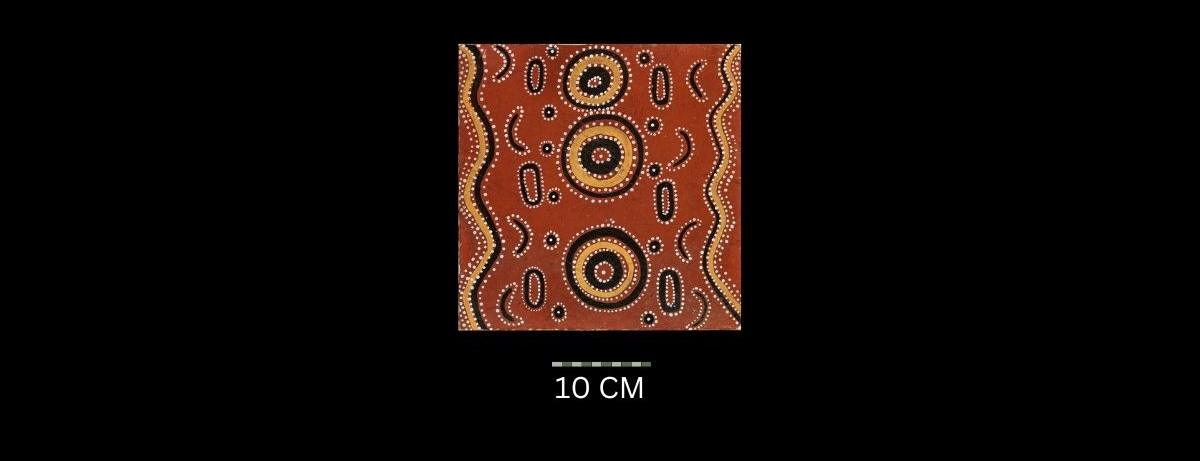
Yam Dreaming, 1971
Poster paint with Pva Bondcrete glue on fruit box end,
28.5 x 28 cm
Hammerprice: A$24,000

Bird Story
Acrylic on composition board,
Date not recorded
28.5 x 28.5 cm
Hammerprice: A$13,000
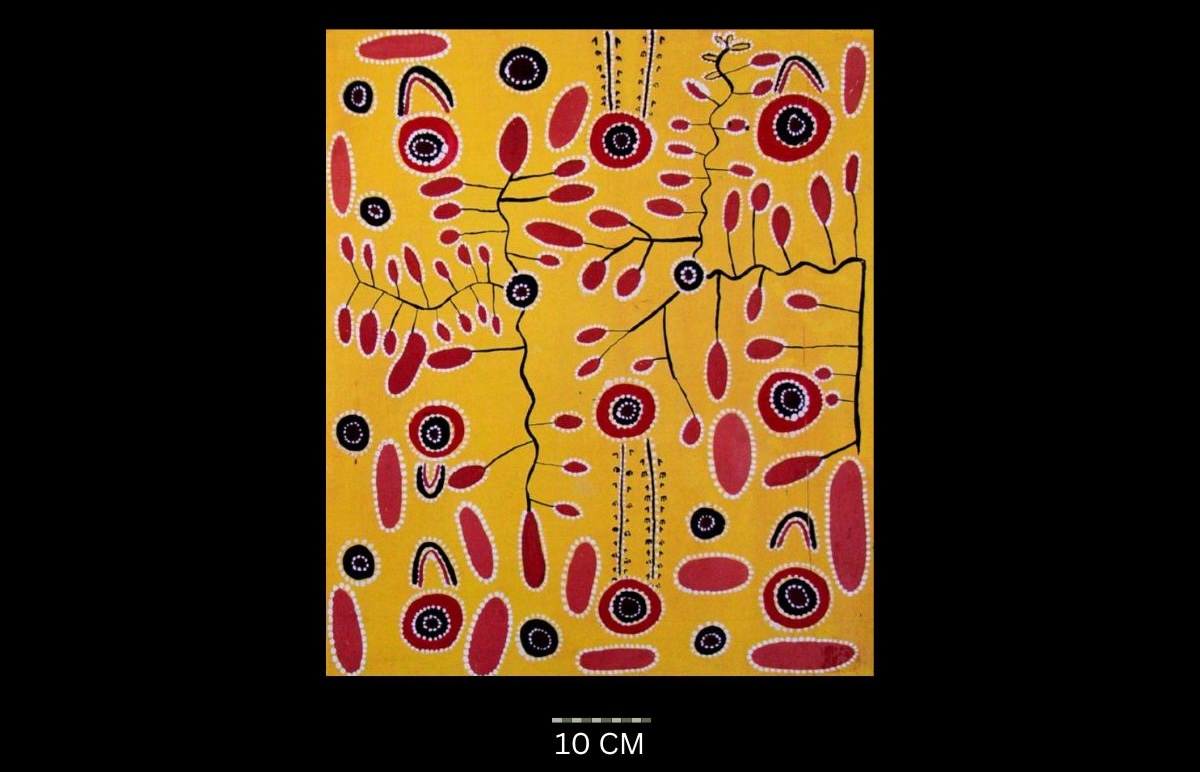
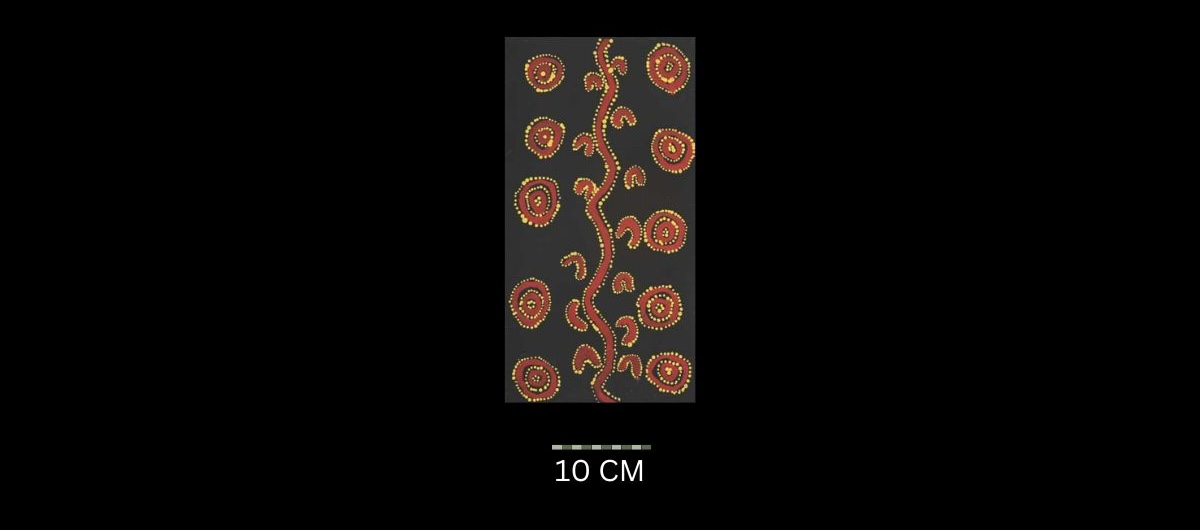
Water Dreaming 1972
Synthetic polymer powder paint and PVA on composition board,
36.5 x 19 cm
Hammerprice: A$5,000
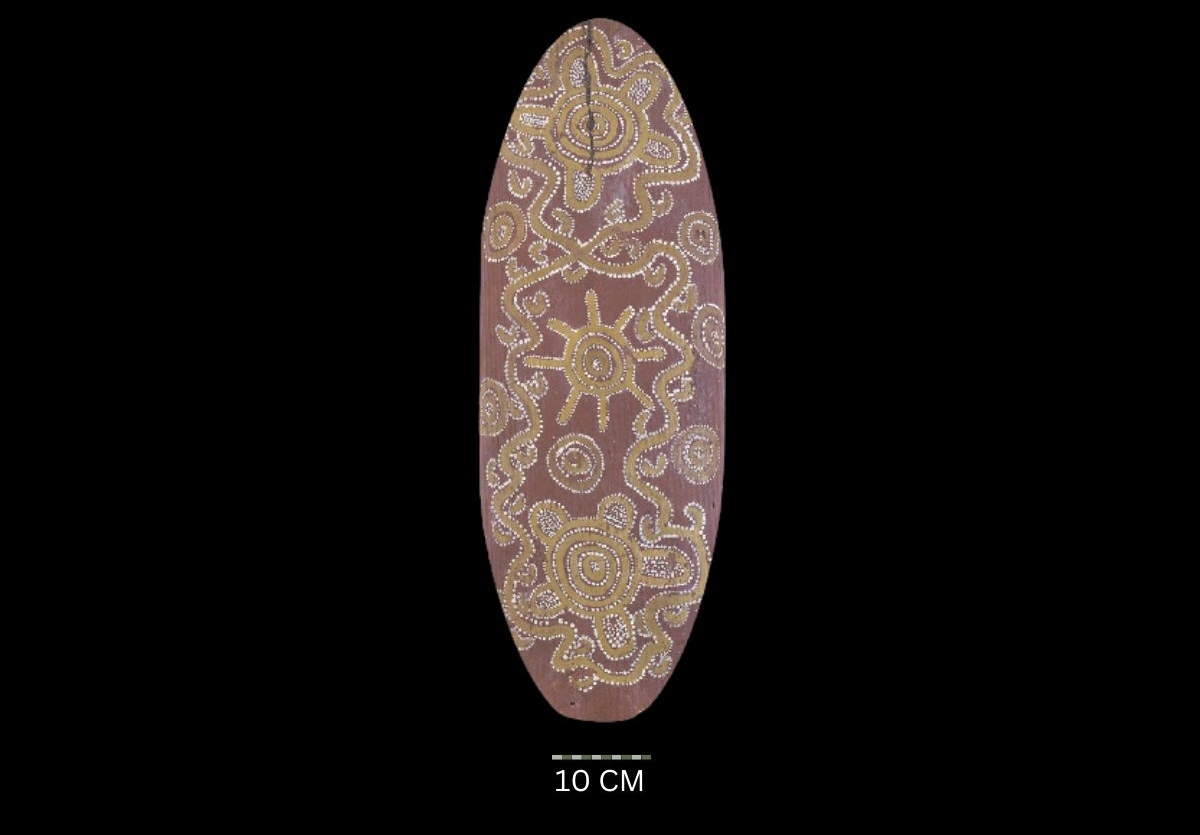
Untitled shield
No date recorded but stylistically 1971-1973
Natural earth pigments on wood shield,
65 x 25 cm
Hammerprice: A$3,000
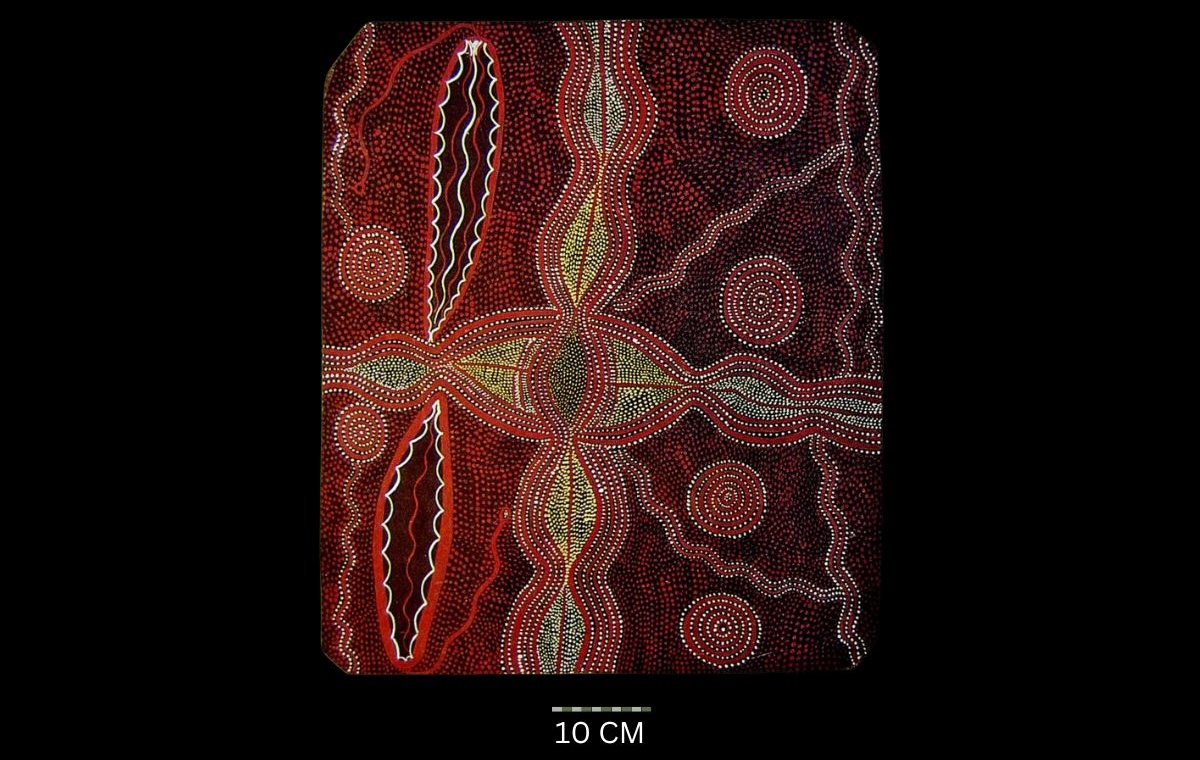
Wild Potato Story (c. 1972)
Synthetic polymer paint on composition board, bears artist’s name, title and Stuart Art Centre catalogue number 19375 on the reverse,
66 x 55.5 cm
UNSOLD
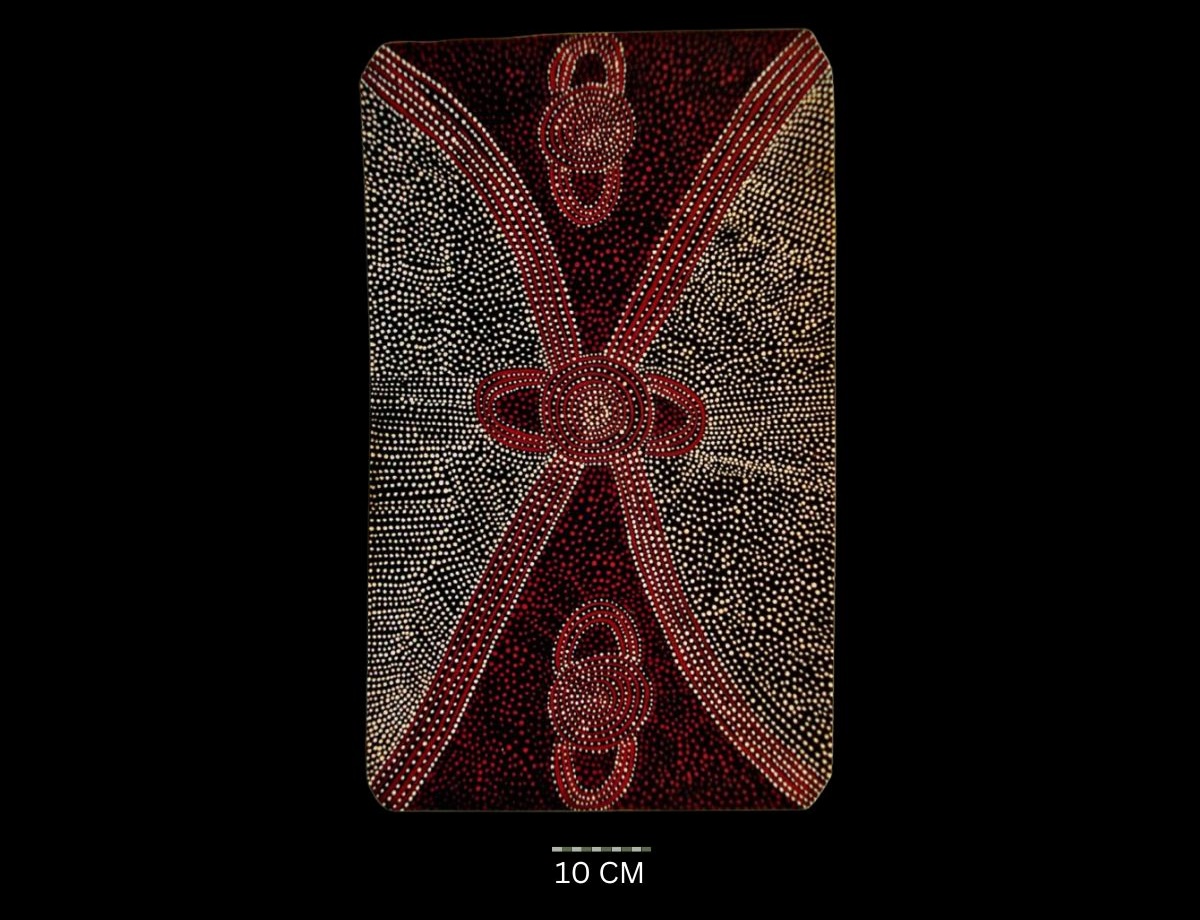
Untitled c. 1972
Synthetic polymer powder paint on composition board,
78.5 x 47 cm
UNSOLD
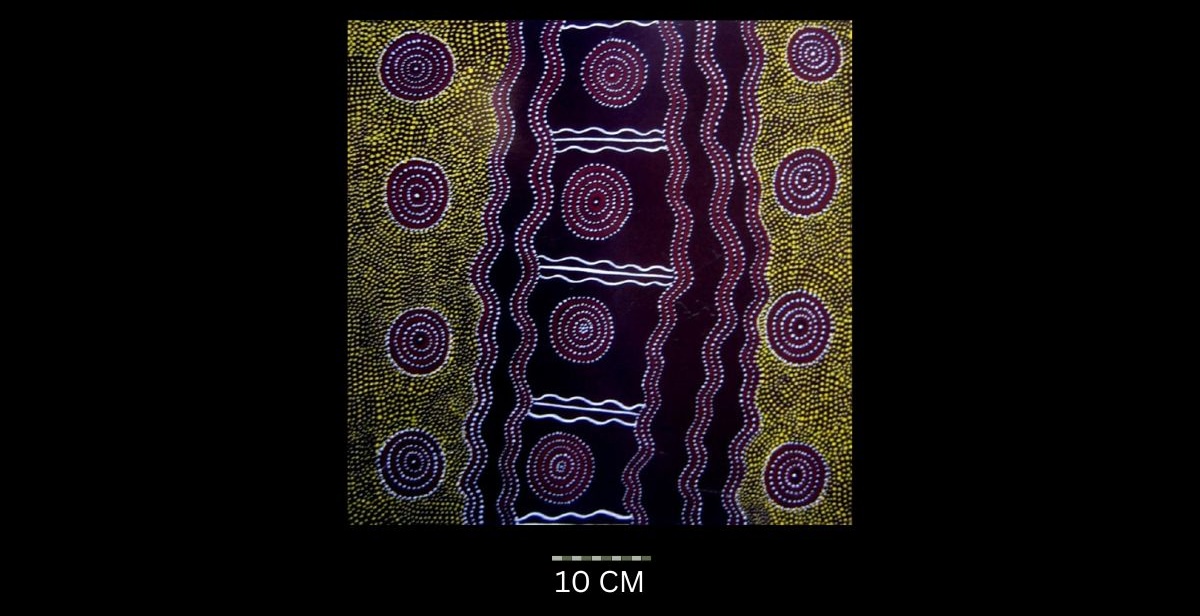
Yala at Wakulpa 1972
Synthetic polymer paint on linen, bears artists name ‘B. Stockman’ (sic) Papunya Tula Artists catalogue number BS19328 on stretcher together with a Papunya Tula Artists label bearing artists name language group (Anmatjar) title date and catalogue number on reverse,
50.5 x 50.5 cm
Hammerprice: A$7,000
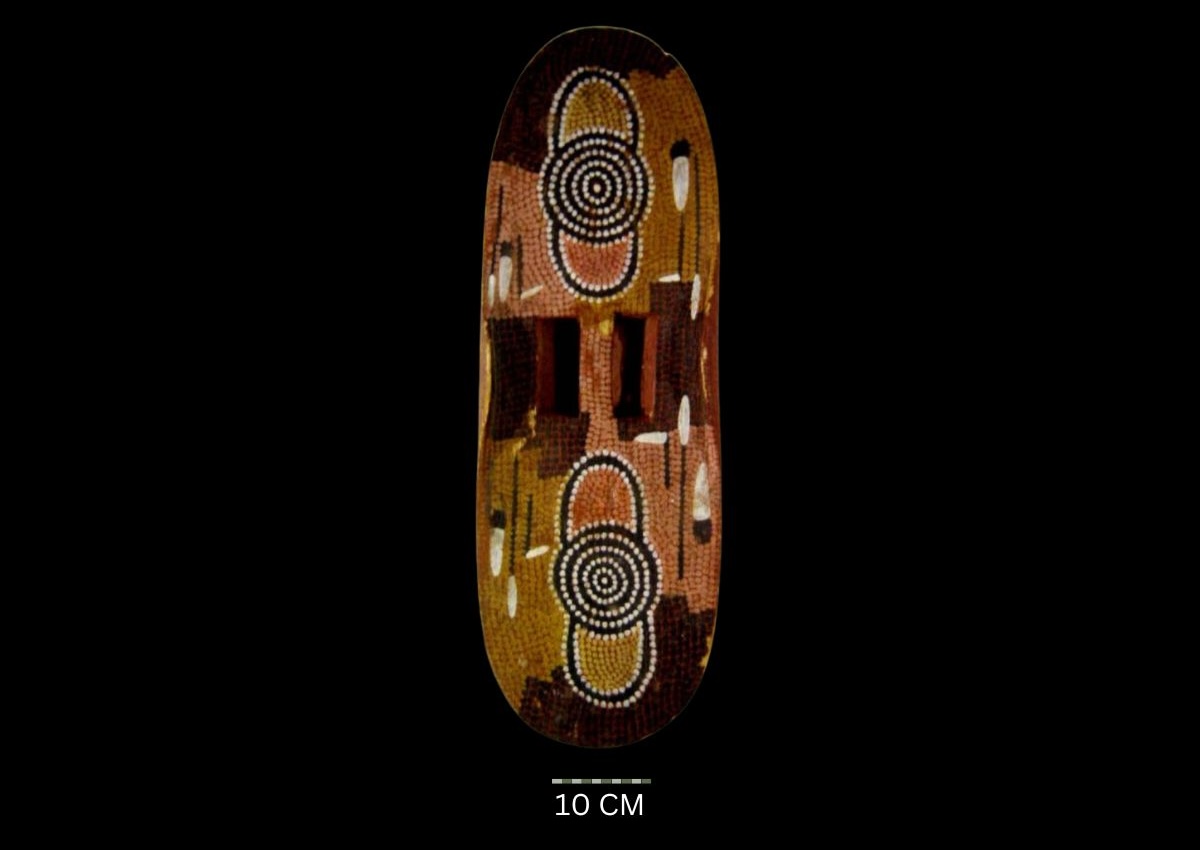
Untitled Shield 1972
Natural earth pigments and synthetic polymer paint on carved bean wood,
73 x 24 cm
UNSOLD
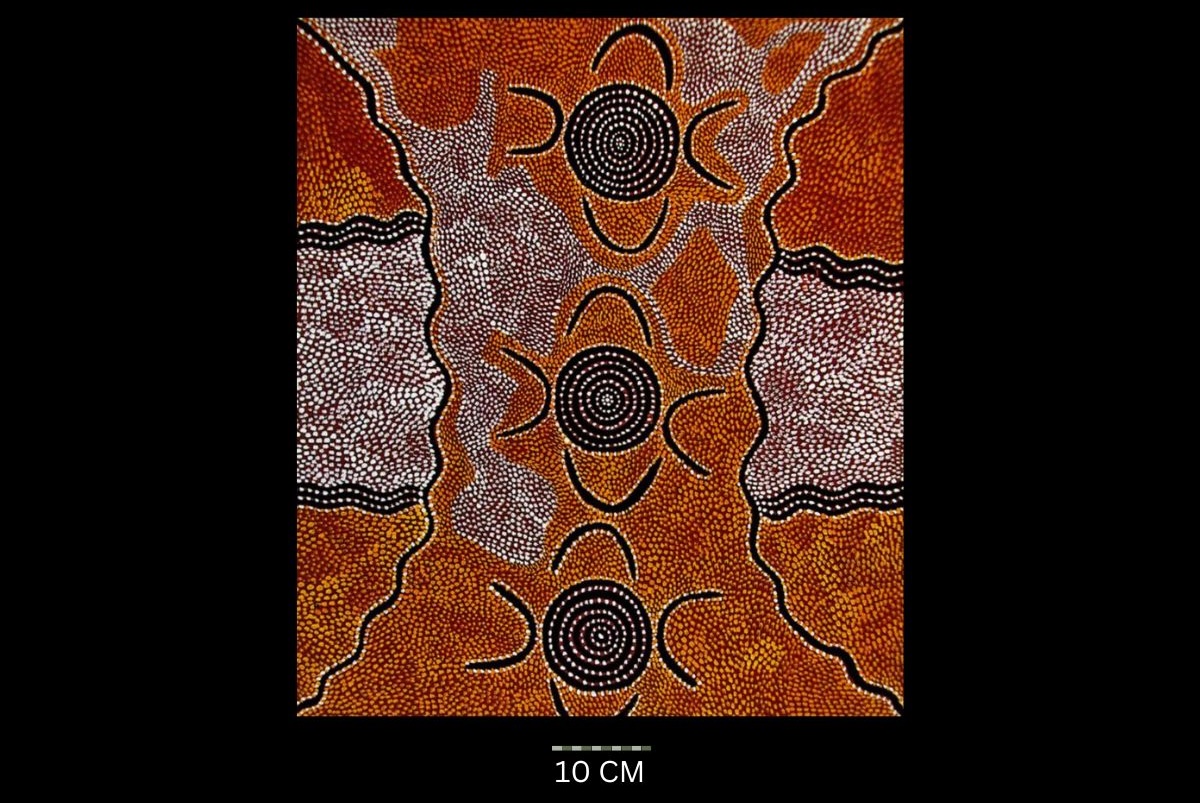
Woman’s Bush Tucker Story, 1972
Synthetic polymer paint on board,
69 x 61 cm
Hammerprice: A$25,000
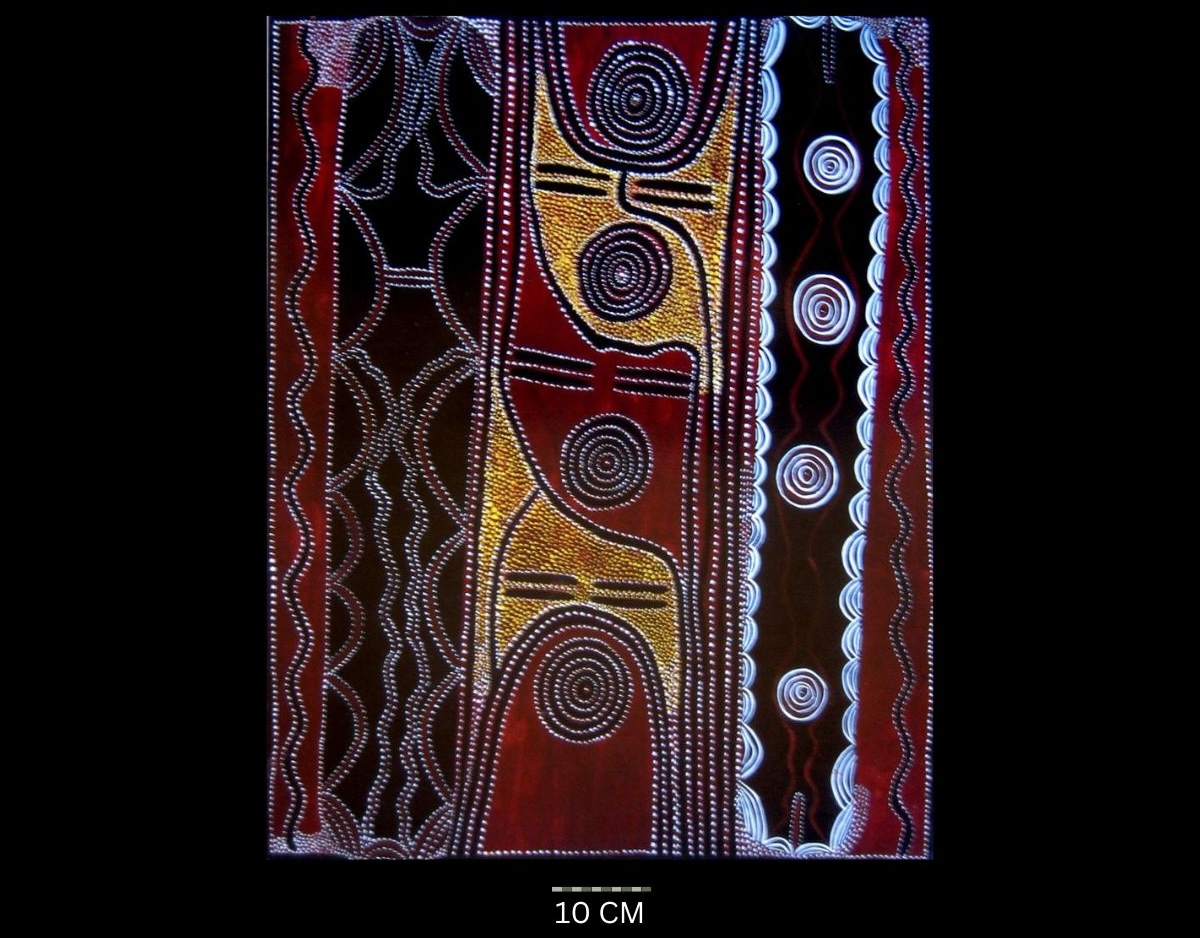
Yala (Bush Potato) Dreaming 1972
Synthetic polymer powder paint on composition board, bears artist’s name title and consignment number 19405 on the reverse,
84 x 55 cm
Hammerprice: A$20,000
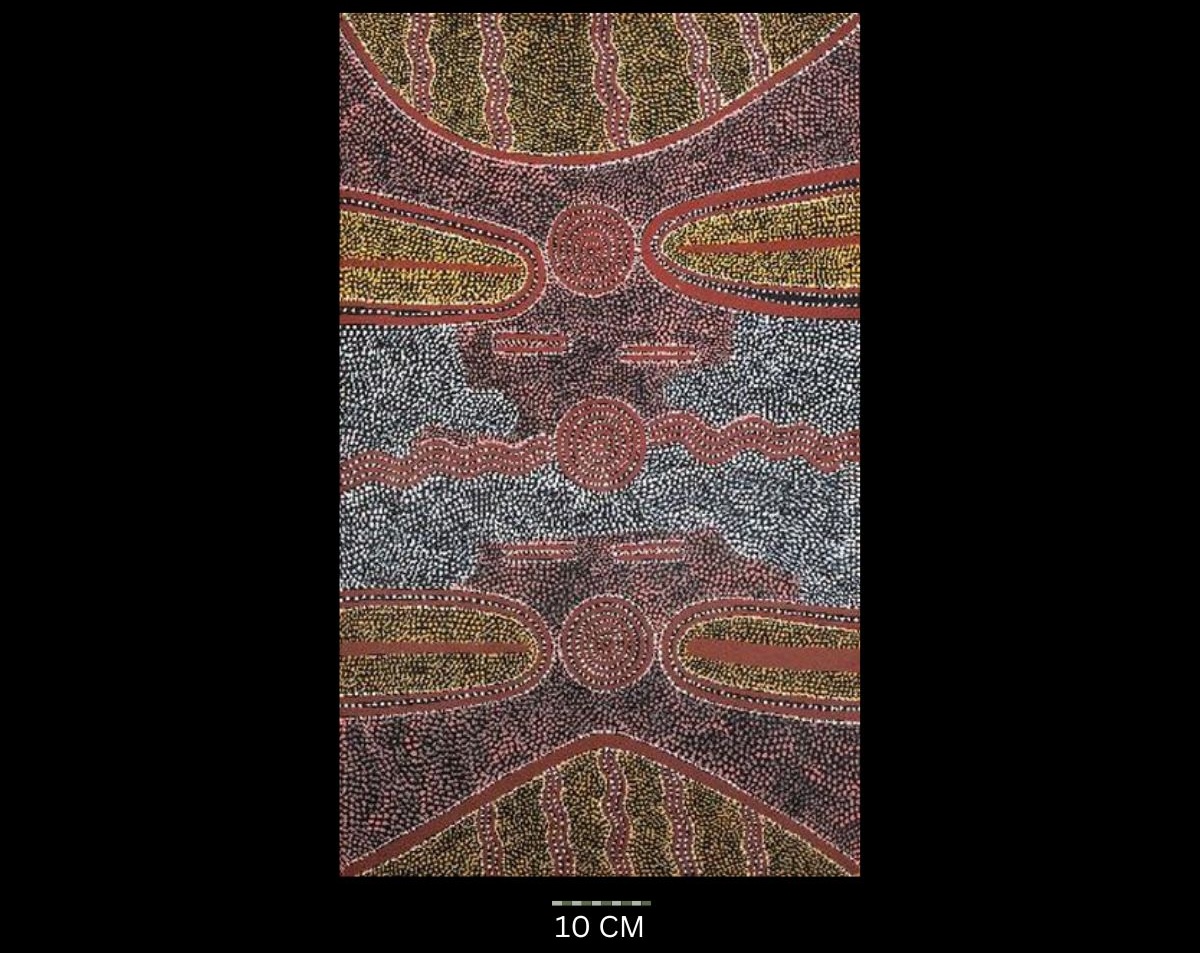
Water Dreaming with Rainbows and Rain, 1972
Synthetic polymer powder paint on composition board,
86.5 x 53 cm
Hammerprice: A$25,000
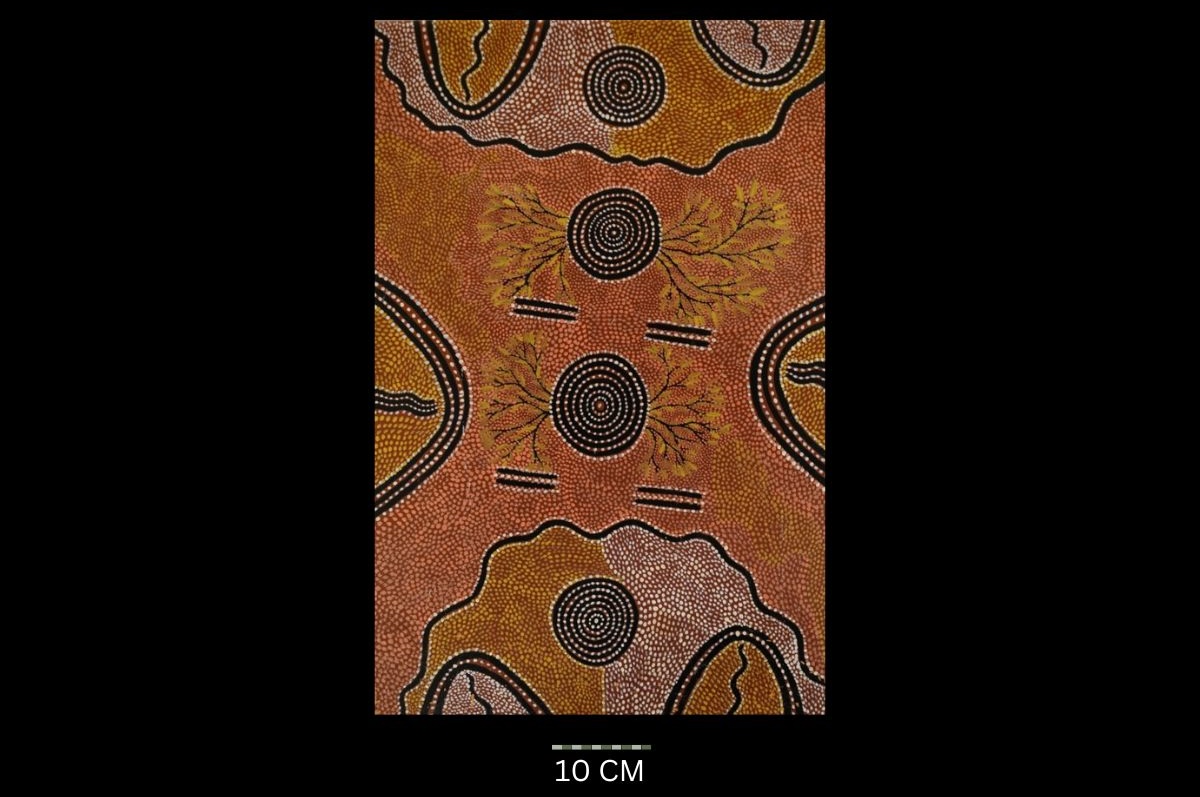
Yala, Bush Potato Dreaming, 1972
Powder pigment on composition board,
69 x 48 cm
Hammerprice: A$5,500
A Visual Language Emerges: Dots, Dreamings, and Vibrant Color (1973–1974)
By 1972 and into 1973–1974, Billy Stockman began incorporating dotted patterns into his compositions not just as decorative fillers, but as dynamic elements that gave his work rhythm and movement. These dots varied in density and size, forming energetic fields that surrounded core symbols like concentric circles — a hallmark of what is now globally recognized as Aboriginal dot painting. Stockman also began to expand his color palette, introducing blends of orange, pink, and green that marked a departure from strictly earthy tones. His iconic work Yala Bush Potato Dreaming exemplifies this transition, blending traditional symbology with experimental, non-traditional representations to captivate non-Indigenous audiences.
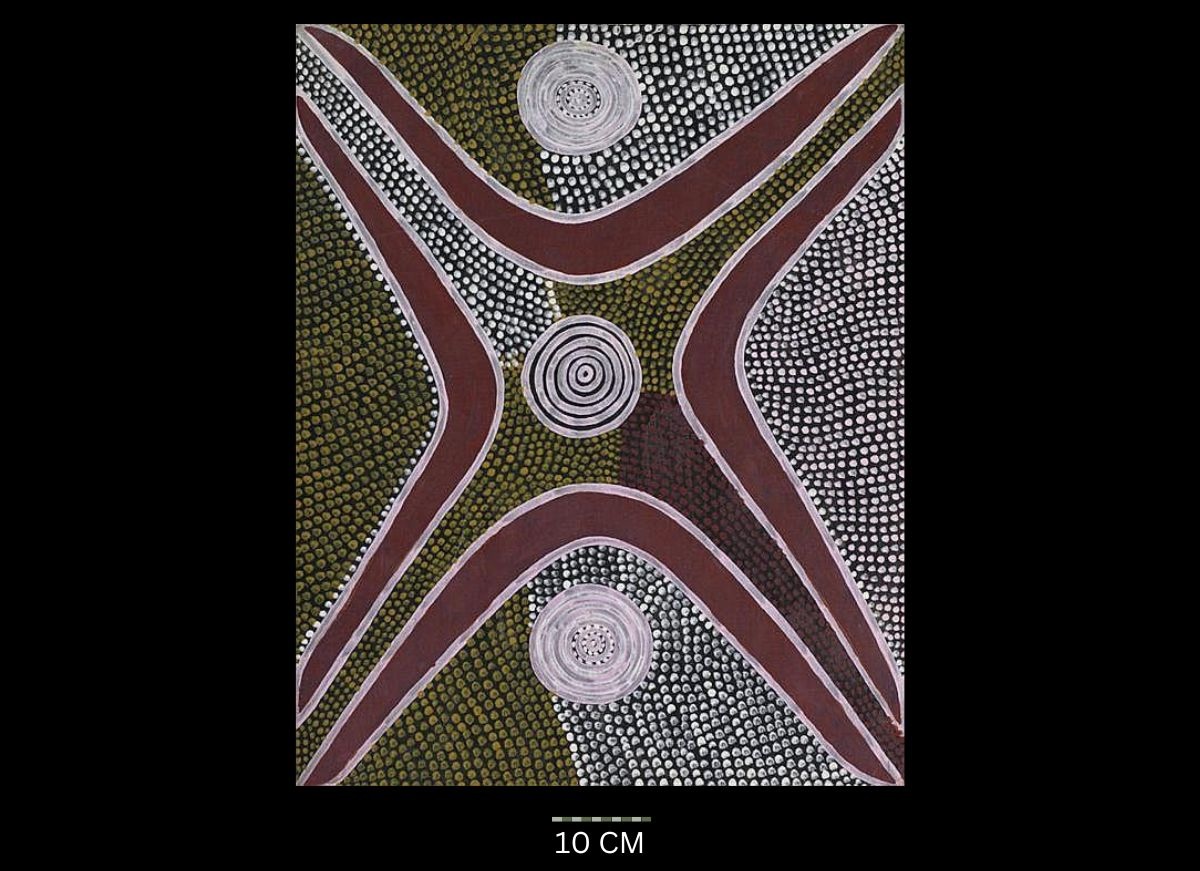
Boomerang Dreaming (1973)
Synthetic polymer paint on artist board,
76 x 61 cm
Hammerprice: A$6,000
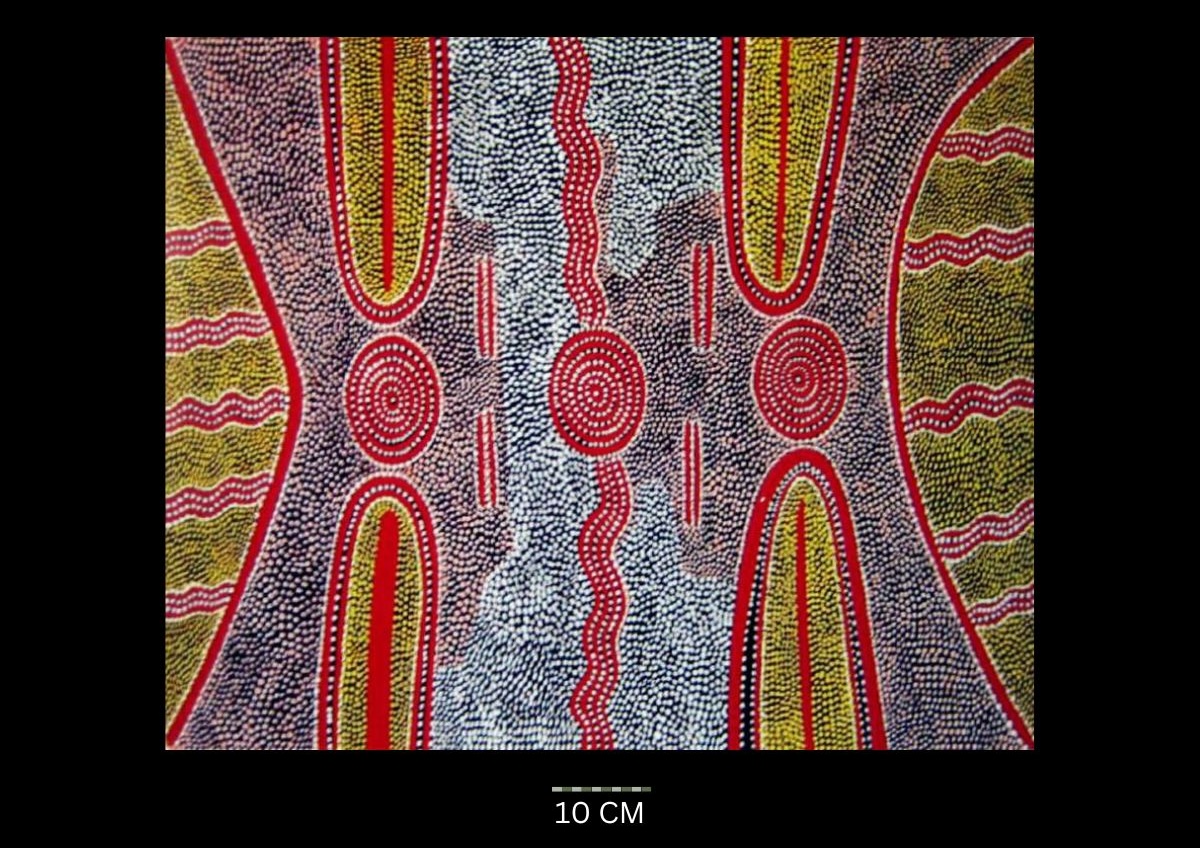
Untitled, c. 1973
Synthetic polymer powder paint on composition board,
86.5 x 53 cm
UNSOLD
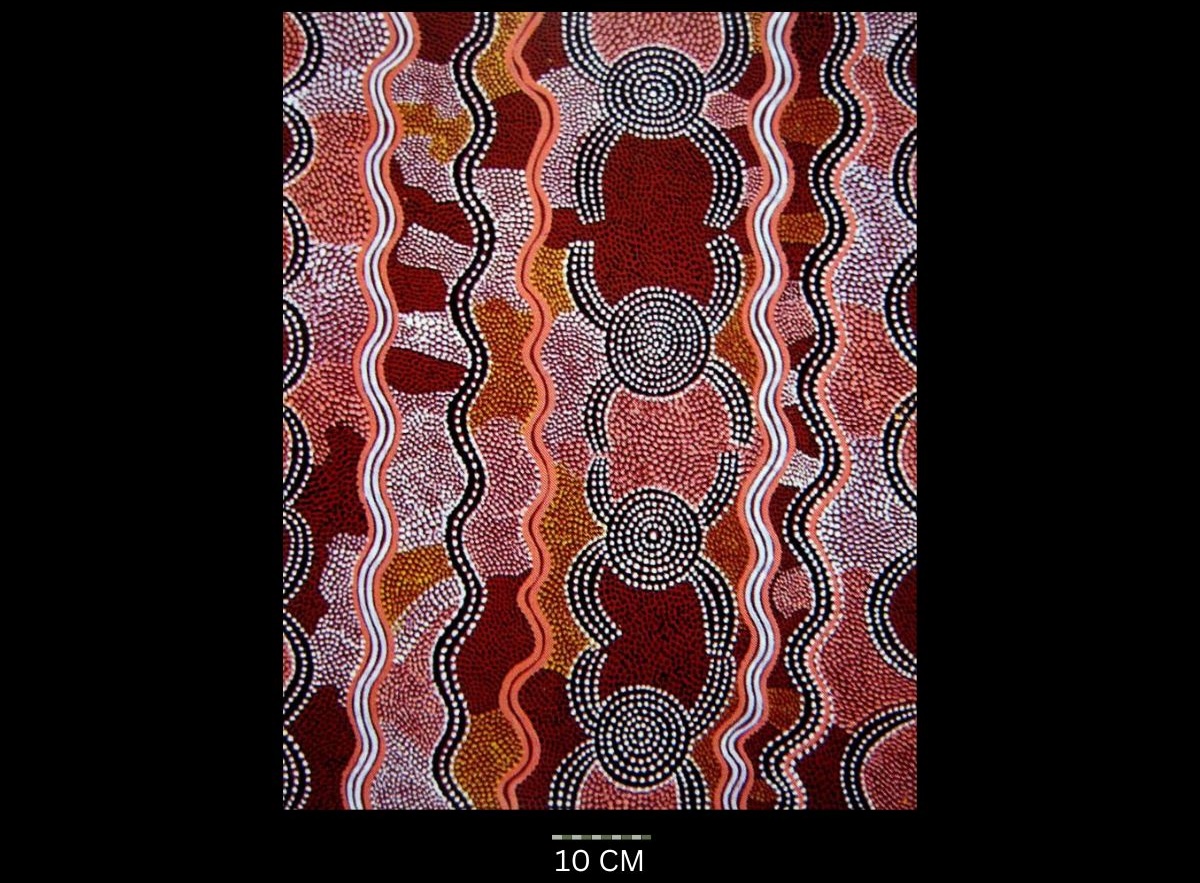
Frog Corroboree 1973
Synthetic polymer paint on chipboard, bears artist’s name, title and date on Aboriginal Arts and Crafts catalogue number BS731129 on label on the reverse,
79 x 61 cm
Hammerprice: A$2,600
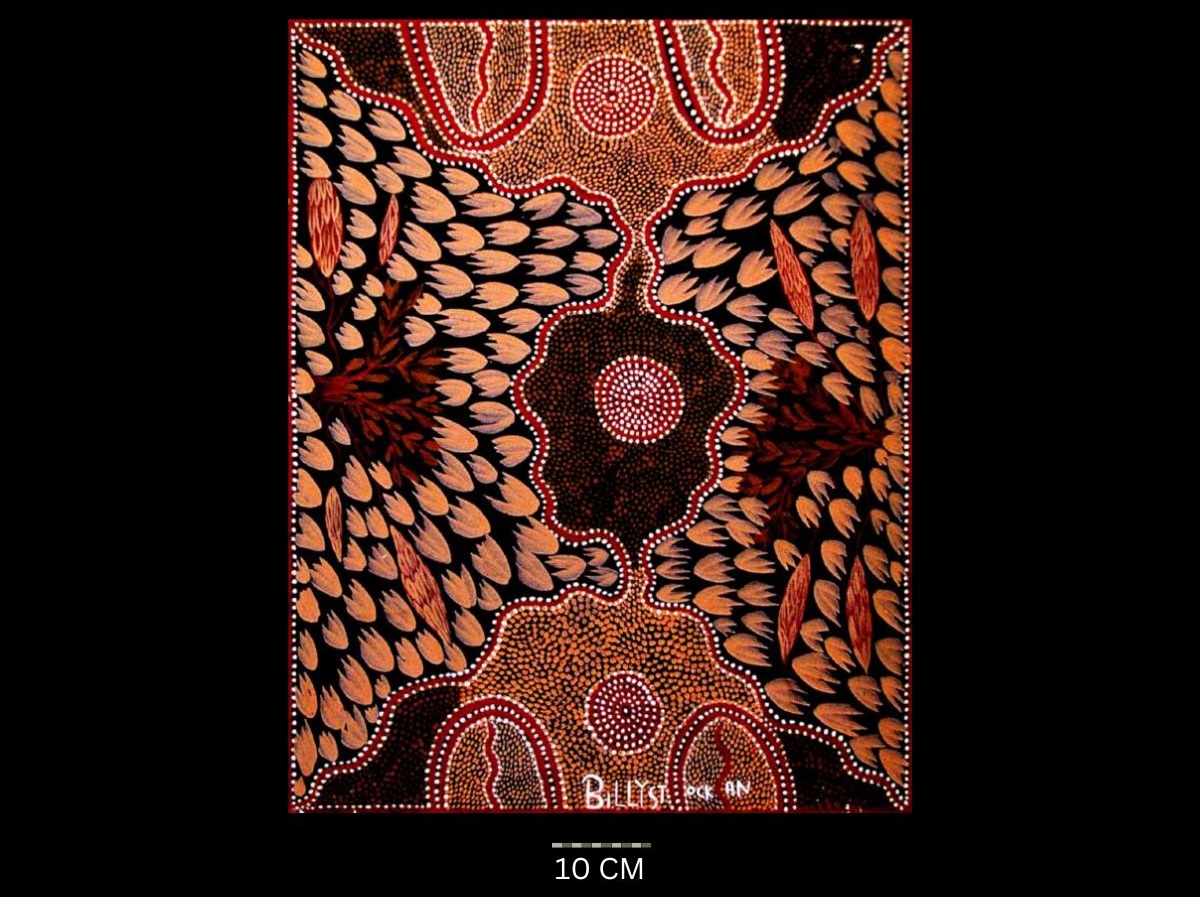
Yala (Wild Potato Dreaming) 1973
Synthetic polymer powder paint on composition board, signed Billy Stockan (sic) lower margin,
79 x 62 cm
UNSOLD
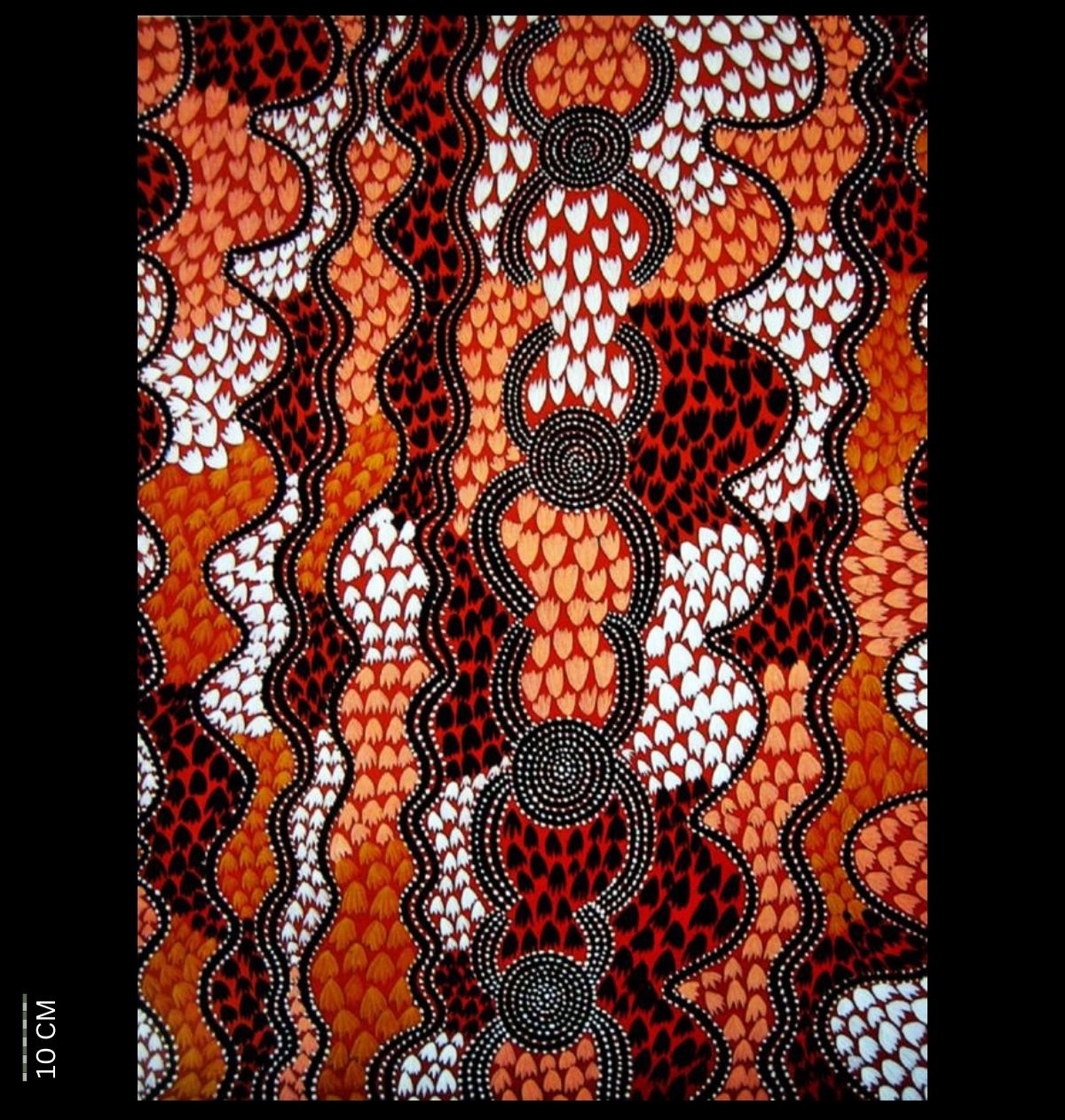
Frog Corroboree 1973
Synthetic polymer paint on composition board, bears Papunya Tula Artists catalogue number BS731206 on the reverse,
122.5 x 93 cm
Hammerprice: A$7,000
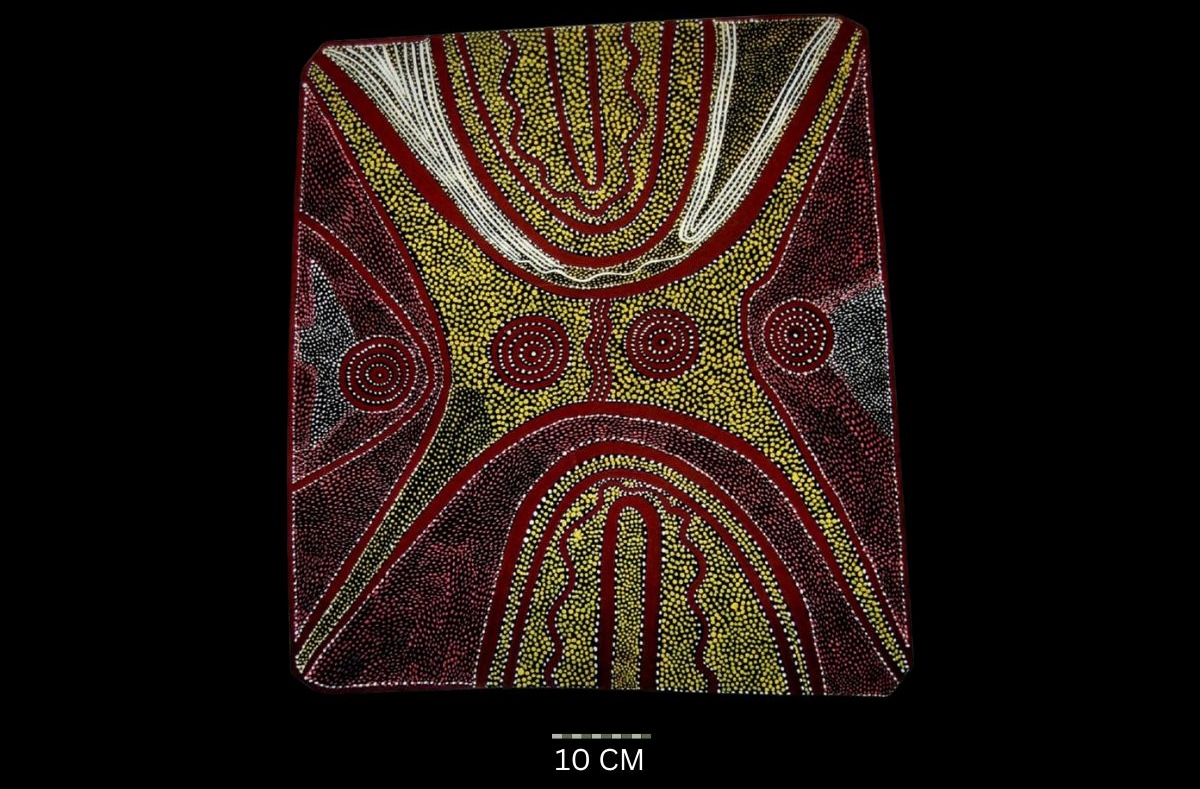
Rainbow Water Dreaming with Yam Bush Tucker 1973
Synthetic polymer powder paint on composition board,
69 x 62 cm
UNSOLD
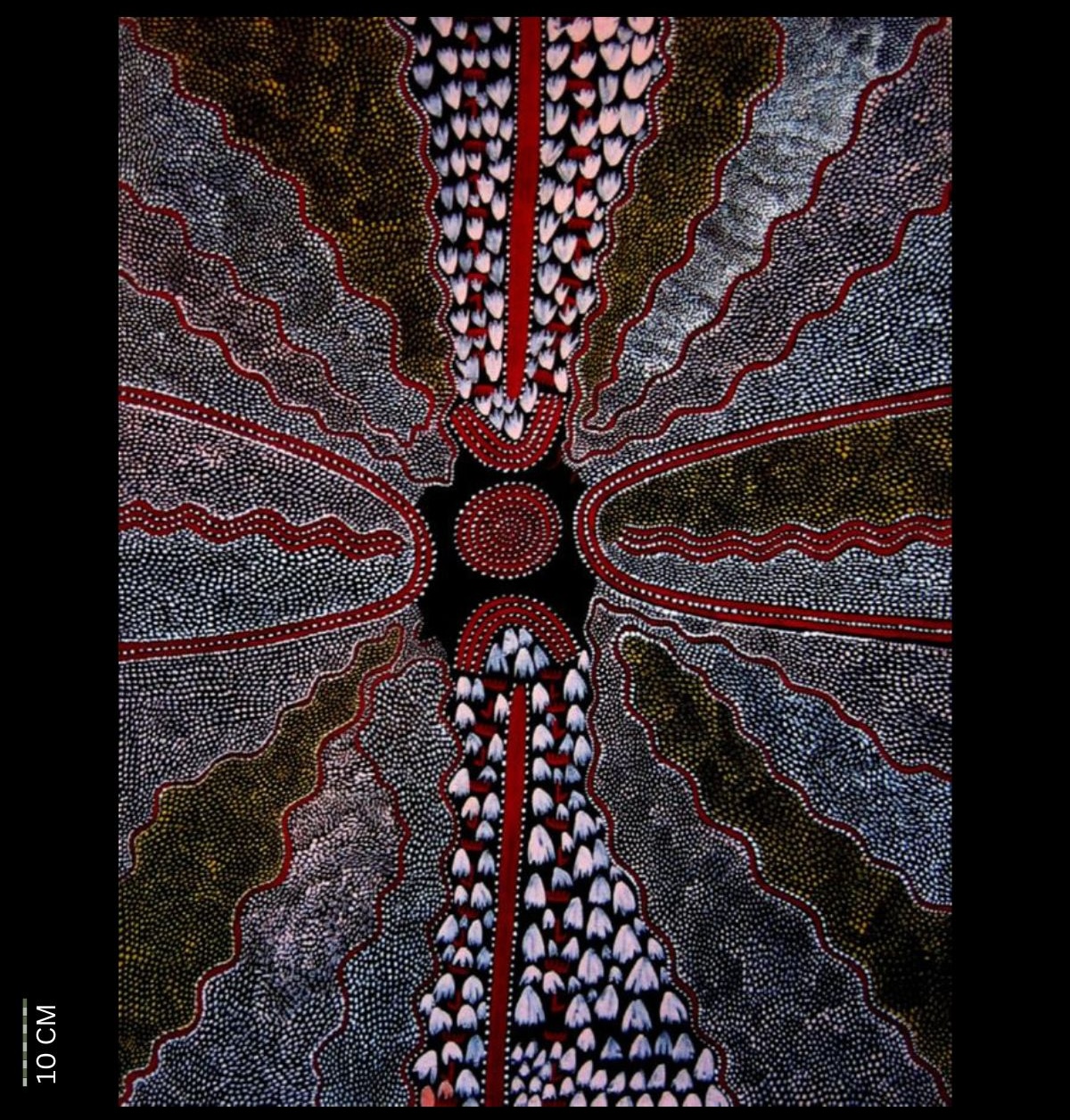
Kangaroo Dreaming 1973
Synthetic polymer paint on composition board, bears artists name title medium and code P22 on label together with Papunya Tula Artists catalogue number BS731205 and the number P22 in felt pen on the reverse,
122 x 92 cm
Hammerprice: A$17,000
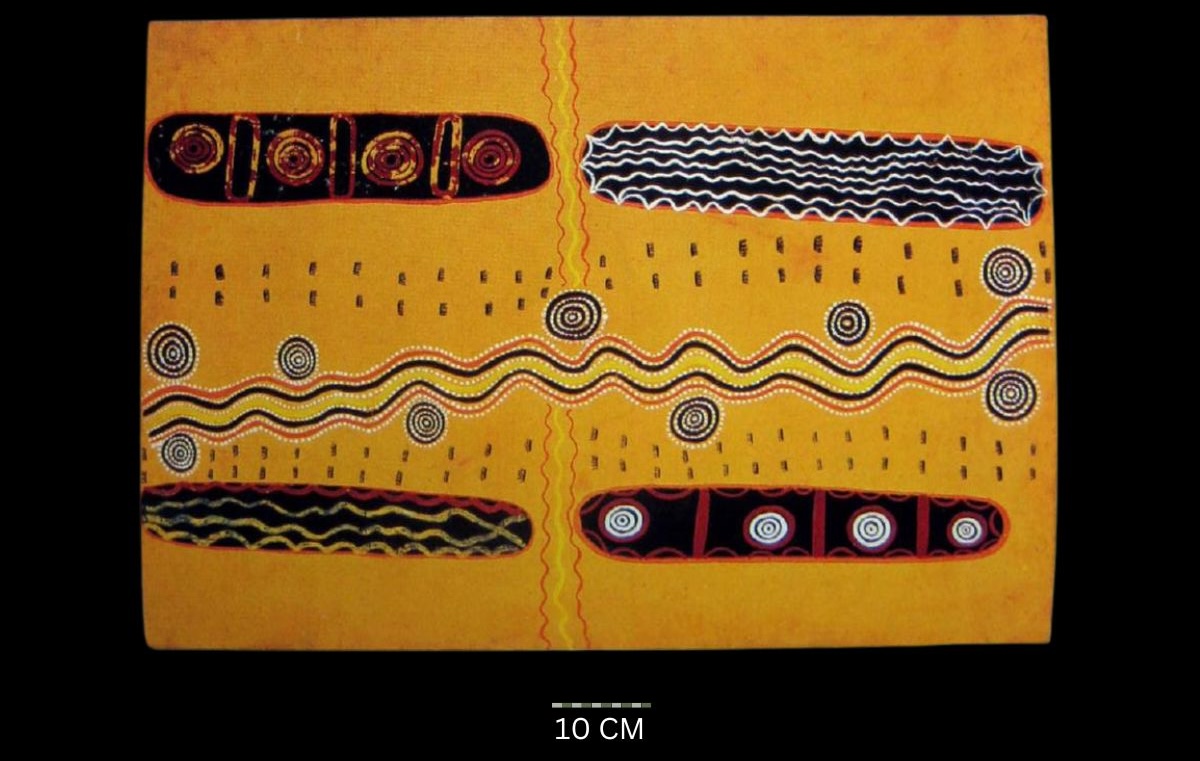
Totemic Possum Dreaming 1973
Synthetic polymer powder paint on board,
92 x 64 cm
Hammerprice: A$25,000
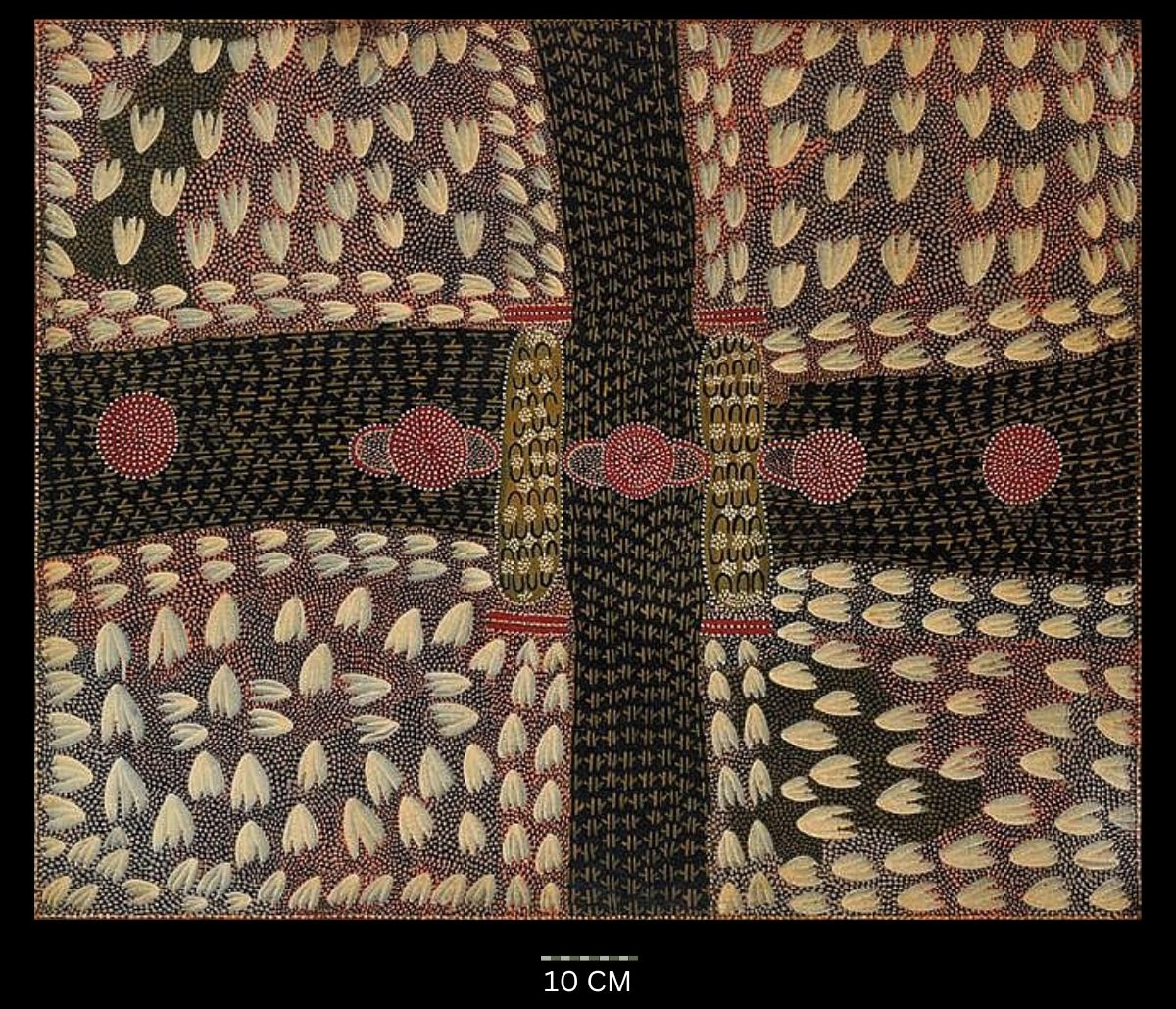
Untitled (Ngatitjirri Dreaming at Ilpitirri) (1973)
Synthetic polymer paint on composition board,
113 x 92 cm
Hammerprice: A$25,000
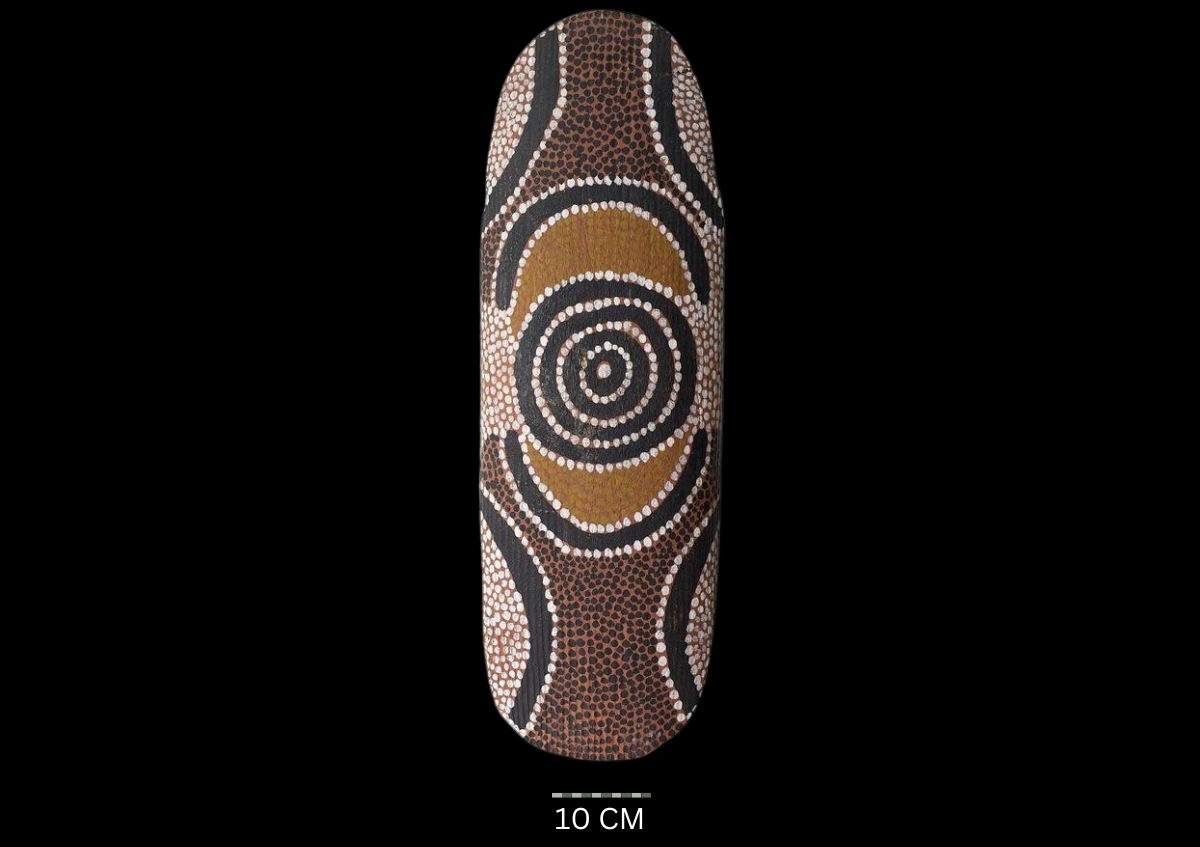
Alpar (Coolamon) (1974)
Synthetic polymer paint and natural earth pigments on carved softwood,
75 x 24.5 cm
Hammerprice: A$2,400
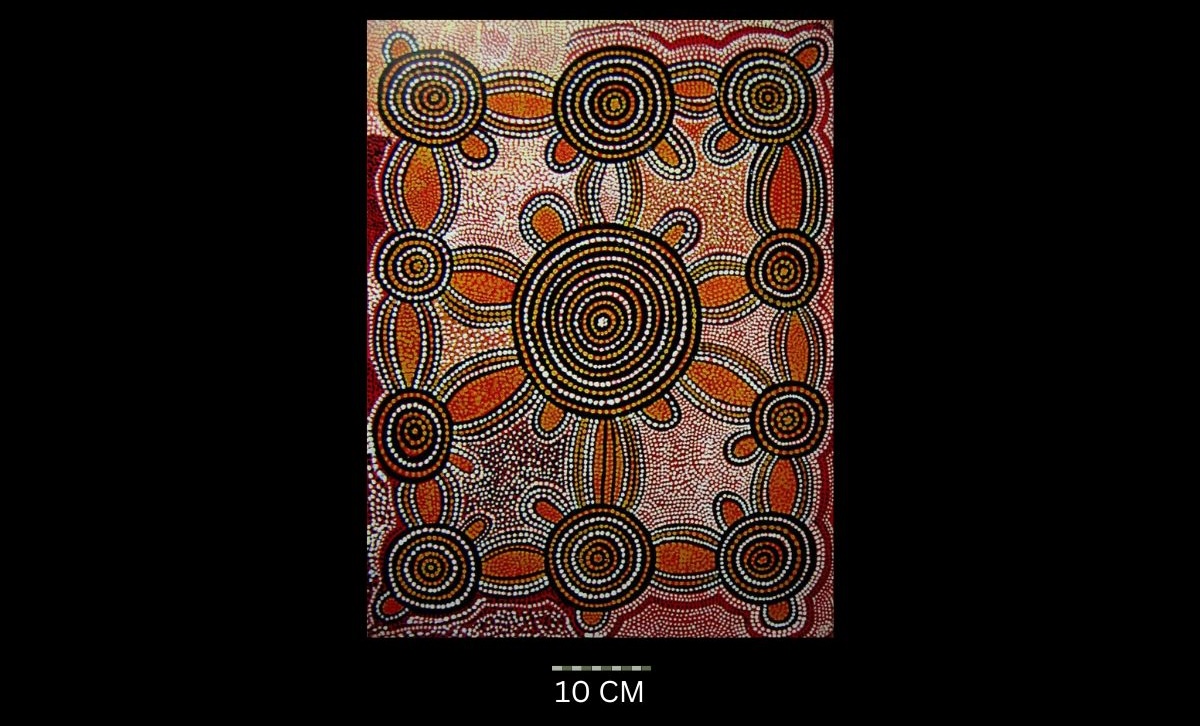
A Long Dreaming II 1974
Synthetic polymer paint on chipboard, bears artist’s name, date and title on label on the reverse of the frame,
61 x 46 cm
UNSOLD
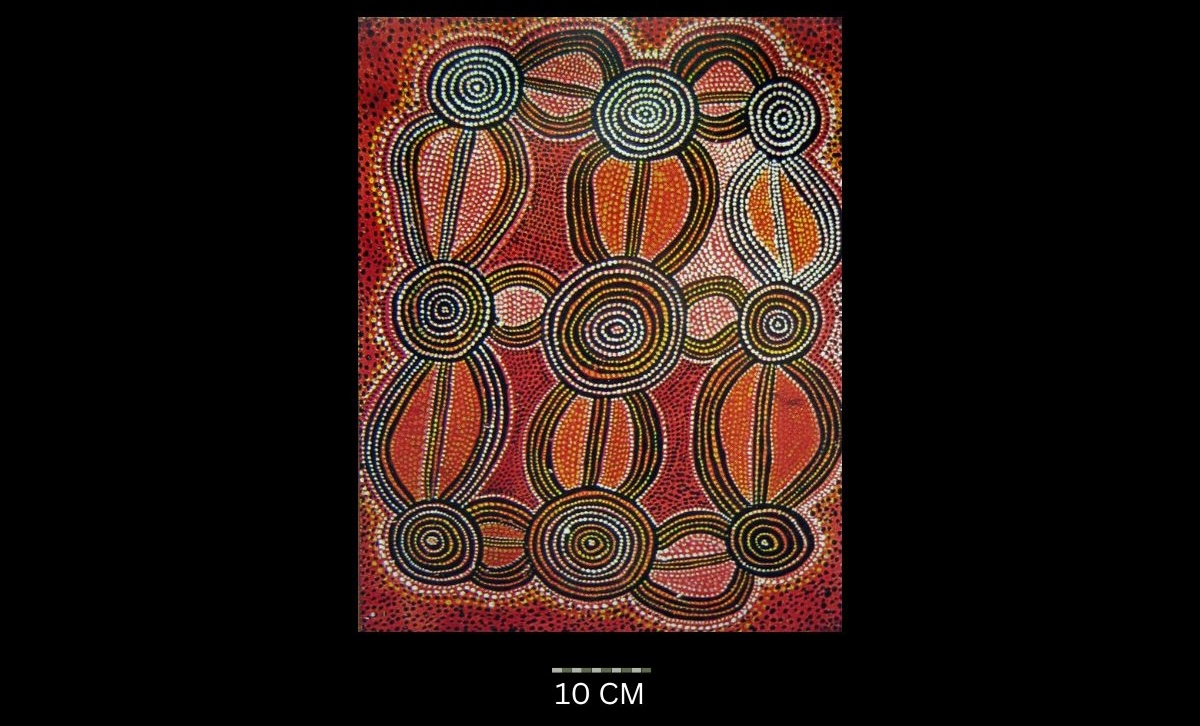
A Long Dreaming Journey I, 1974
Synthetic polymer paint on chipboard, bears artist’s name, date and title on label on reverse of frame, 61 x 46 cm
UNSOLD
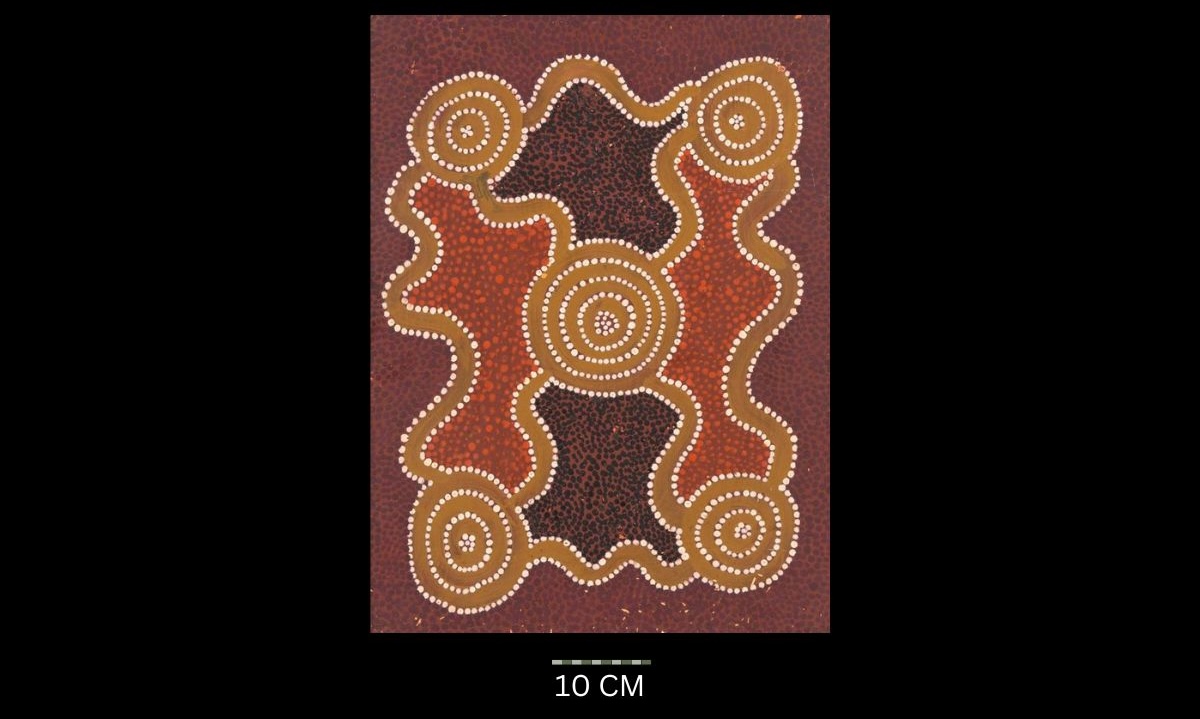
Dreaming Pattern c. 1974
Synthetic polymer paint on board,
61 x 46 cm
Hammerprice: A$3,800
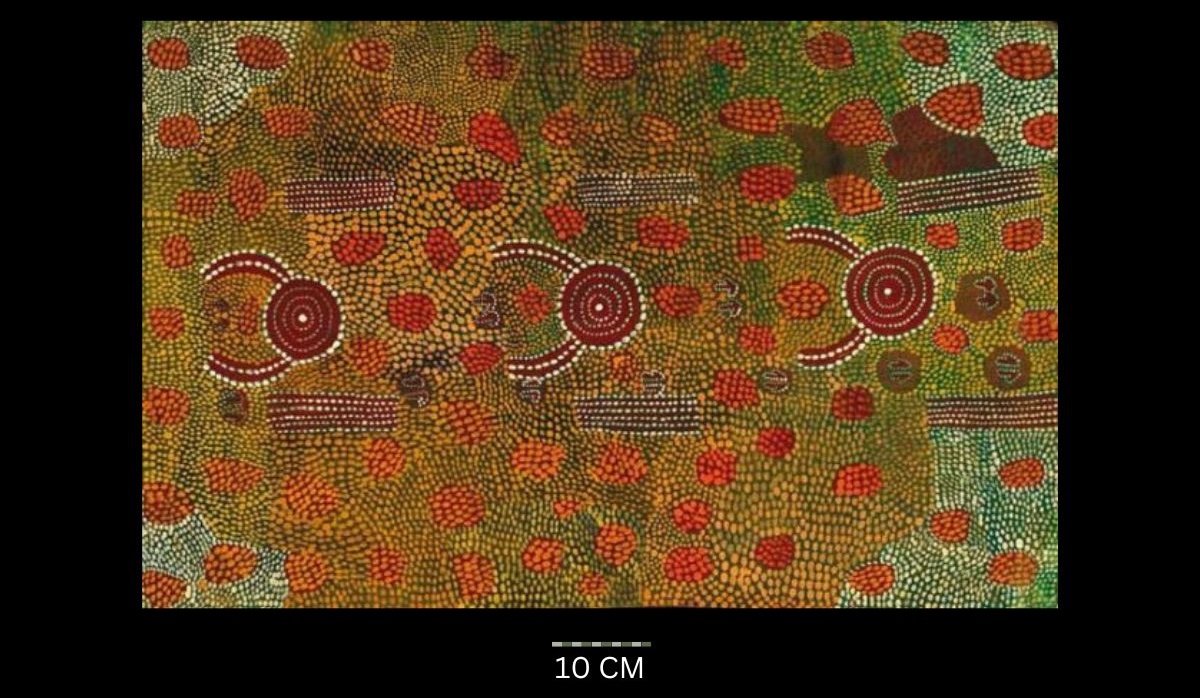
Kangaraoo Dreaming, c. 1970’s
Acrylic on board,
91.5 x 58.5 cm
Hammerprice: A$4,500
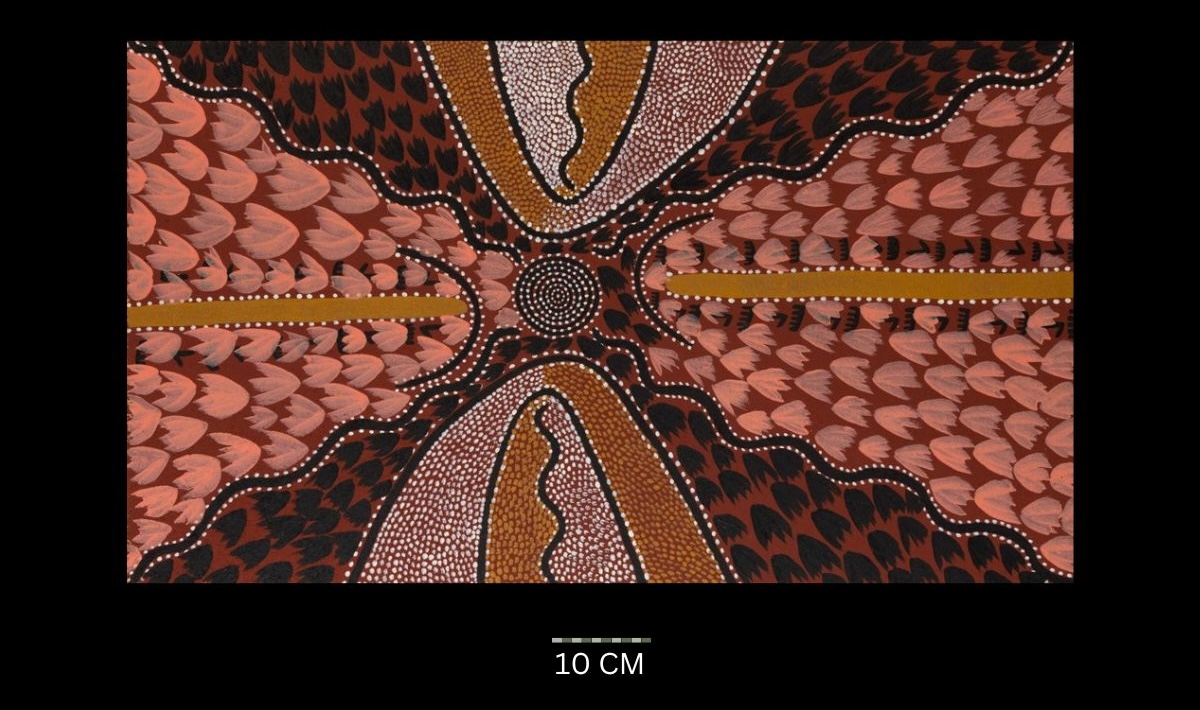
Kangaroo Dreaming 1974
Oil on composition board,
94 x 54.5 cm
Hammerprice: A$8,000
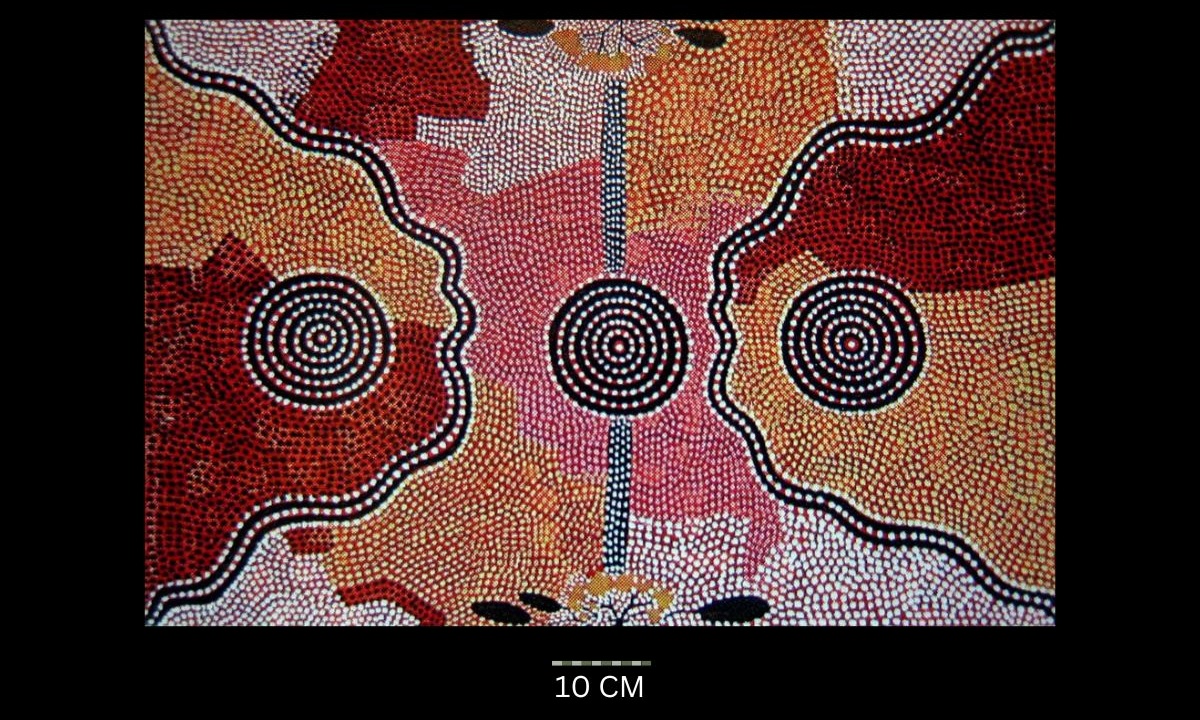
Wild Potato Dreaming 1974
Synthetic polymer paint on canvas board,
61 x 91 cm
Hammerprice: A$3,200
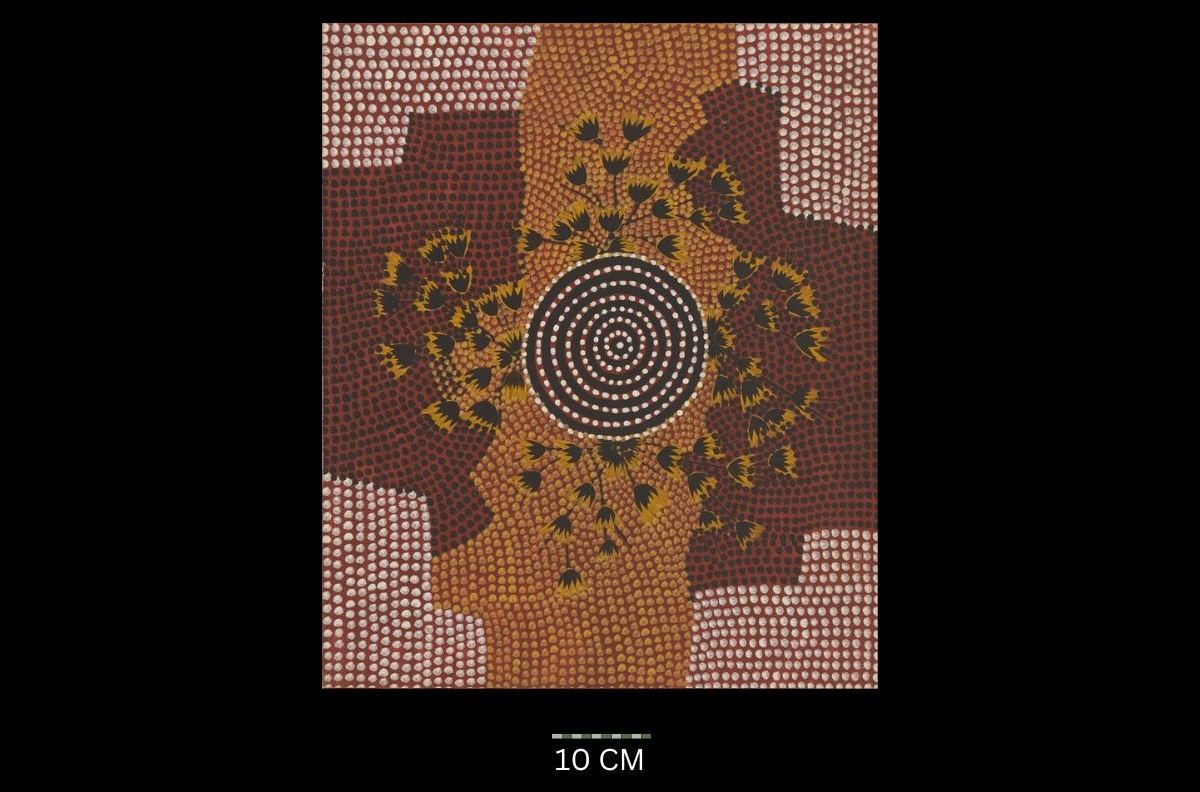
Bush Potato (Yam) Dreaming at Ilpitirri 1973
Synthetic polymer paint on canvasboard, artist’s name inscribed on backing verso,
55.5 x 66 cm
Hammerprice: A$3,600
N.B Sold as 1973 but this is unlikely as canvas board was not available until 1974
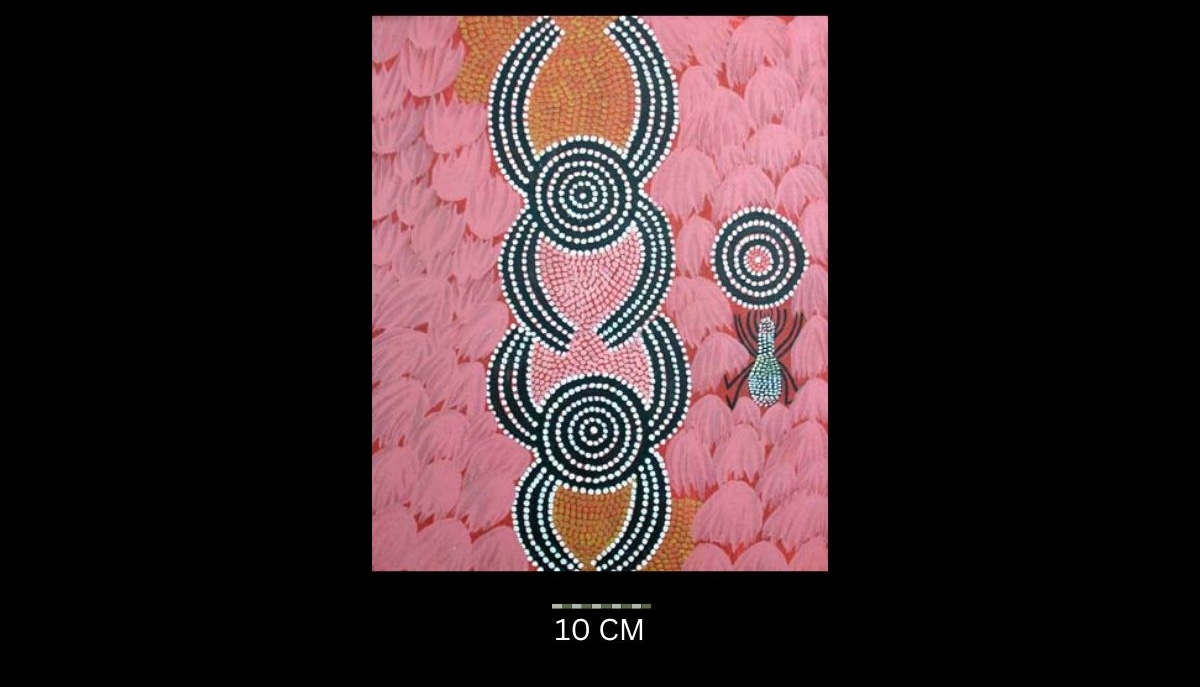
Spider Dreaming
Date not recorded but likely 1974-75
Synthetic polymer paint on composition board,
55.5 x 45.5 cm
Hammerprice: A$4,000
From Cultural Expression to Global Appeal: The Rise of Billy Stockman’s Signature Style (1975–1980)
Between 1975 and the early 1980s, Billy Stockman Tjapaltjarri played a central role in shifting Aboriginal art from cultural practice to commercial success. His brightly colored compositions and use of simplified Dreaming designs, often painted on Masonite or Belgian linen, made his art more accessible to European collectors and galleries. His work typified the emerging consumer-driven Aboriginal art market: bold, consistent, and easily recognizable. From the 1980s onward, Stockman produced an enormous volume of artworks, often using larger dots and looser techniques to meet growing demand. While some critics suggest a decline in precision, his later works — featuring snakes, concentric circles, and expansive dotted backgrounds — cemented his legacy as a prolific, market-savvy artist whose influence shaped the global understanding of Aboriginal desert painting.
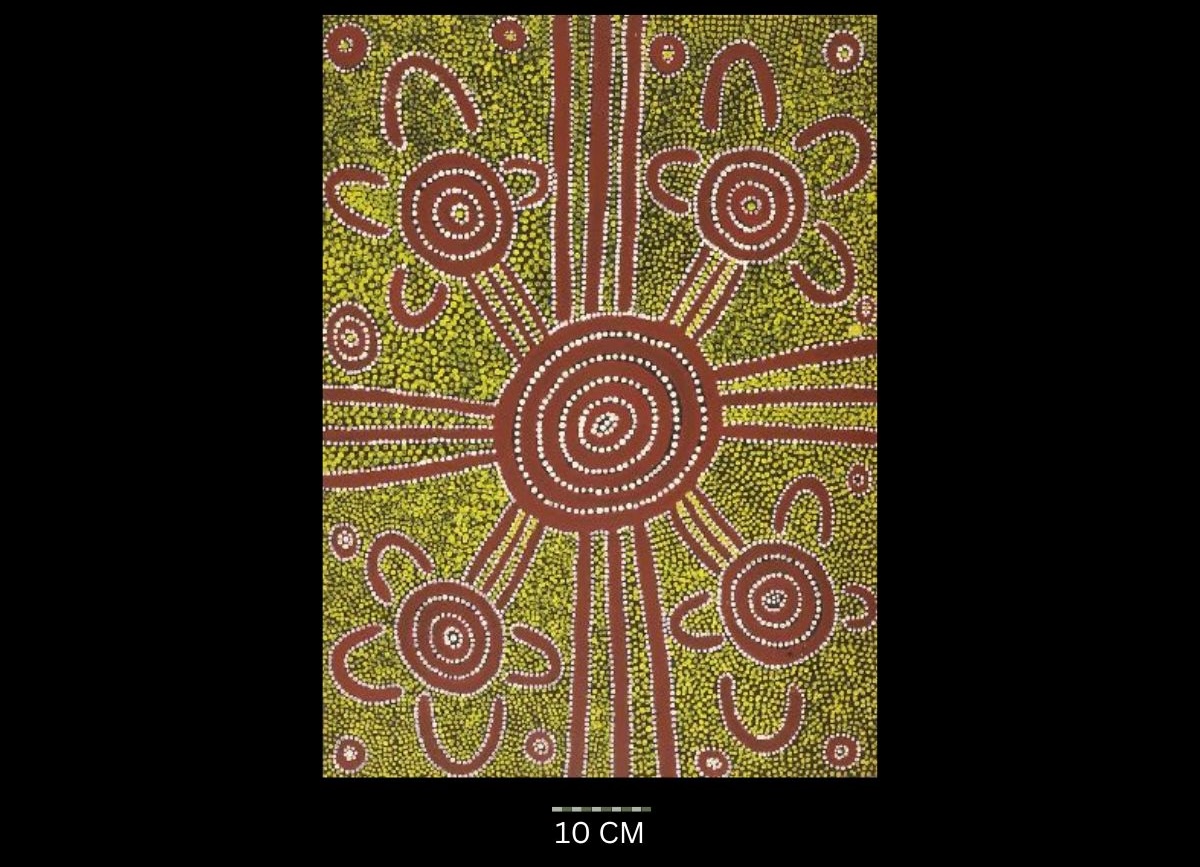
Ceremonial Men’s Design, 1975
Synthetic polymer paint on canvas on board,
76.5 x 56 cm
Hammerprice: A$3,000
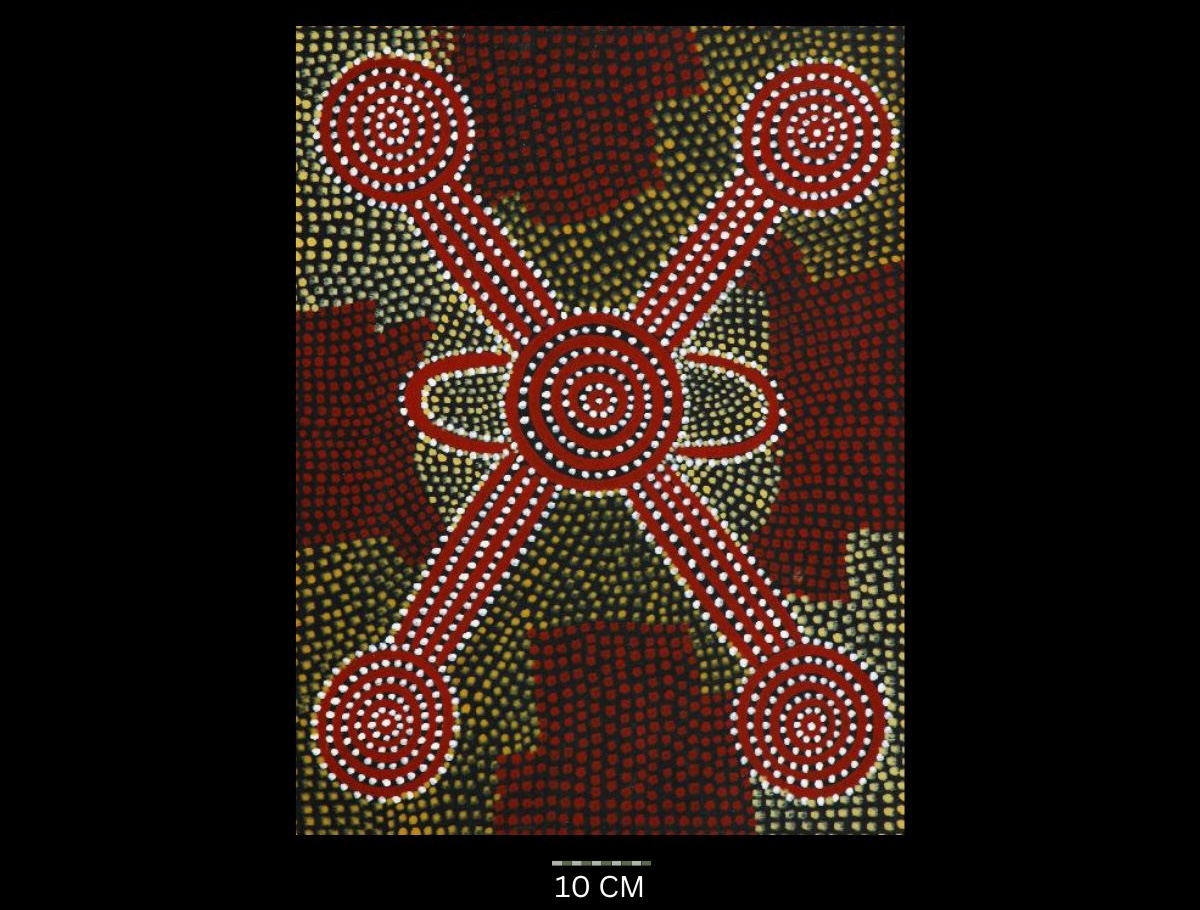
Untitled c. 1975
Synthetic polymer paint on canvas on board, signed verso and original label attached to verso,
60.5 x 45.5 cm
Hammerprice: A$3,400
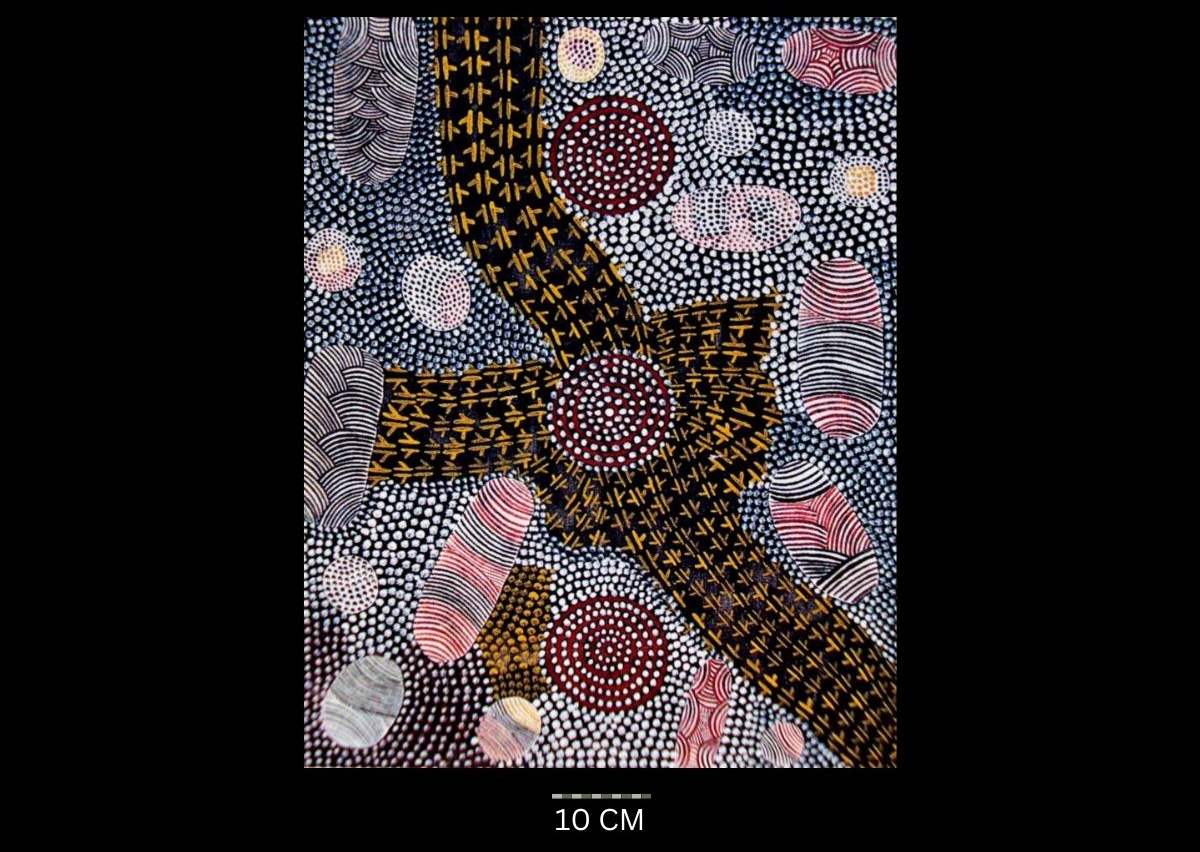
Budgerigars 1975
Synthetic polymer paint on artists board, signed by the artist ‘Billy Stokman’ (sic) and bears Papunya Tula Artist’s catalogue number 75210BS on the reverse,
75 x 60.5 cm
Hammerprice: A$5,000
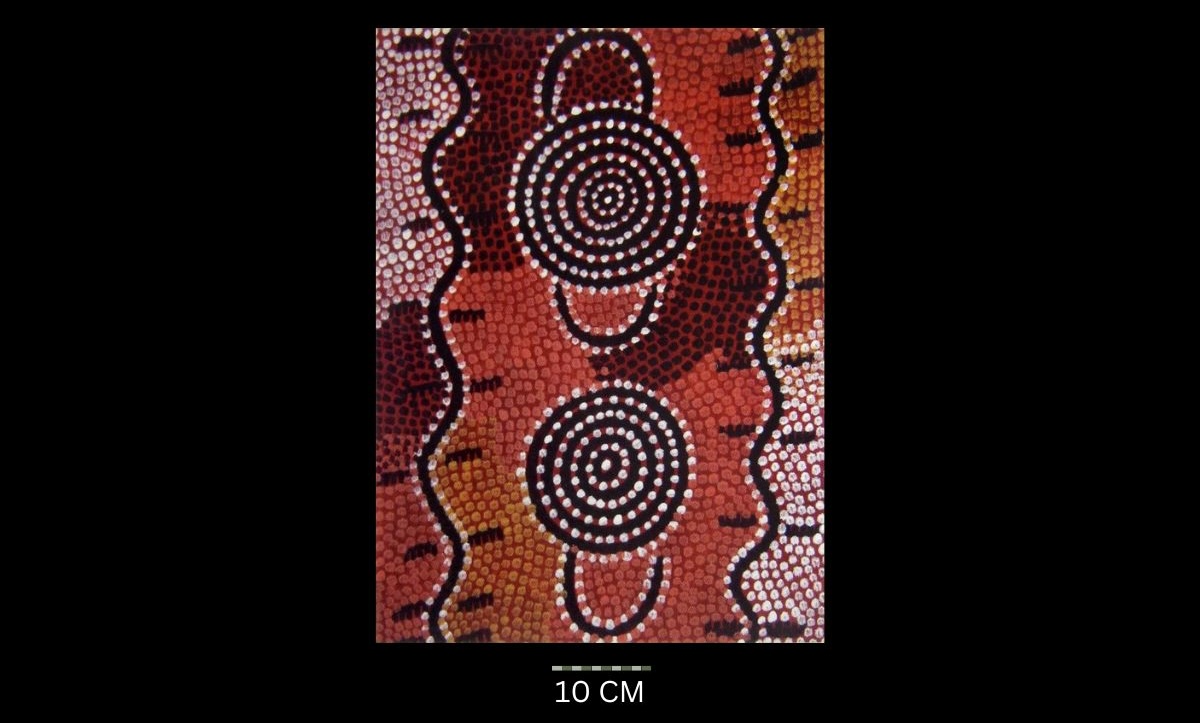
Malaparra Possum Men Ceremony, 1976
Synthetic polymer paint on canvas board, cased in Perspex box, inscribed verso ‘BS76876’ and ‘156/0011/5’,
61 x 41 cm
Hammerprice: A$2,800

Jaljikalong – Site Associated with the Frog Dreaming, 1976
Synthetic polymer paint on canvas board, cased in perspex box, signed verso ‘Billy Stockman’ and inscribed ‘BS76925’ and ‘187/ONII/5’,
50 x 40 cm
Hammerprice: A$3,200
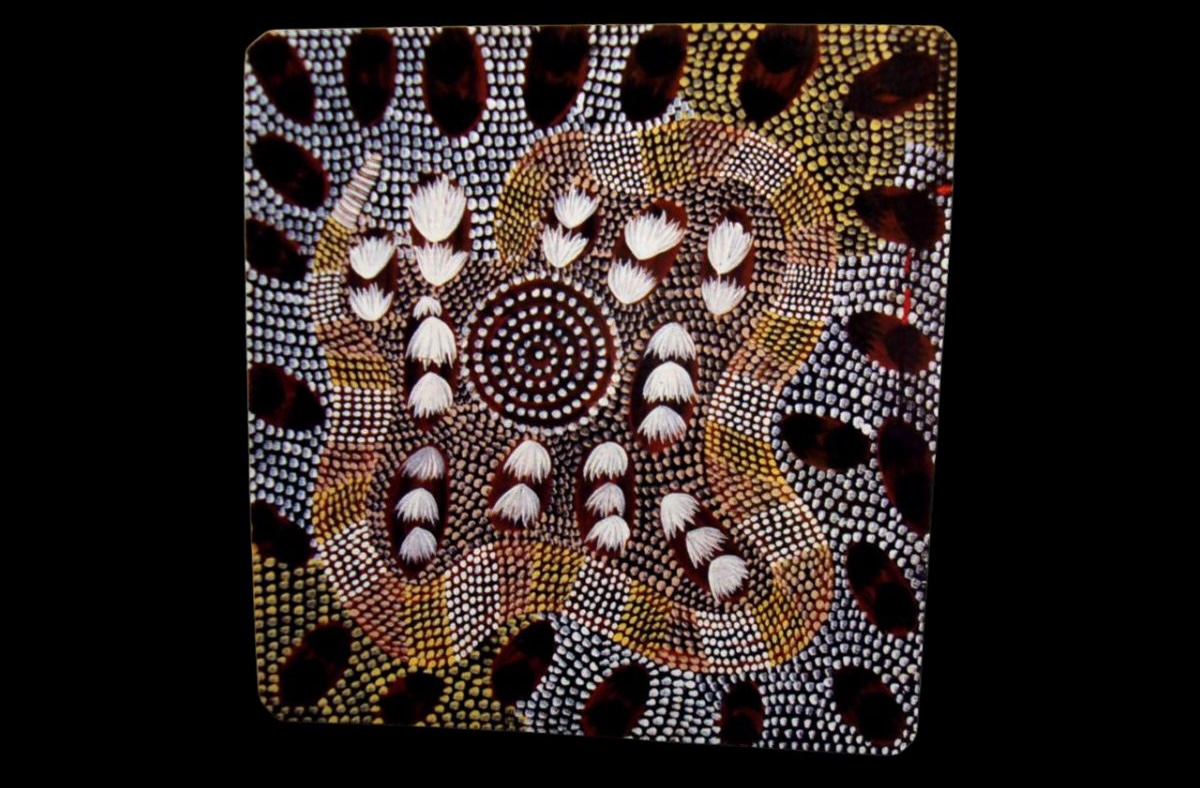
Untitled c. 1977
Synthetic polymer paint on composition board
No size recorded
Hammerprice: A$2,800
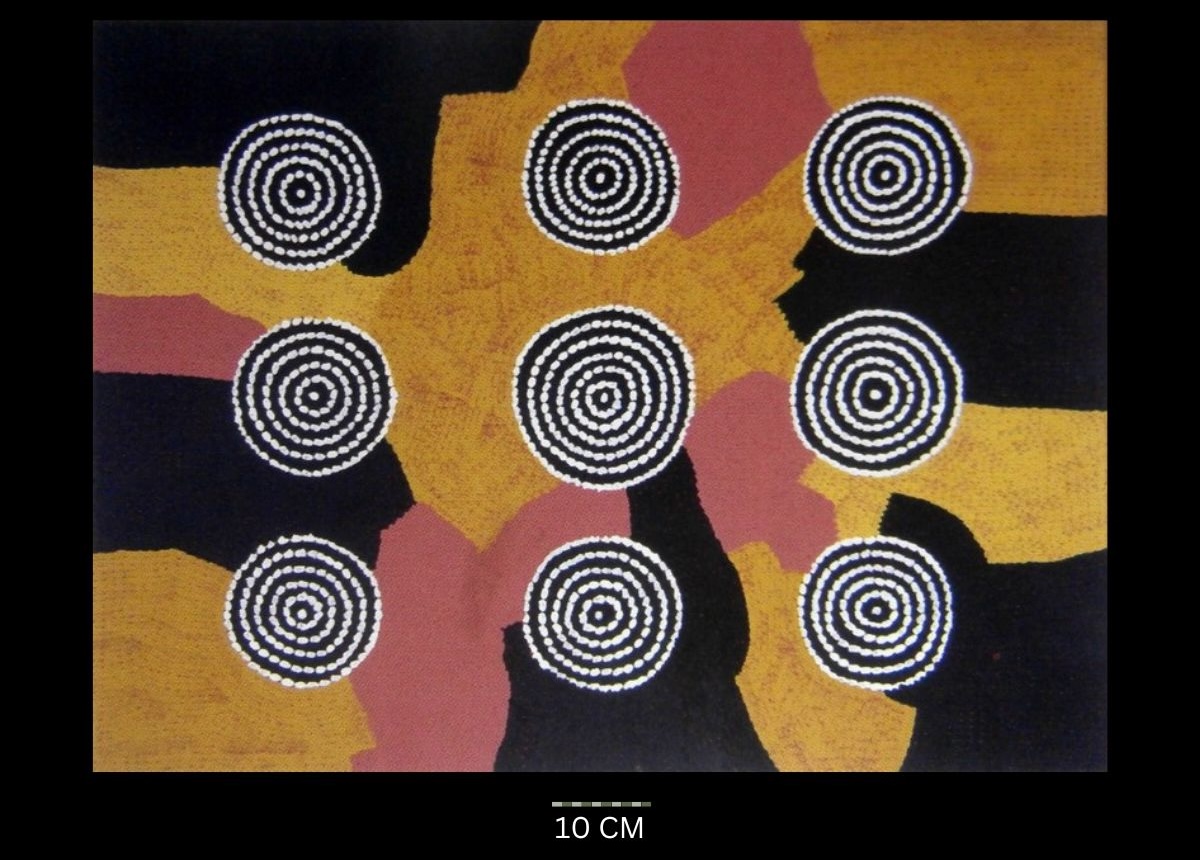
Spider Dreaming, 1977
Synthetic polymer paint on canvas, framed, signed verso ‘Billy Stockman’ and inscribed ‘KLN877’,
101 x 76 cm
Hammerprice: A$2,700
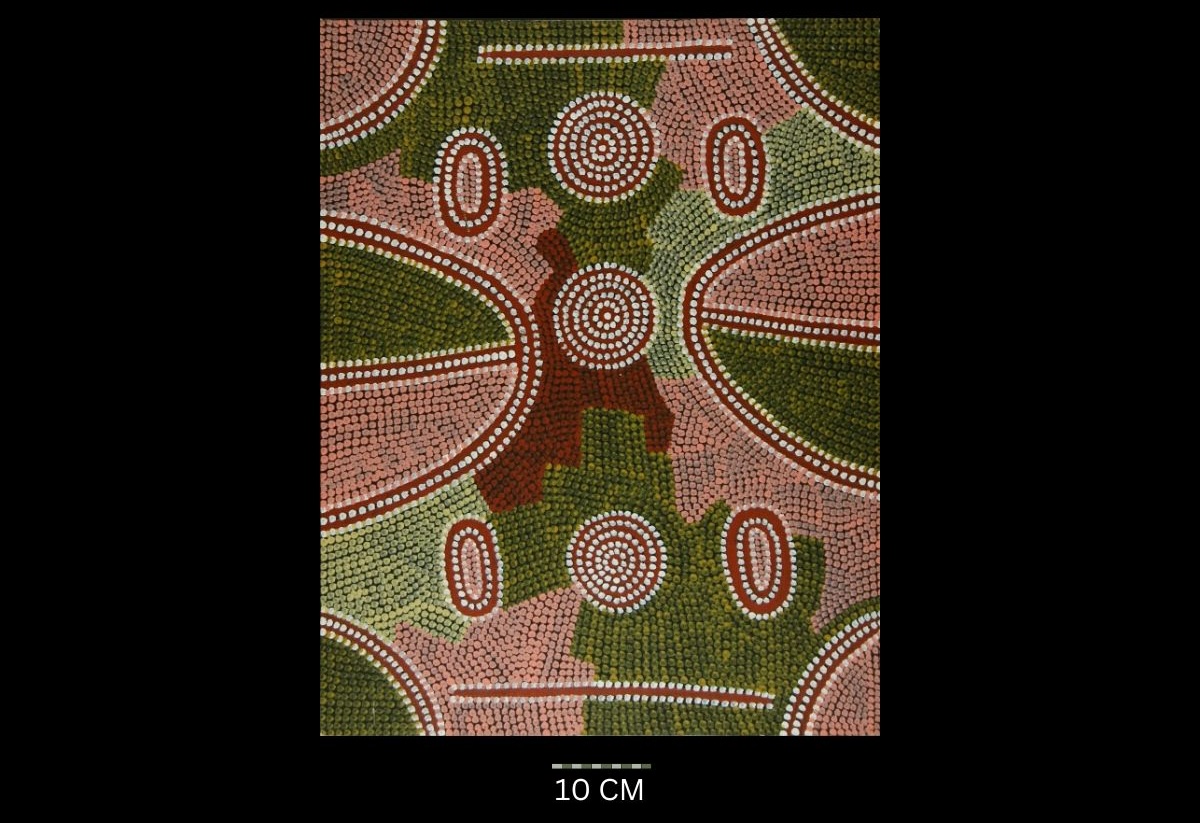
‘Old People (Men) Hunting Kangaroo’ C.1977
Acrylic on prepared board,
71 x 56 cm
Hammerprice: A$3,250
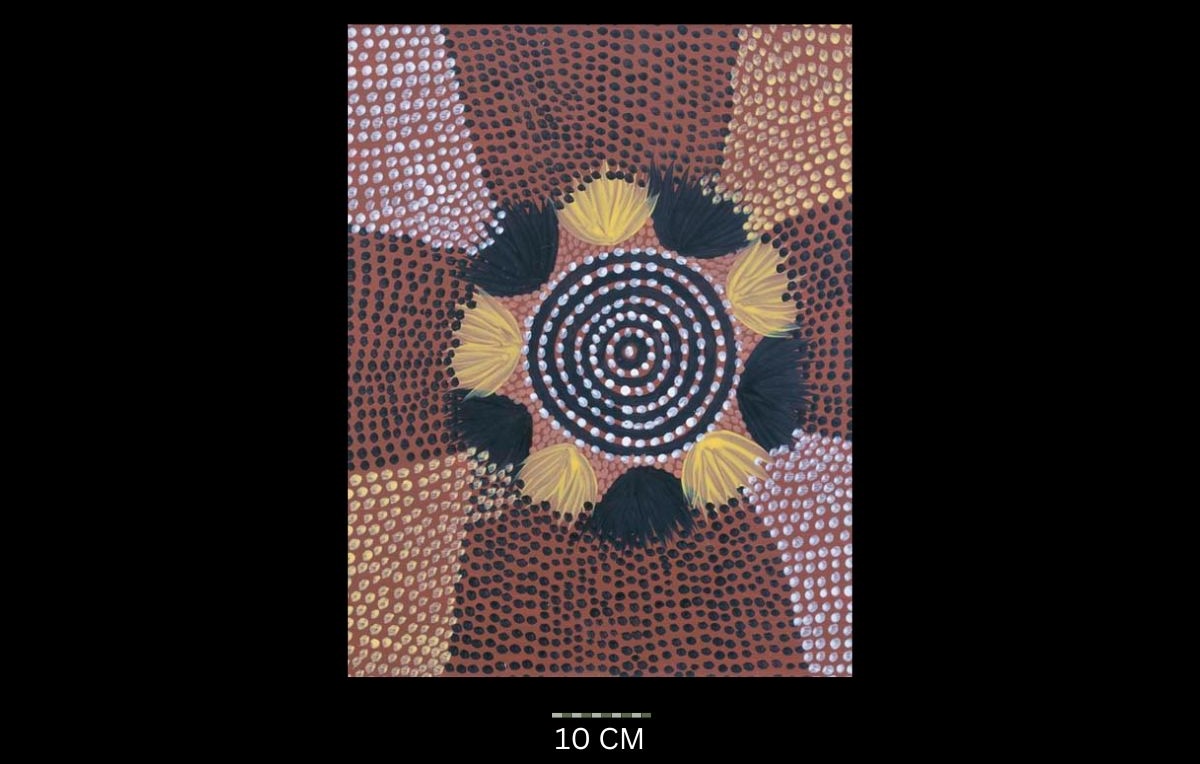
Yala Illpitiri 1978
Synthetic polymer paint on board, with Papunya Tula Artists number BS780113 on the reverse,
50 x 40 cm
Hammerprice: A$3,000
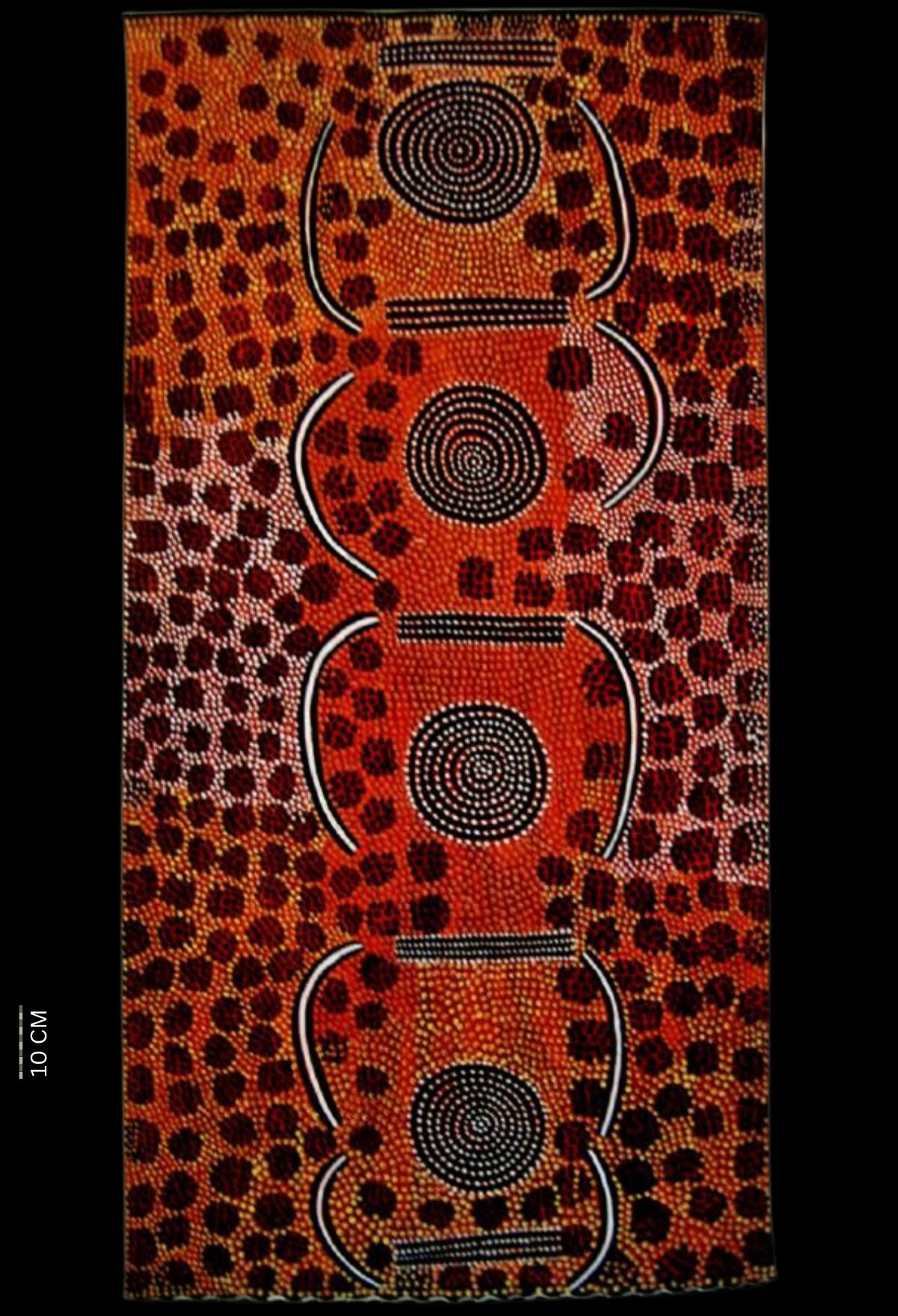
Butterfly Dreaming 1978
Synthetic polymer paint on canvas, bears artist’s name date and title on the reverse,
178 x 92 cm
Hammerprice: A$7,500
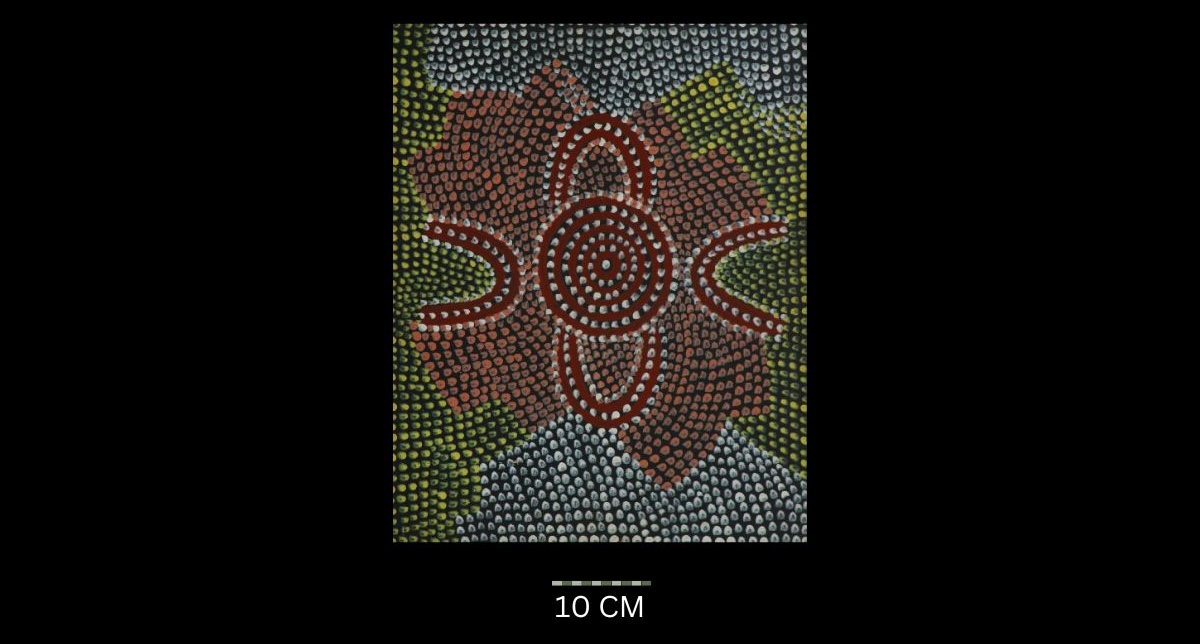
Arrakutja Women’s Dreaming, 1978
Synthetic polymer paint on board,
41 x 51 cm
Hammerprice: A$4,000
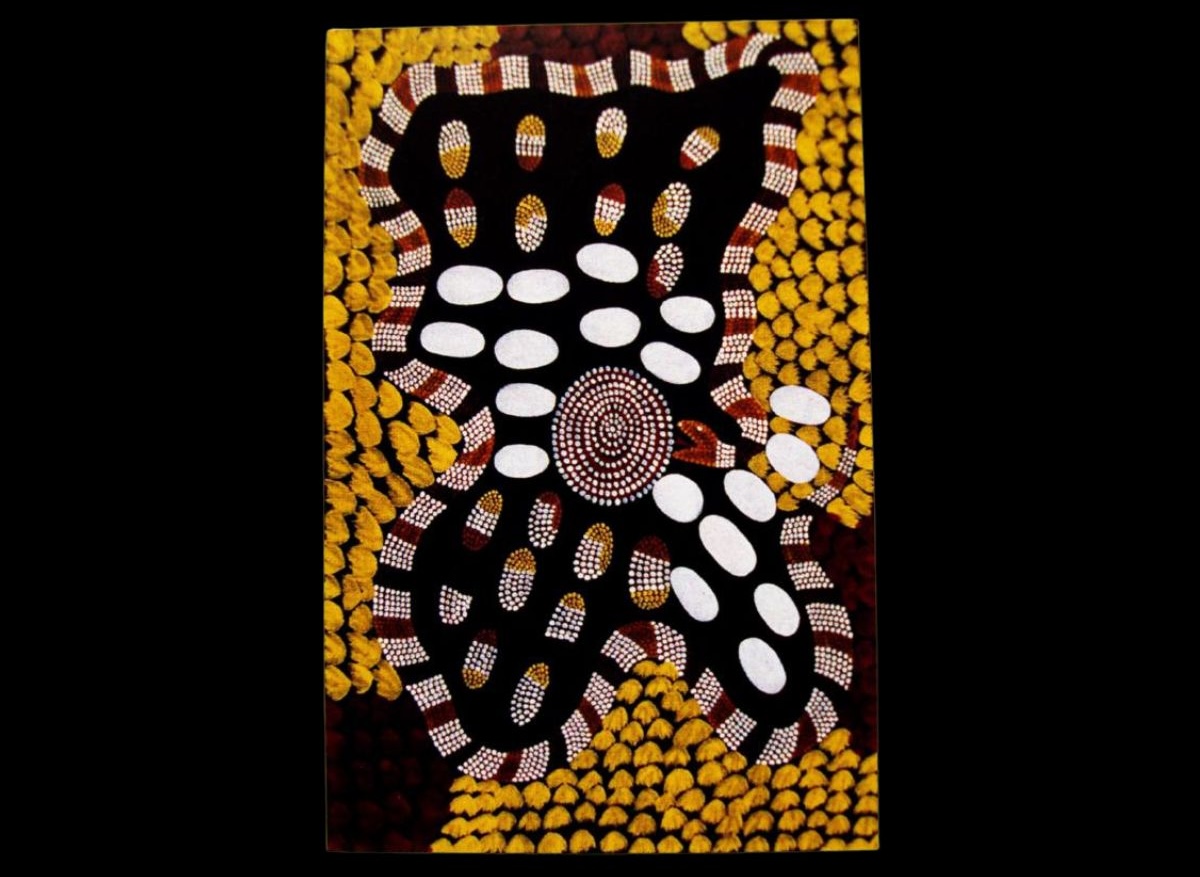
Snake Dreaming 1978
Synthetic polymer paint on canvas
No size recorded
Hammerprice: A$2,600
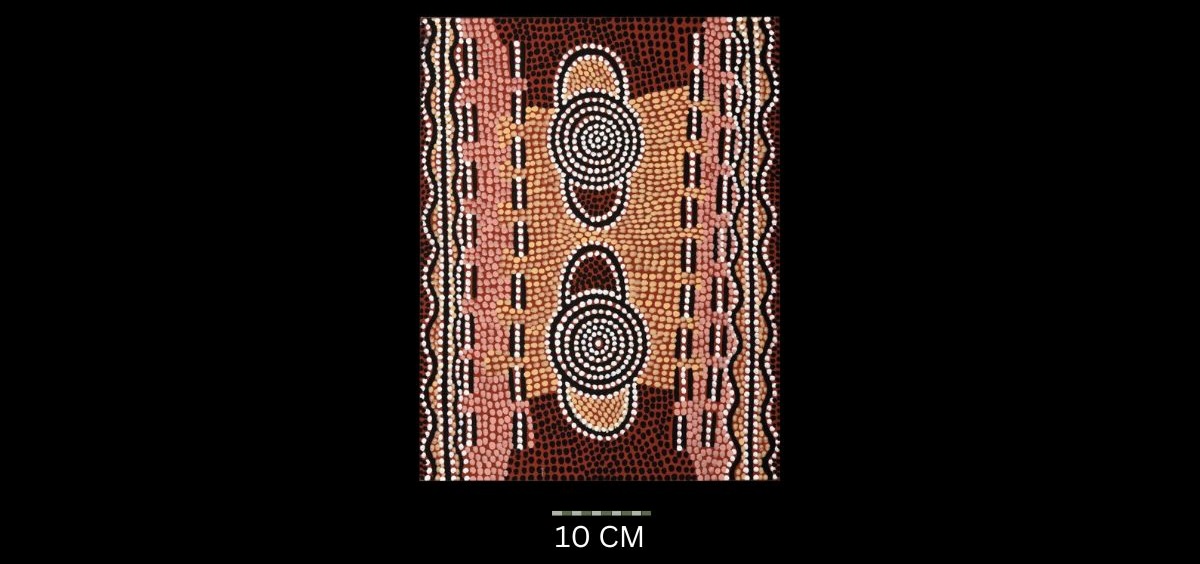
Budgerigar Dreaming, Circa Late 1970s
Synthetic polymer paint on canvasboard,
46 x 35.5 cm
Hammerprice: A$2,800
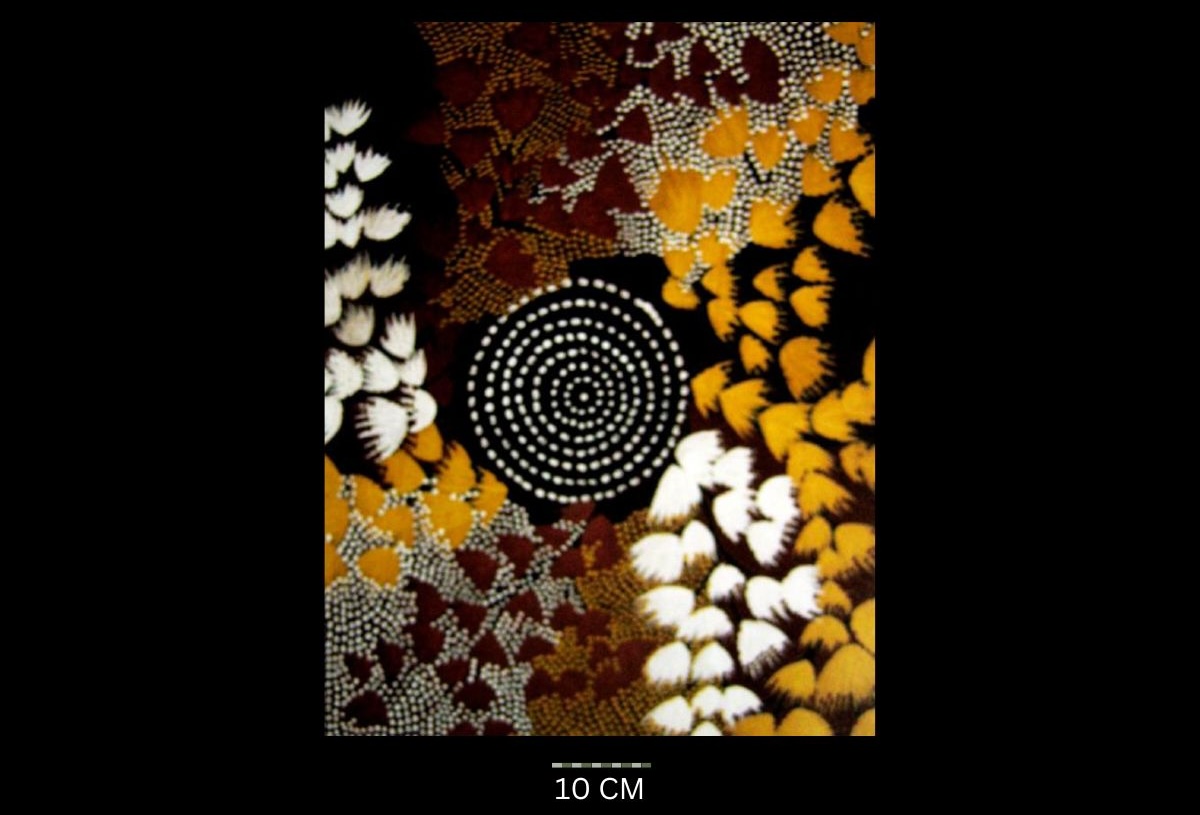
Sweet Potato Dreaming, 1979
Synthetic polymer paint on board, framed,
56 x 71.5 cm
Hammerprice: A$3,000
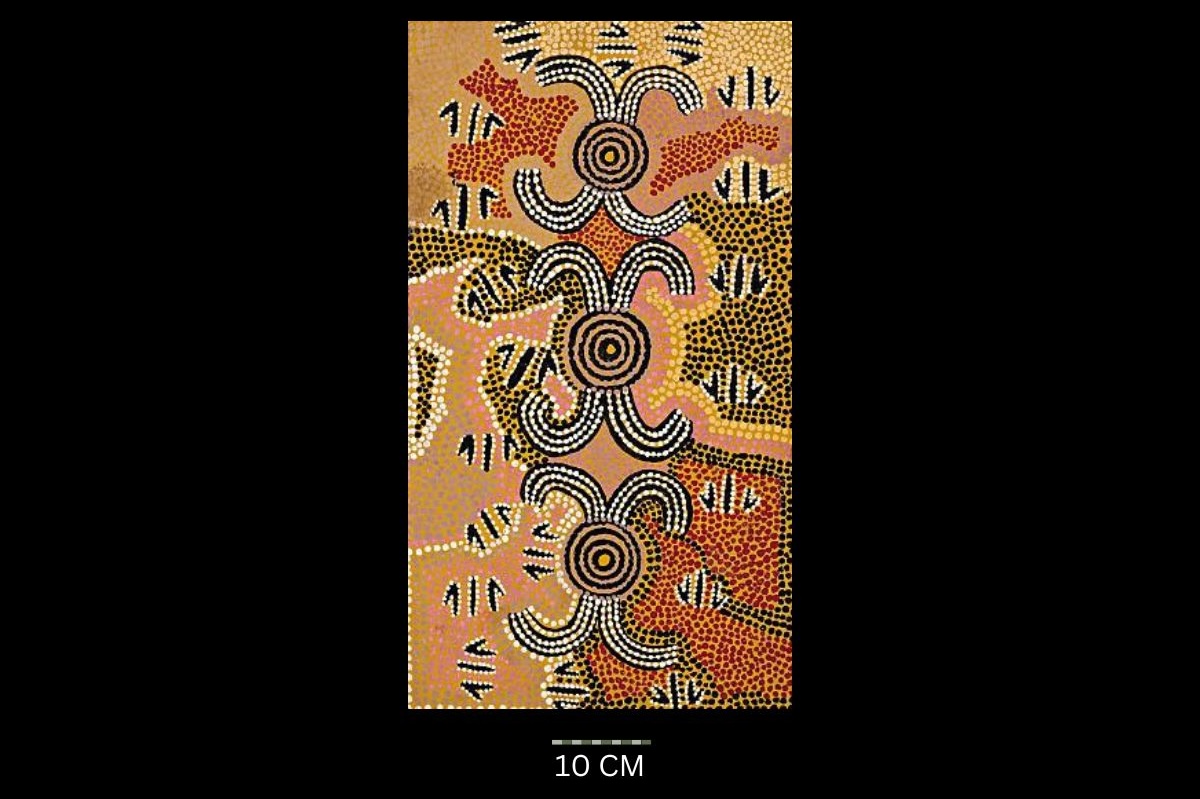
Kaapajmaa
Date not recorded likely pre1980
Synthetic polymer paint on canvas on board, signed and titled verso: Billy Stockman Kaapajmaa,
55.5 x 71 cm
Hammerprice: A$2,200
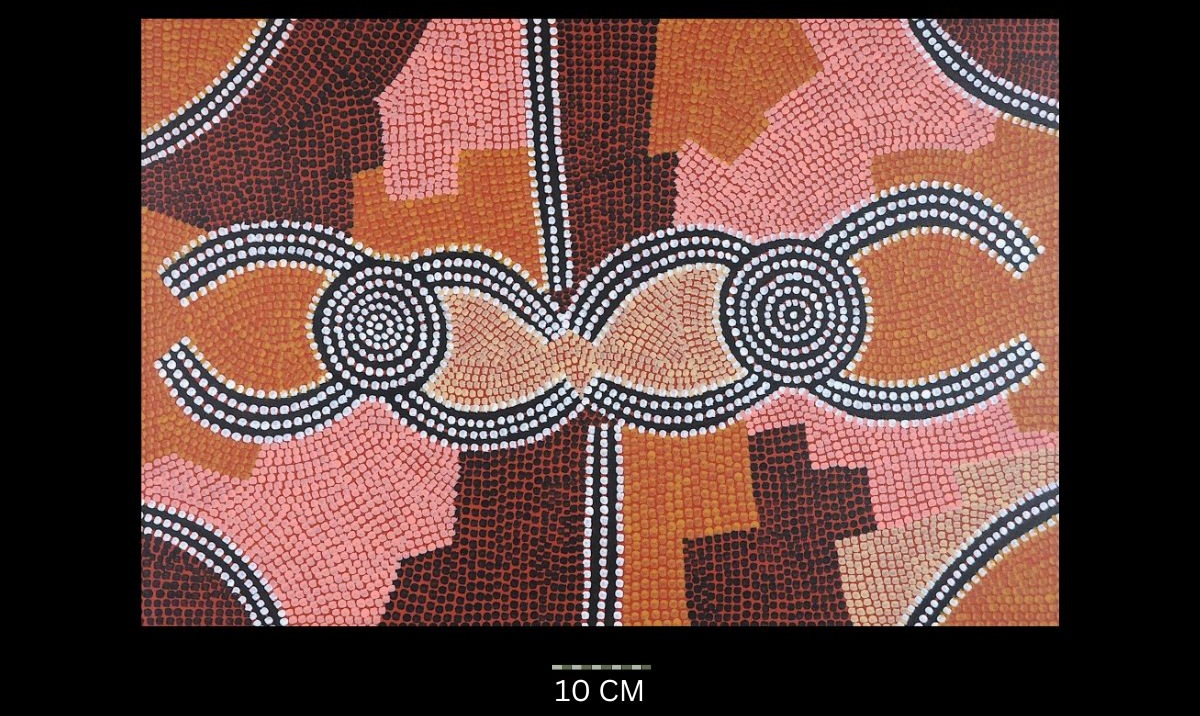
Mens Ceremony
Date not recorded assumed pre 1980
Synthetic polymer paint on canvas, signed verso,
91 x 61 cm
Hammerprice: A$4,750
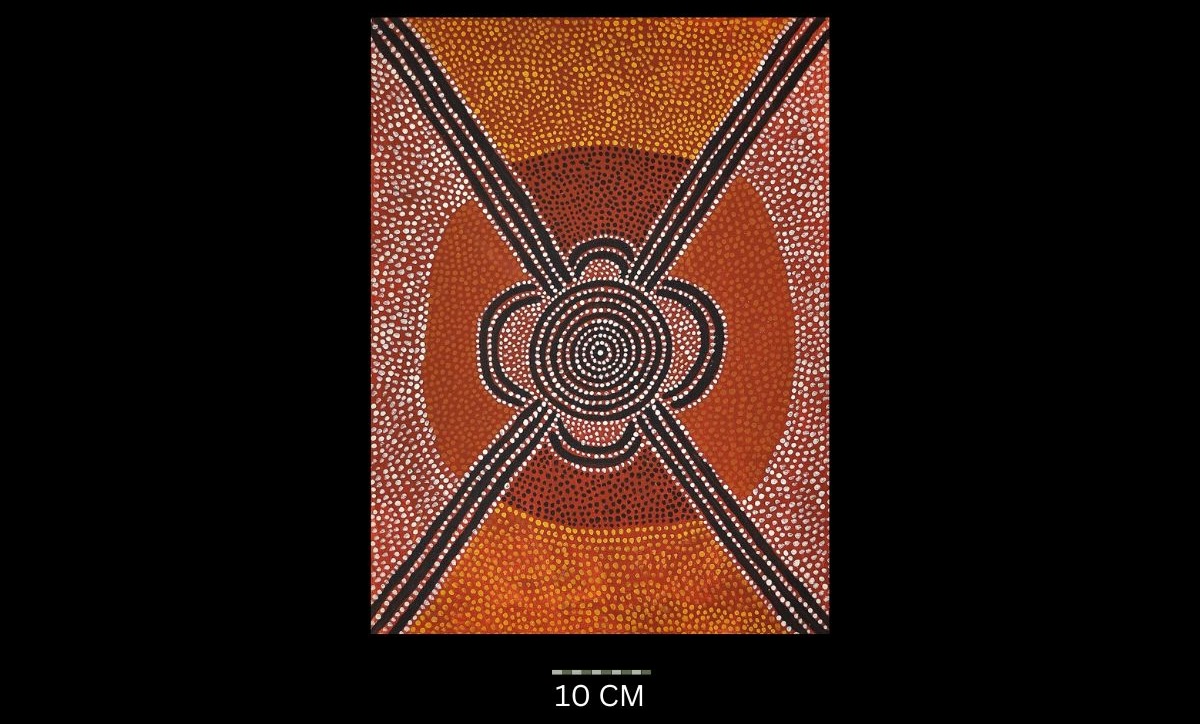
Untitled Early Work Pre-1980
Acrylic on canvas artist’s board,
61 x 45.5 cm
Hammerprice: A$6,800
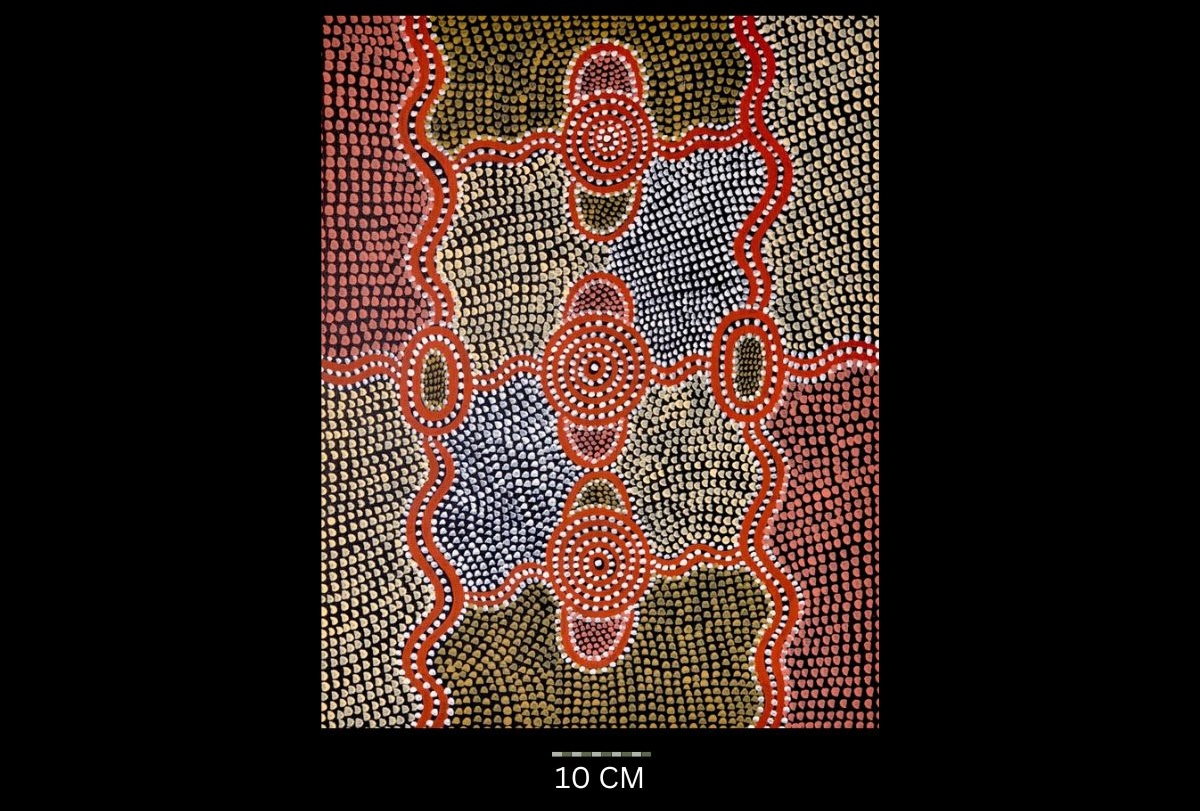
Old Man Dreaming of Body Painting
Oil on canvas,
71 x 56 cm
Hammerprice: A$3,100
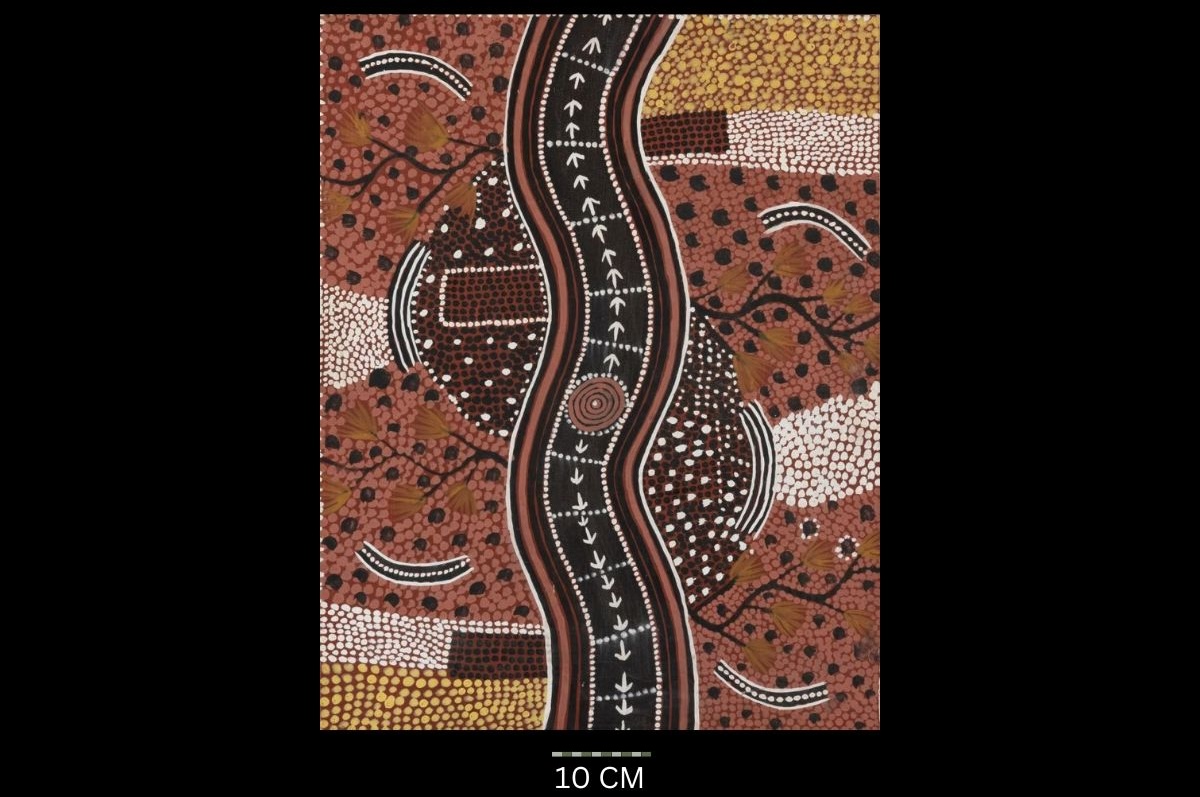
Kaapajmaa
Synthetic polymer paint on canvas on board, signed and titled verso: Billy Stockman Kaapajmaa,
55.5 x 71 cm
Hammerprice: A$2,200
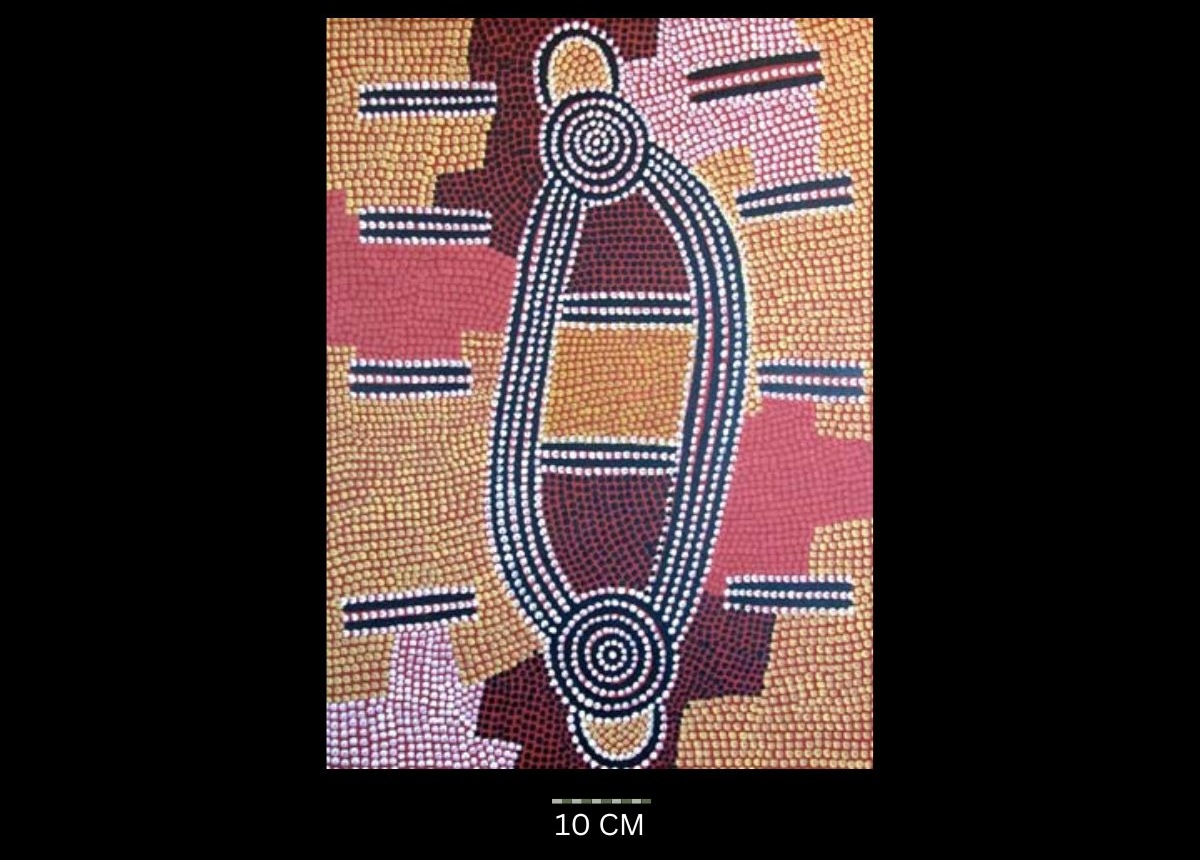
Untitled
No date recorded assumed pre 1980
Acrylic on canvas,
75 x 65 cm
Hammerprice: A$5,500
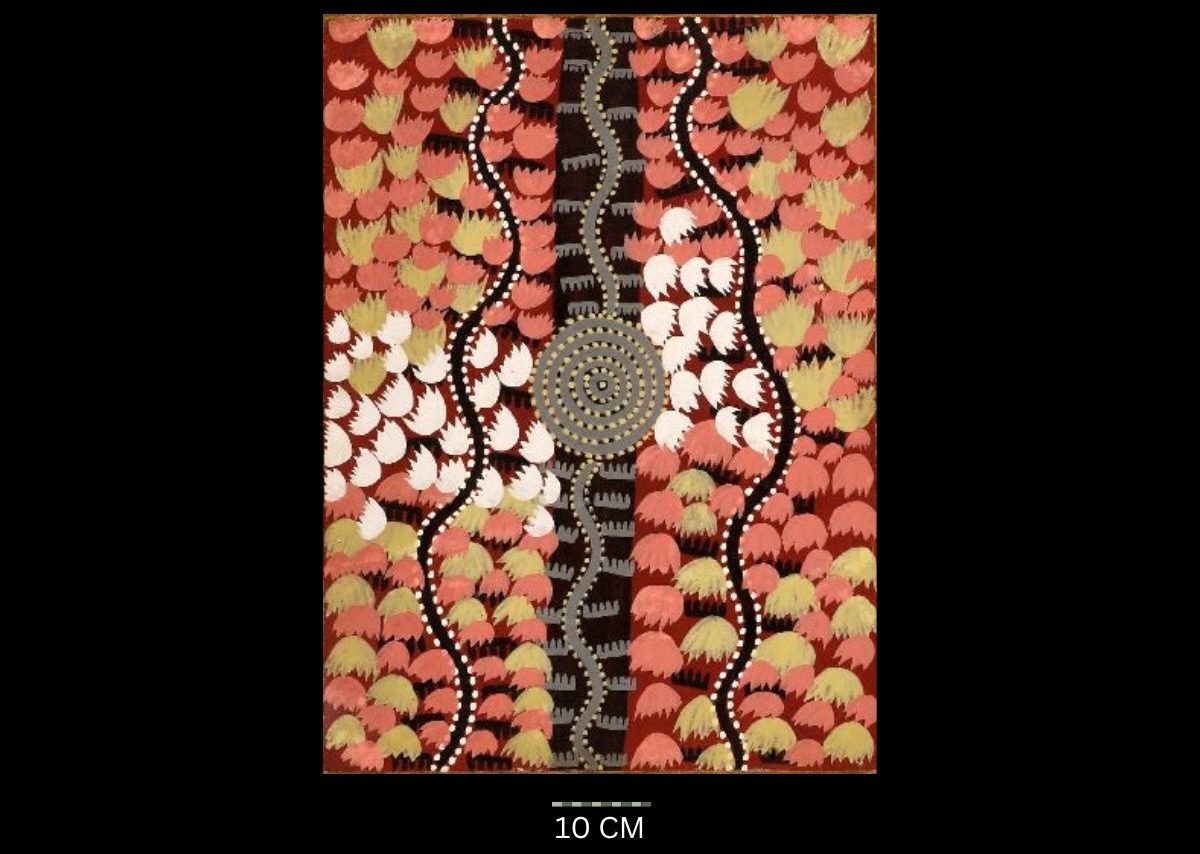
Possum Dreaming, 1980
Synthetic polymer paint on board,
56 x 76 cm
Hammerprice: A$2,800
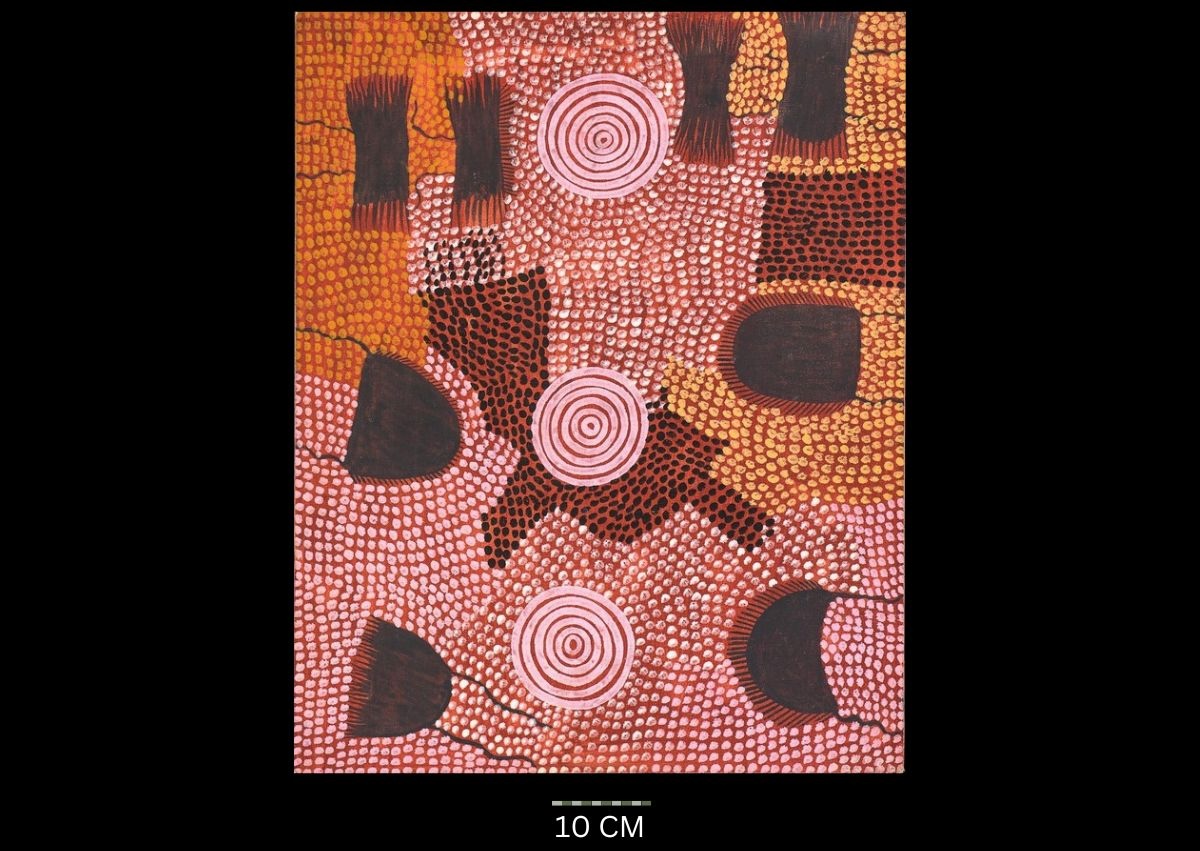
Untitled (Late 1970s)
Synthetic polymer paint on canvas board,
76 x 60.5 cm
Hammerprice: A$2,600
The Commercial Phase: Billy Stockman’s Late Career and Market-Driven Aboriginal Art (1980s Onward)
From the 1980s onward, Billy Stockman Tjapaltjarri’s artistic production entered a distinctly commercial phase, marked by a dramatic increase in output and scale. Working on large canvases, he often featured familiar Dreaming motifs such as snakes and concentric circles — symbolic elements central to the Papunya Tula movement. These later works were characterized by the use of larger, evenly spaced dots and a looser, more hurried painting style, suggesting a shift in focus from cultural storytelling to market demand.
As demand for Aboriginal art grew in domestic and international markets, Stockman’s prolific output catered to a collector base increasingly drawn to the bold visual language rather than the deeper cultural significance. This era reflects a period in which the quality of execution was sometimes secondary to commercial viability. While some critics argue that the spiritual depth and intricate precision of his earlier works diminished, this period also underscores Billy Stockman’s adaptability and entrepreneurial instinct — traits that helped propel Aboriginal art onto the global stage.
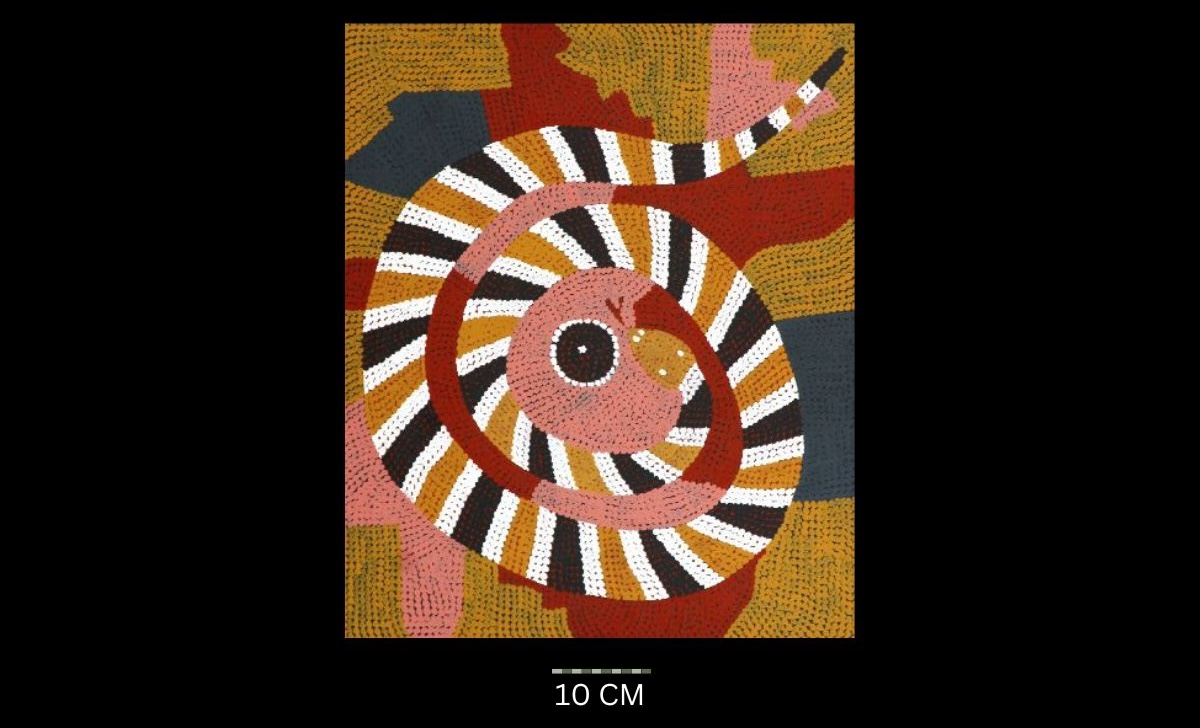
Snake Dreaming, 1985
Synthetic polymer paint on composition board,
51 x 61 cm
Hammerprice: A$3,400
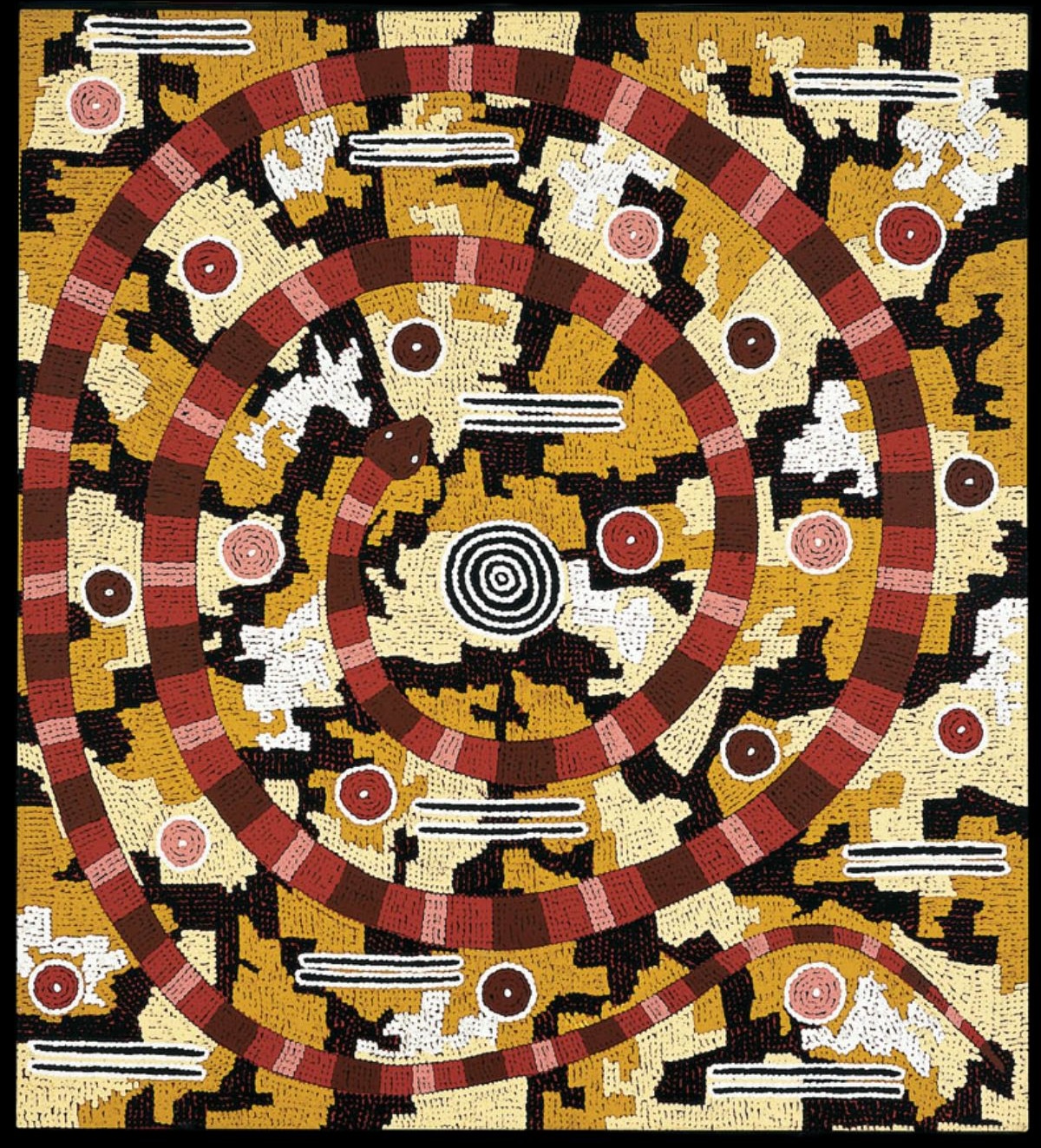
Totemic Snakes 1985
Synthetic polymer paint on canvas,
128.5 x 116.5 cm
Hammerprice: A$7,000
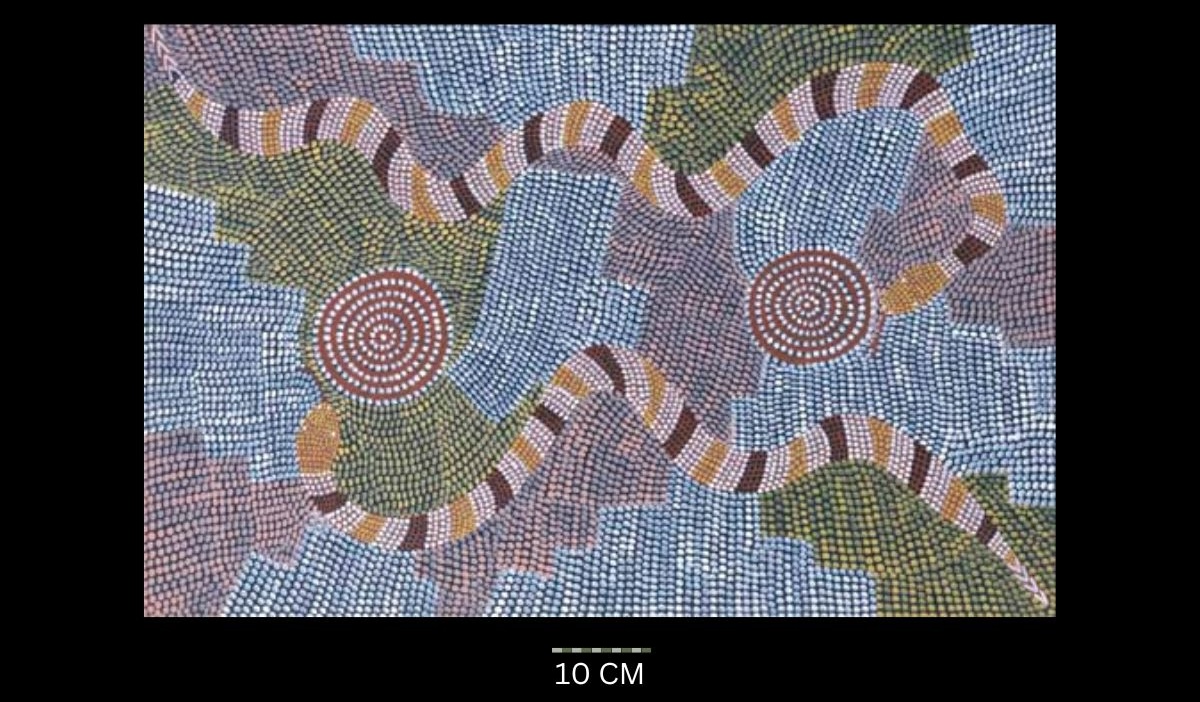
Untitled
Acrylic on canvas board,
60.5 x 91 cm
Hammerprice: A$3,800
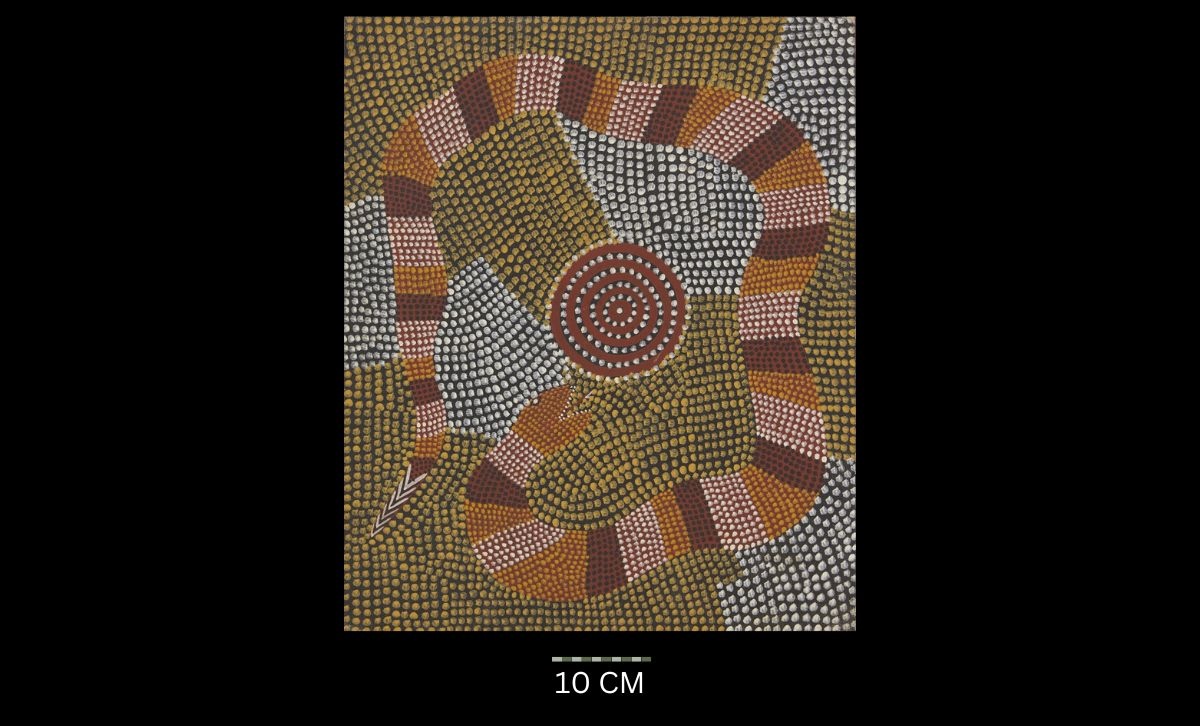
Snake Dreaming 1974
Synthetic polymer paint on canvasboard, inscribed verso with artist’s name and date (concealed), inscribed on backing verso with artist’s name, date and Avant Galleries cat. no.
128, 51 x 61 cm
Hammerprice: A$2,800
Recorded as 1974 but likely later
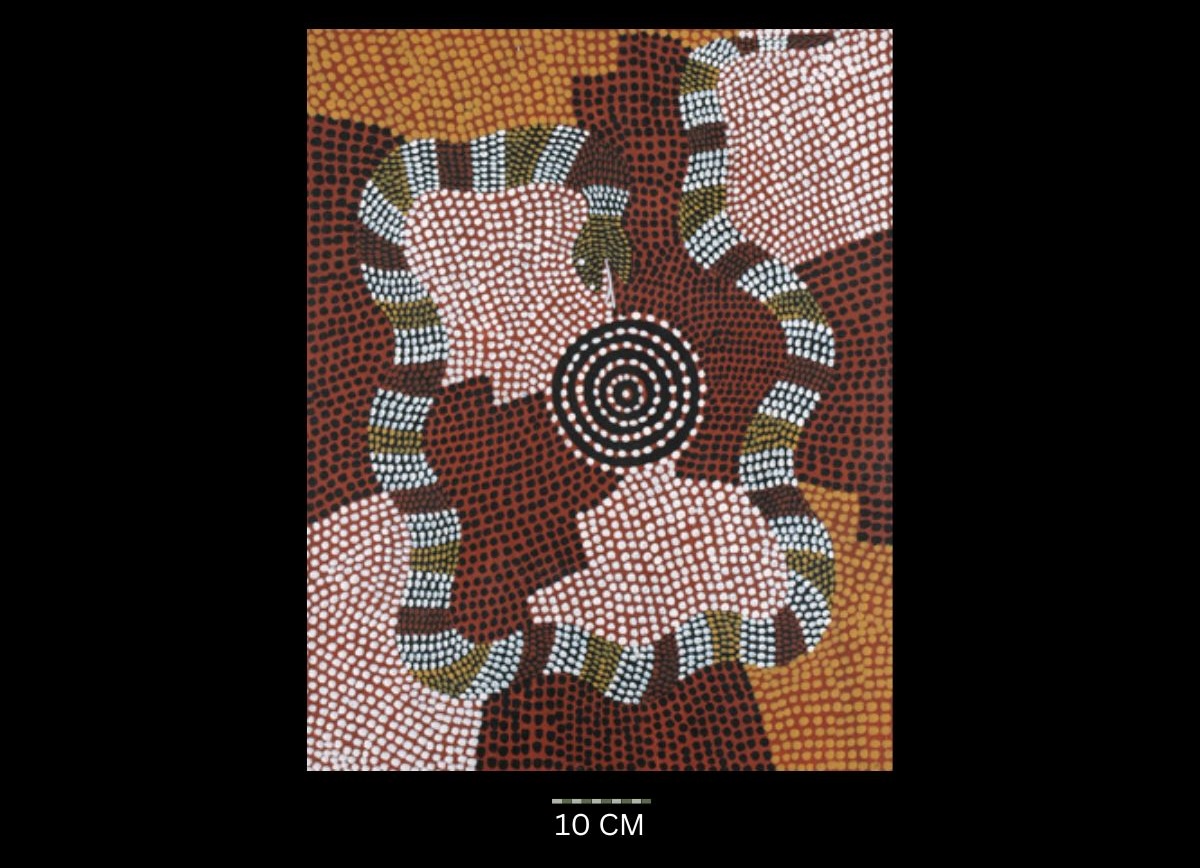
Snake Dreaming
No date recorded Assumed mid 1980’s
Oil on canvas, unsigned,
59.5 x 74.4 cm
Hammerprice: A$4,000
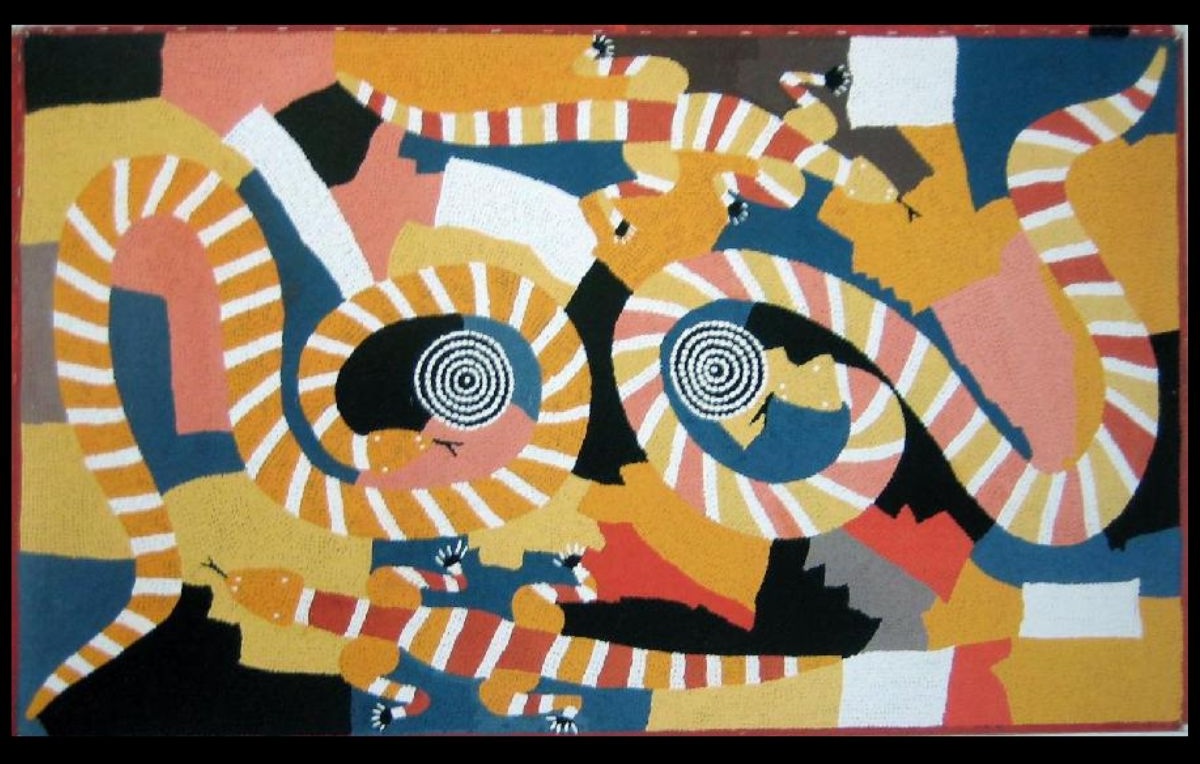
Snake Dreaming
Date not recorded Assumed late 1980’s
Acrylic on canvas, artist’s name and ‘The Original Dreamtime Art Gallery’ inscribed verso,
90 x 150 cm
Hammerprice: A$5,000
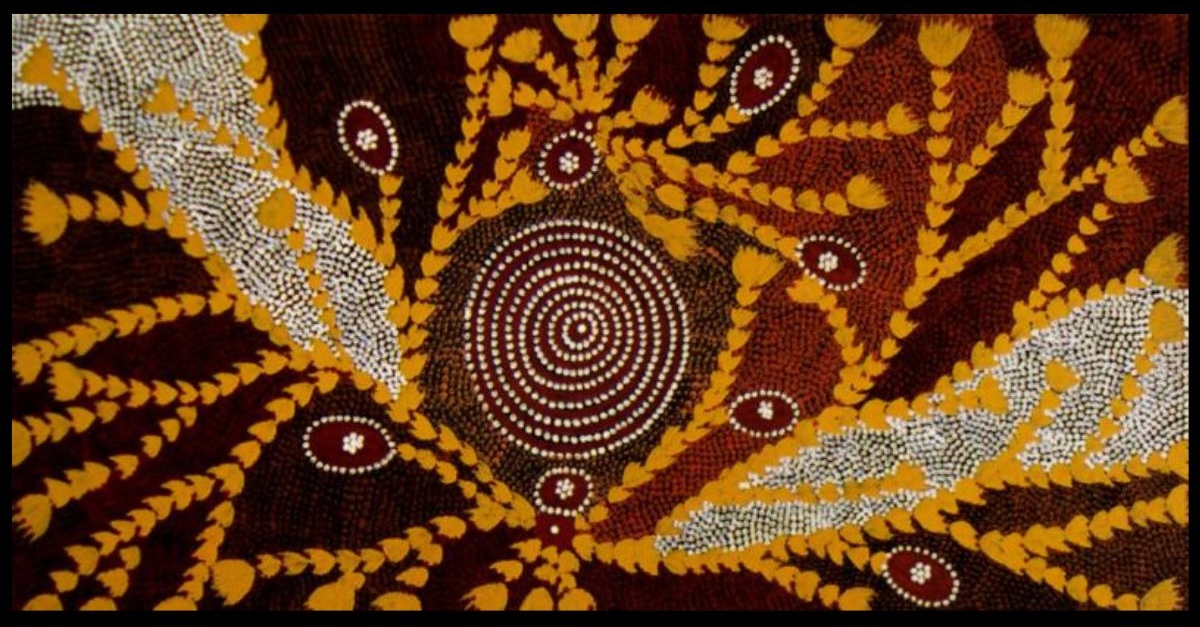
Wild Potato Dreaming 1988
Acrylic on canvas
No size recorded
Hammerprice: A$5,000
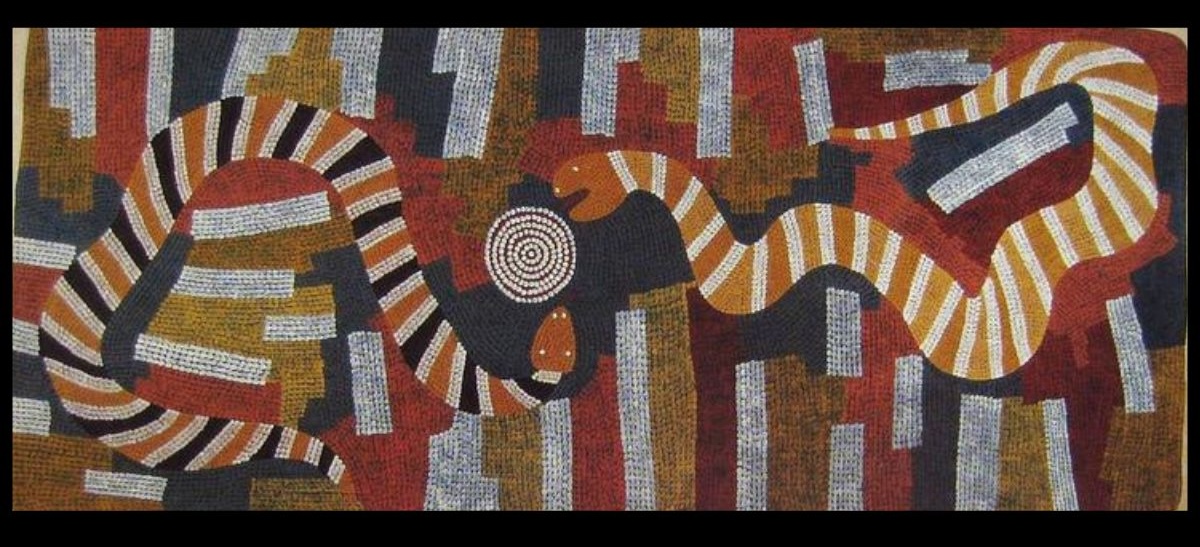
Carpet Snake Dreaming
Acrylic on canvas, unsigned,
90 x 209 cm
Hammerprice: A$4,000

Carpet Snake Dreaming 1987
Synthetic polymer paint on linen, bears Papunya Tula Artists catalogue number BS871115 on the reverse,
89.5 x 170 cm
Hammerprice: A$3,400
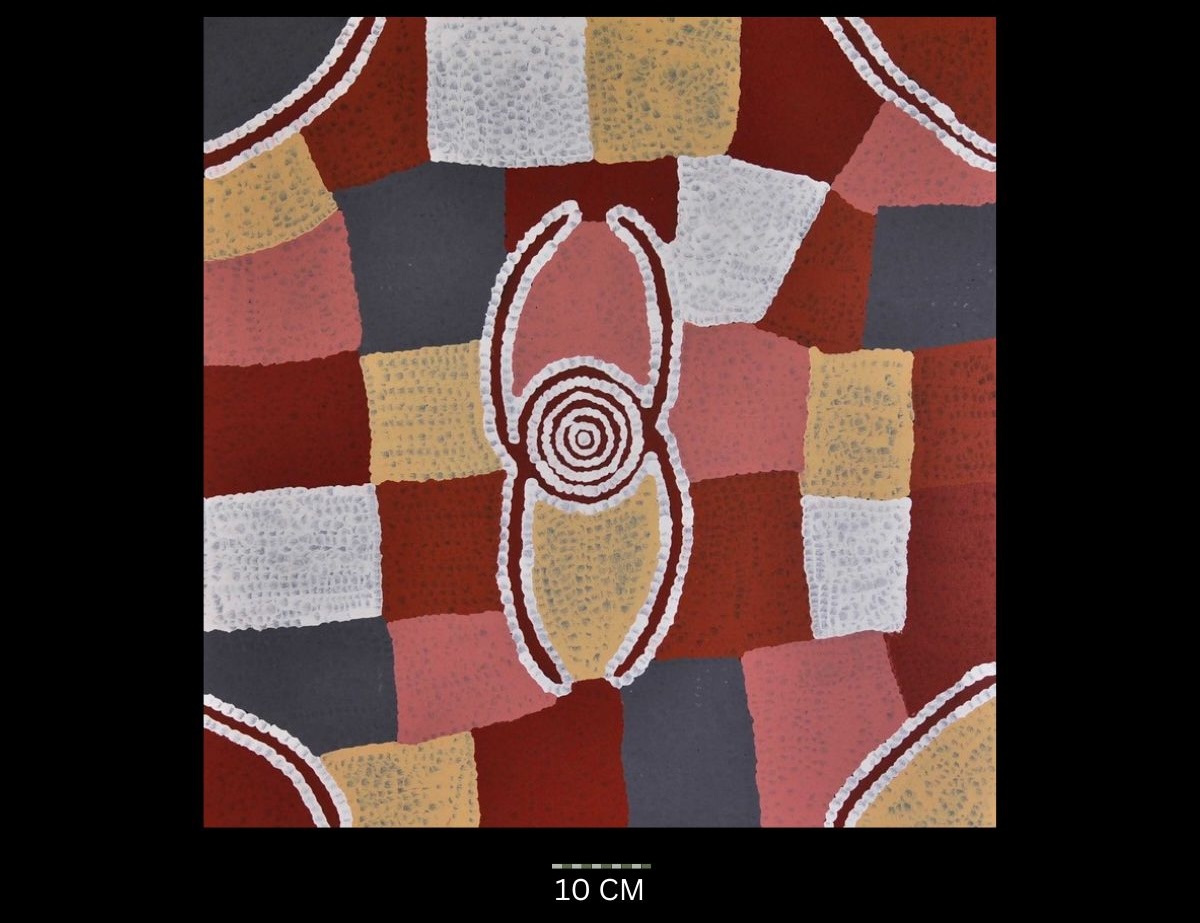
Mens’ Ceremony
Acrylic on canvas, title registration no. verso. certificate of authenticity supplied with this work.,
81 x 80 cm
Hammerprice: A$3,000
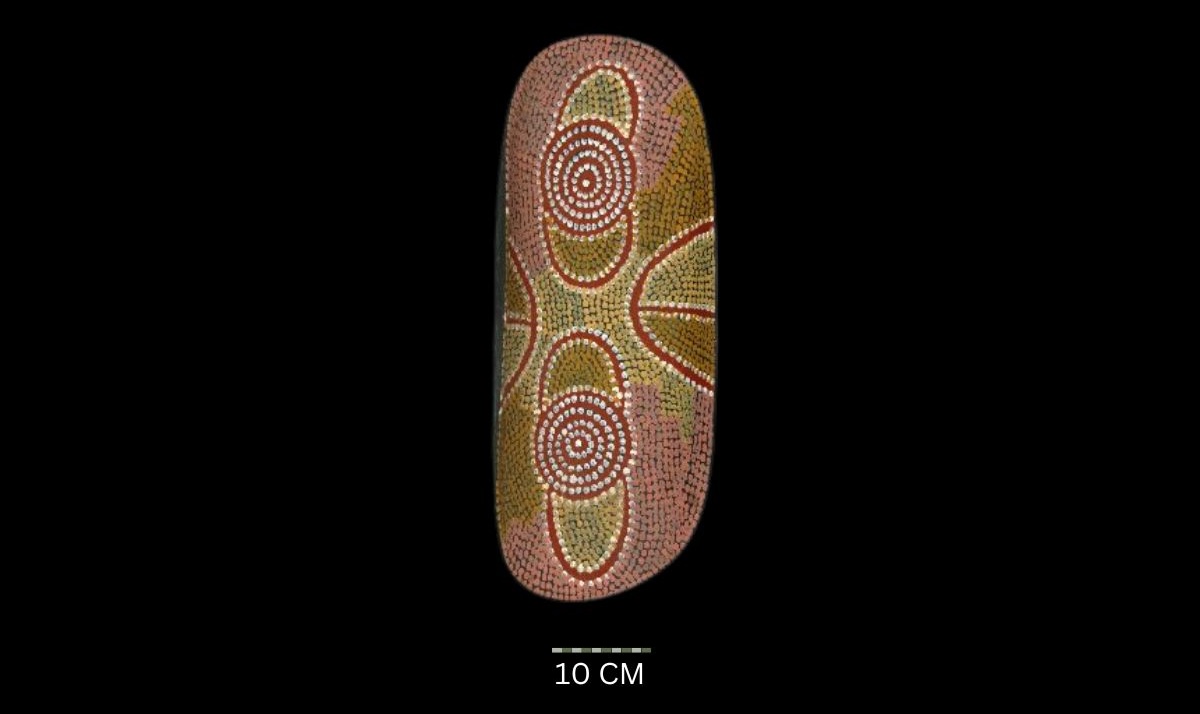
Painted Coolamon with Mens Design
No date recorded but likely mid 1980’s
Natural earth pigments on wood, signed verso: Billy Stockman,
58 x 23.5 cm
Hammerprice: A$2,400
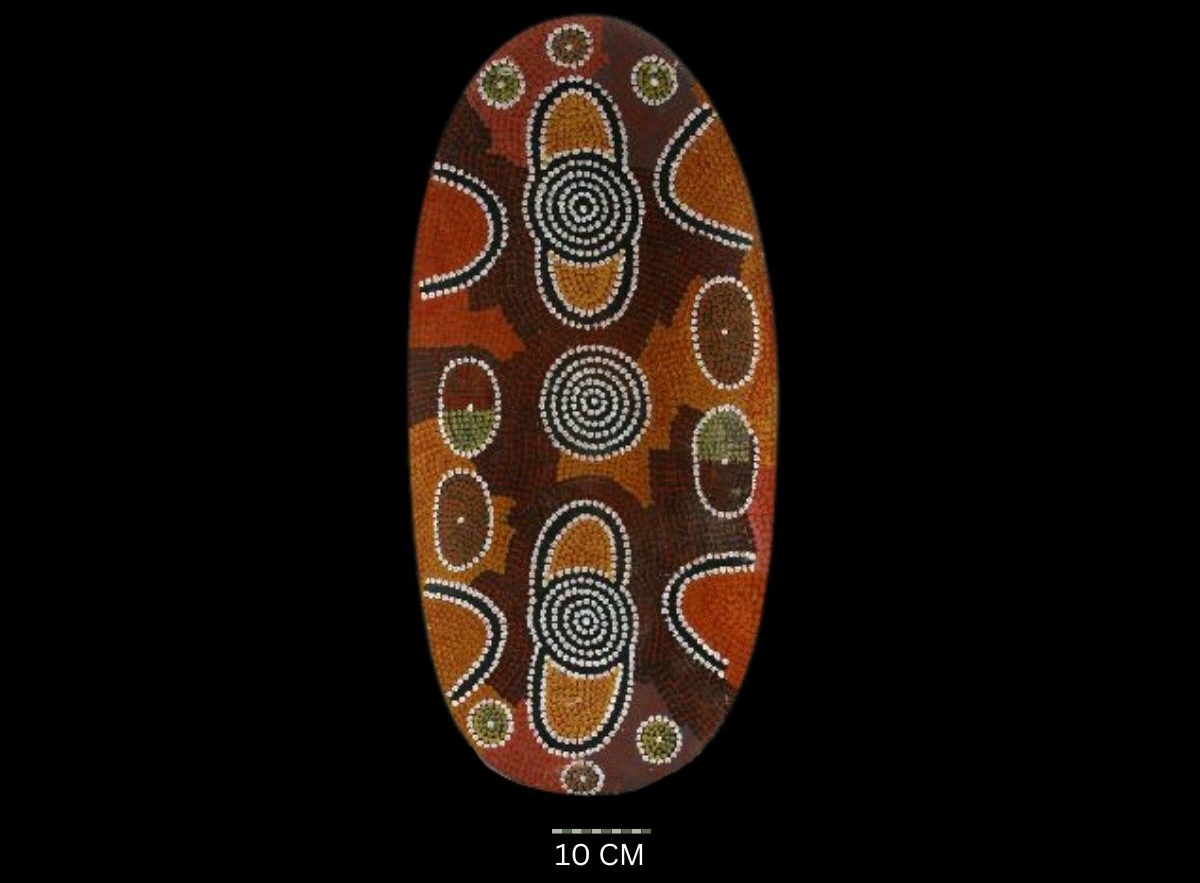
Painted Coolamon (Circa. 1985)
Synthetic polymer on wood,
height 80 cm
Hammerprice: A$2,800
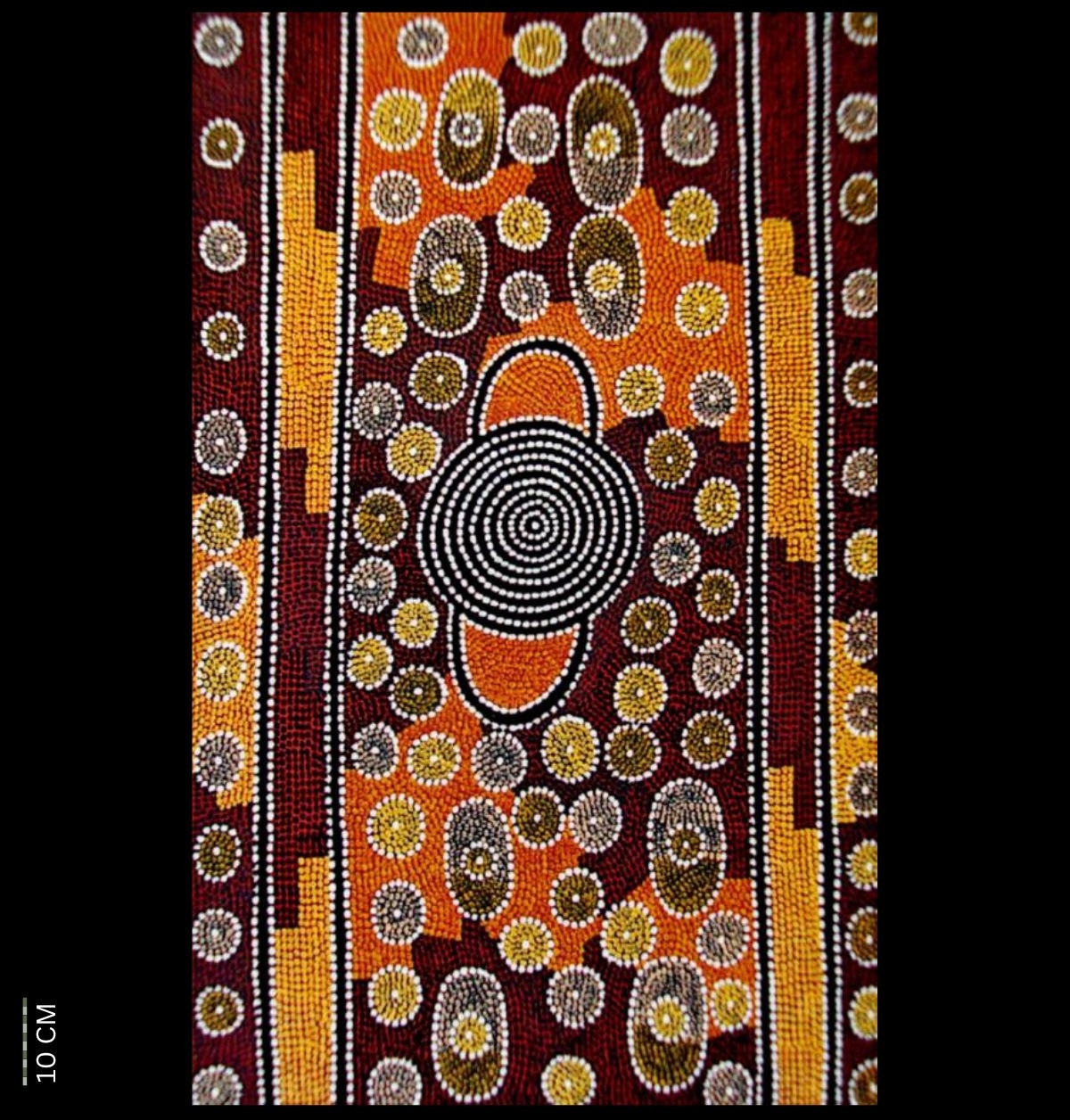
Ilpitirri 1985
Synthetic polymer paint on linen, bears Papunya Tula catalogue number BS850446 on the reverse (distressed),
122 x 76 cm
Hammerprice: A$3,000
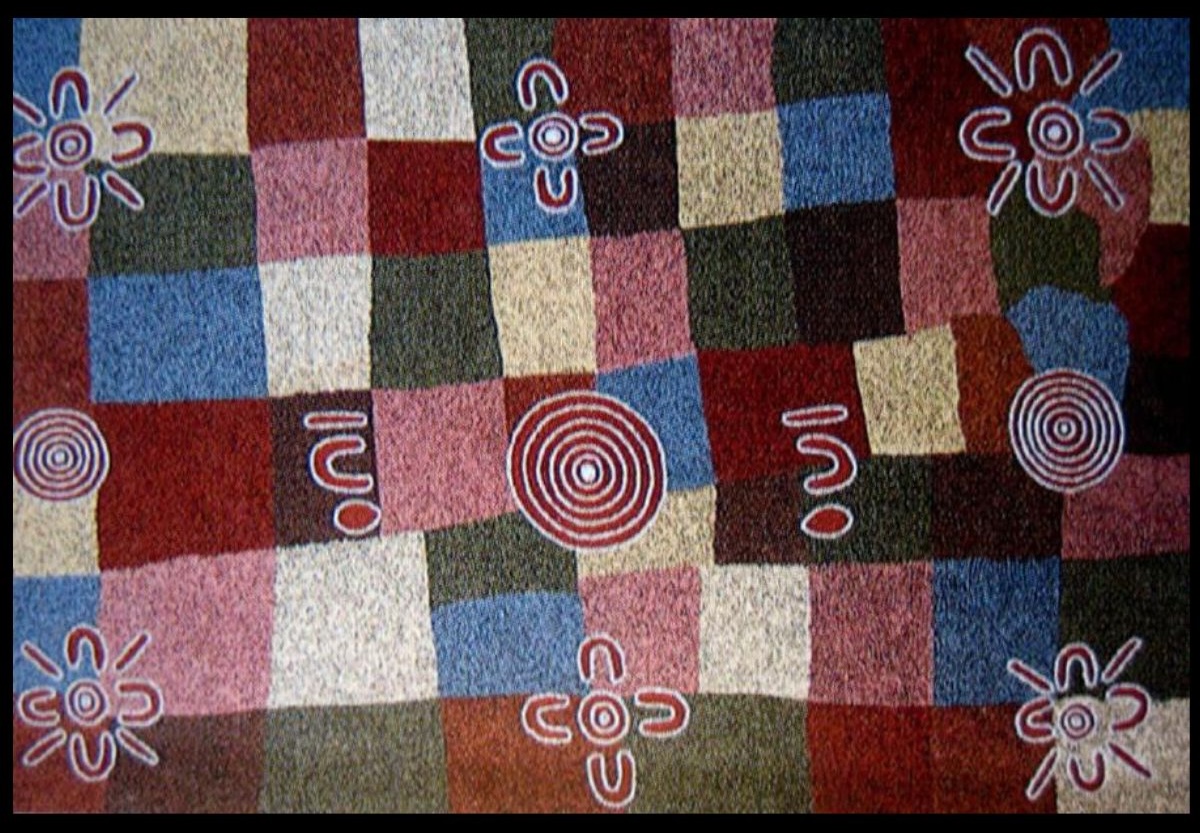
Women’s Story 1988
Synthetic polymer paint on canvas, signed ‘Billy Stockman’ on the reverse,
199 x 129 cm
Hammerprice: A$2,600
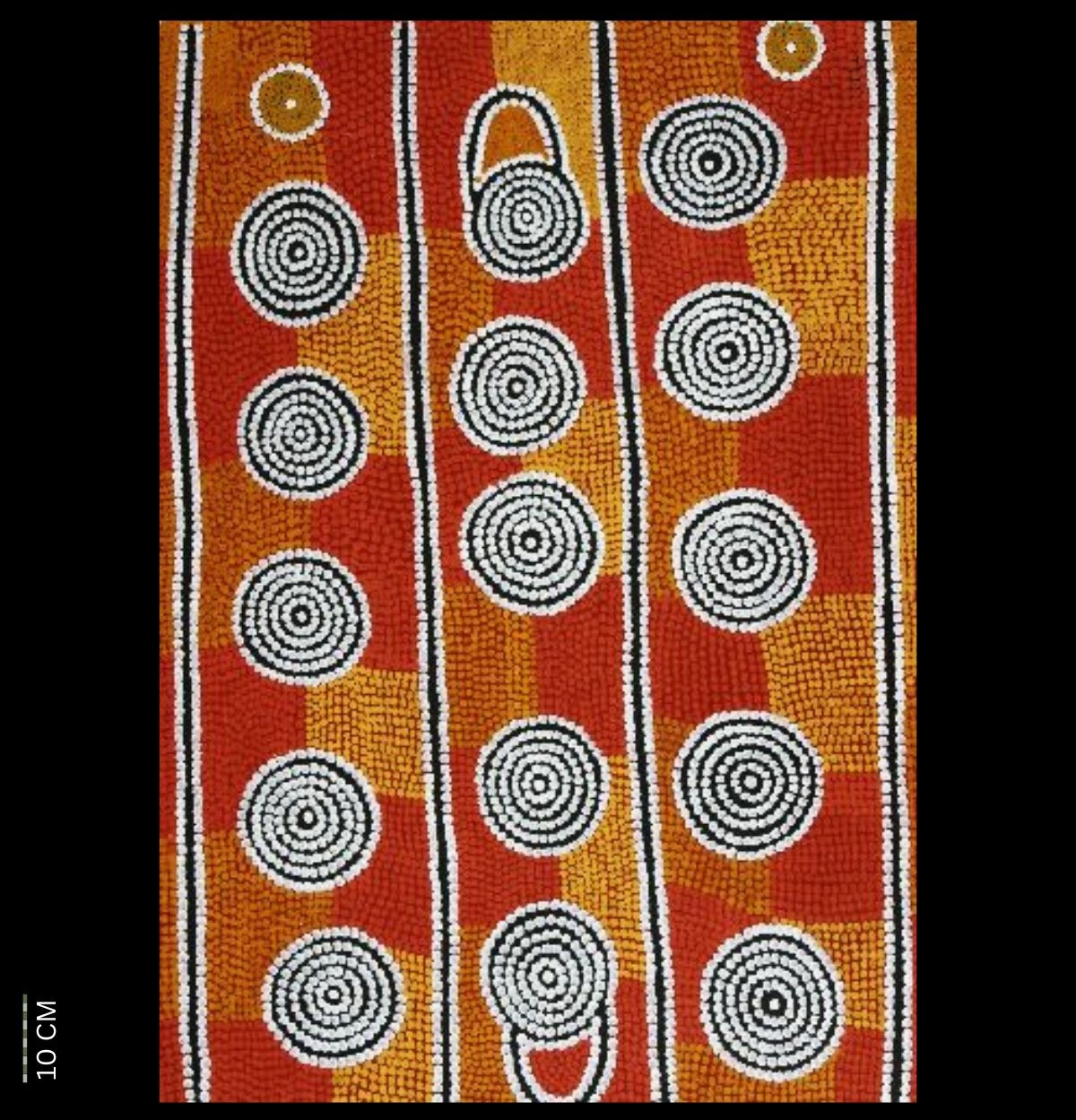
Ceremonial Hunting Dreaming, 1988
Synthetic polymer paint on Belgian linen,
120 x 90 cm
Hammerprice: A$2,400
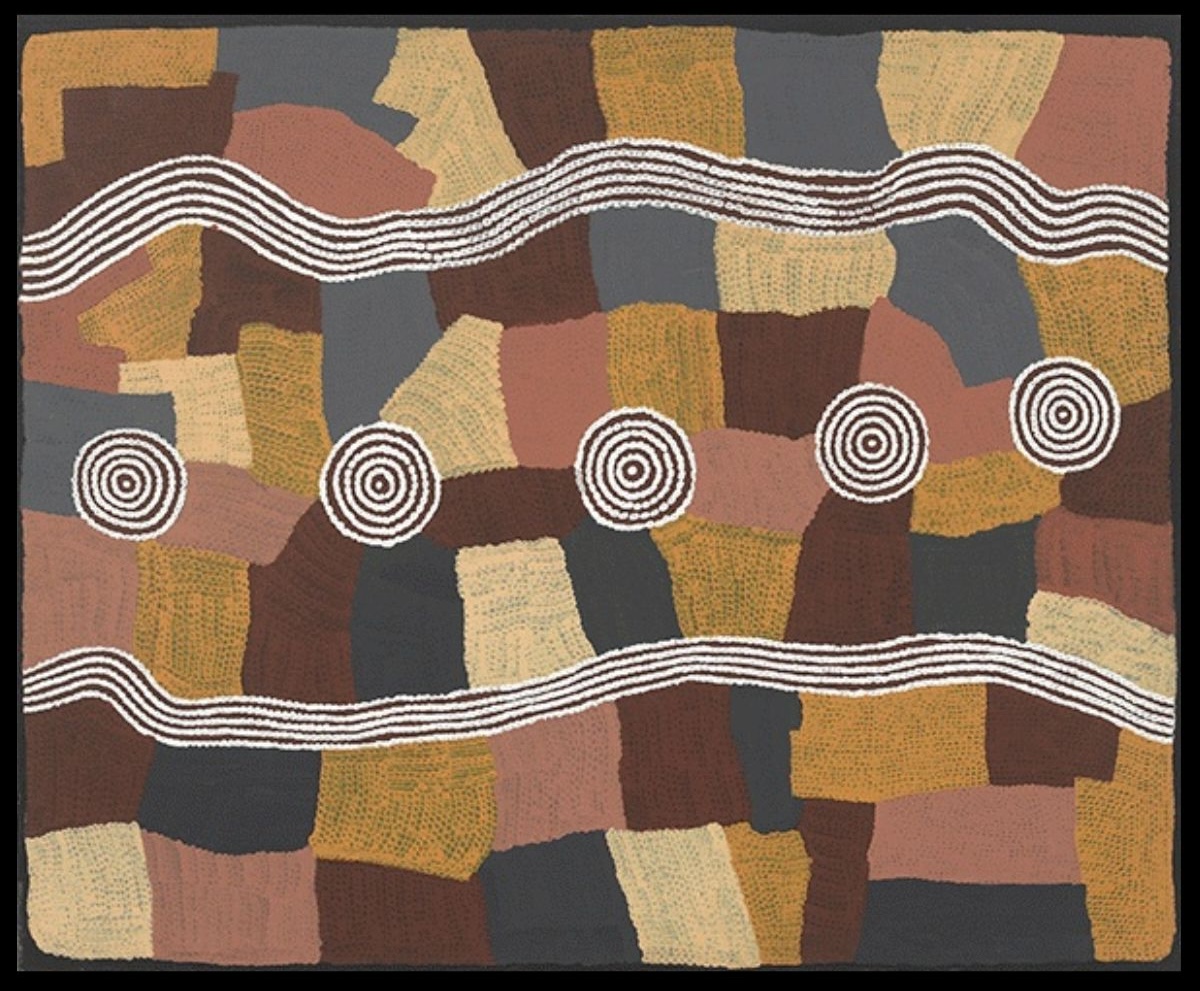
Billy Stockman Tjapaltjarri Artworks under A$2000
There are numerous records of Artworks of Bill Stockman for under $2000 but these will not be covered in this article.
Should the reader be interested in these artworks I recommend joining Australian Art sales digest
Billy Stockman Tjapaltjarri references
Papunya: A place made after the Story
Aboriginal Artwork Values
Early Papunya Artworks and Articles
All images in this article are for educational purposes only.
This site may contain copyrighted material the use of which was not specified by the copyright owner.
